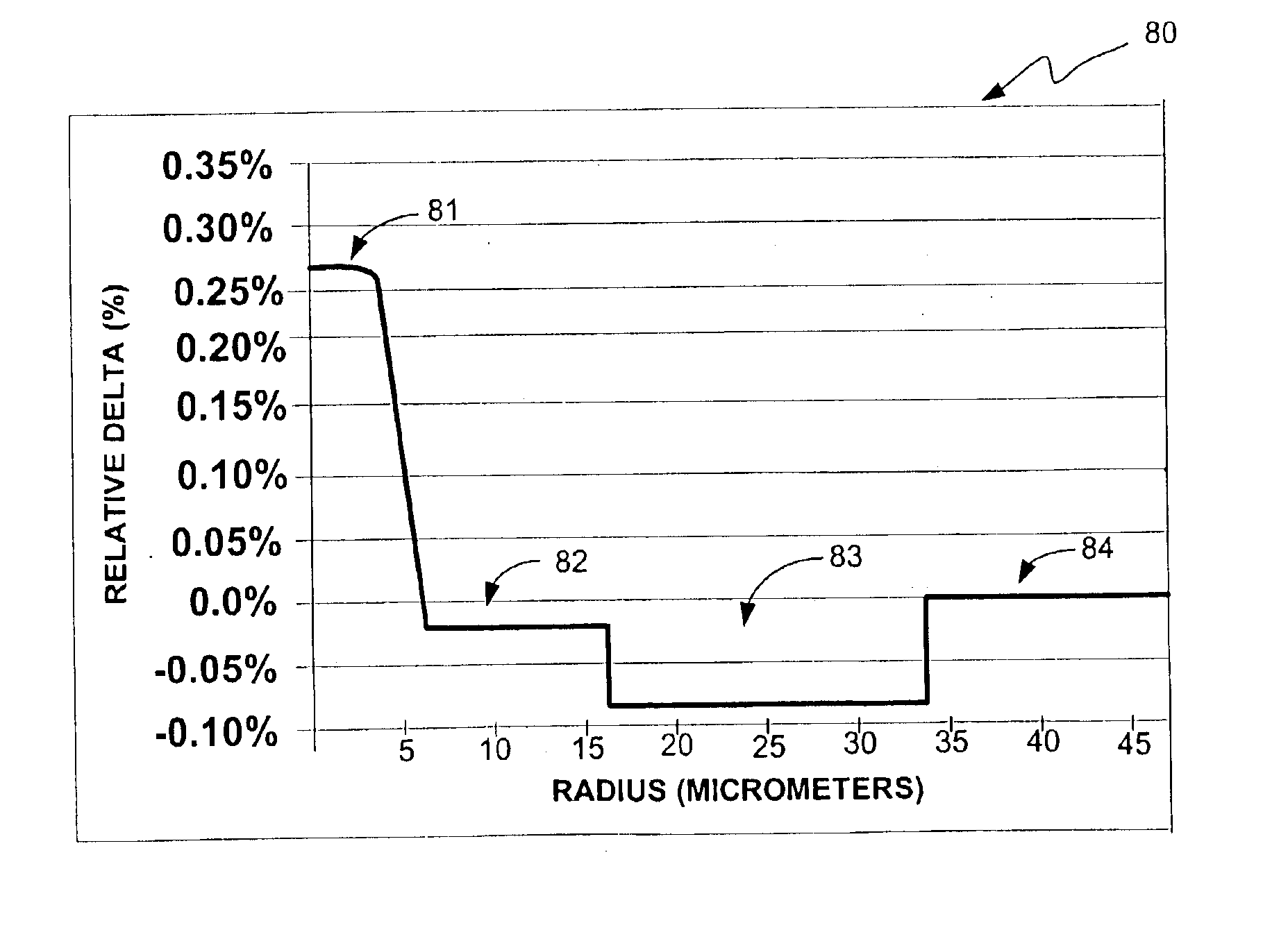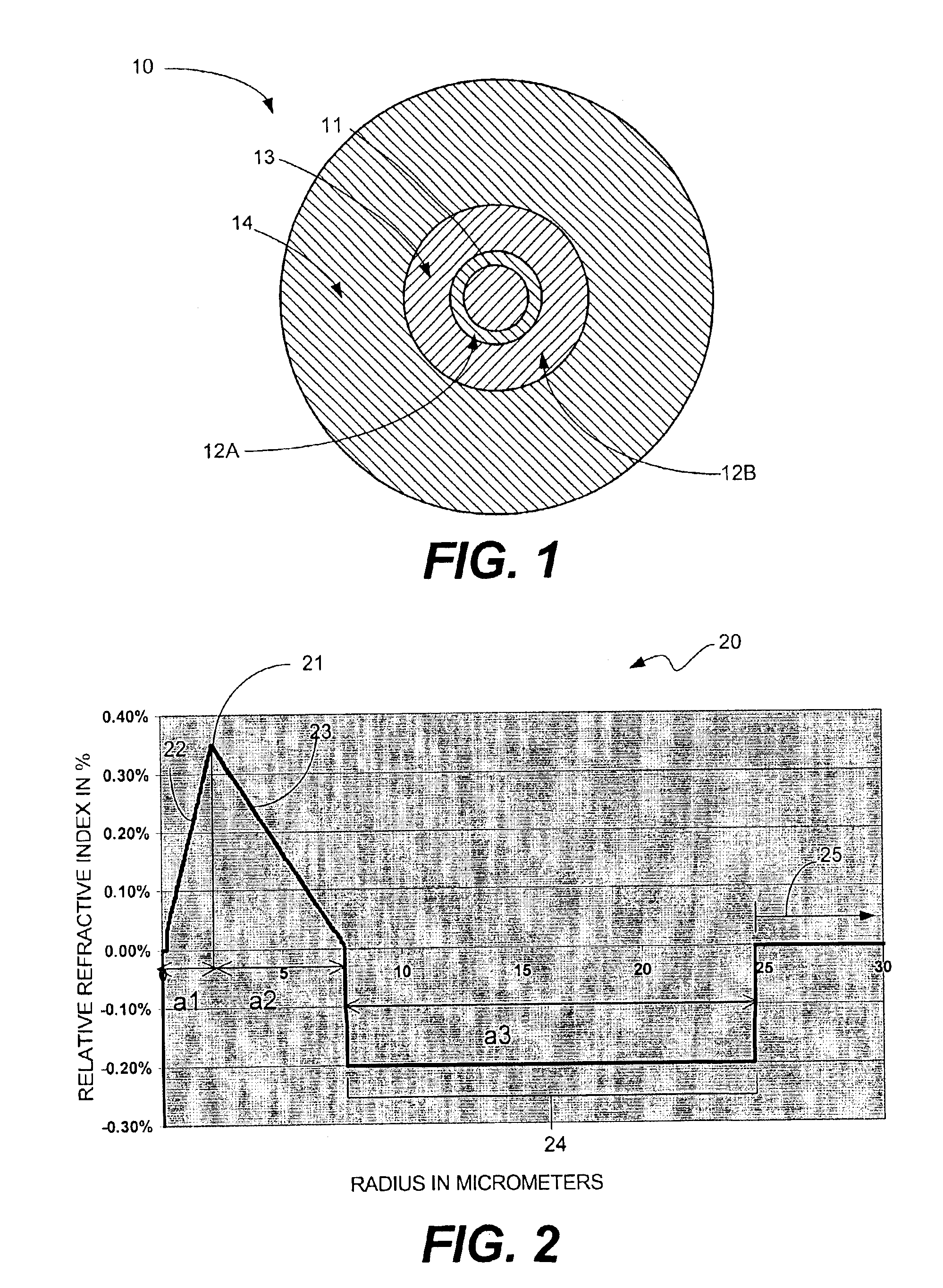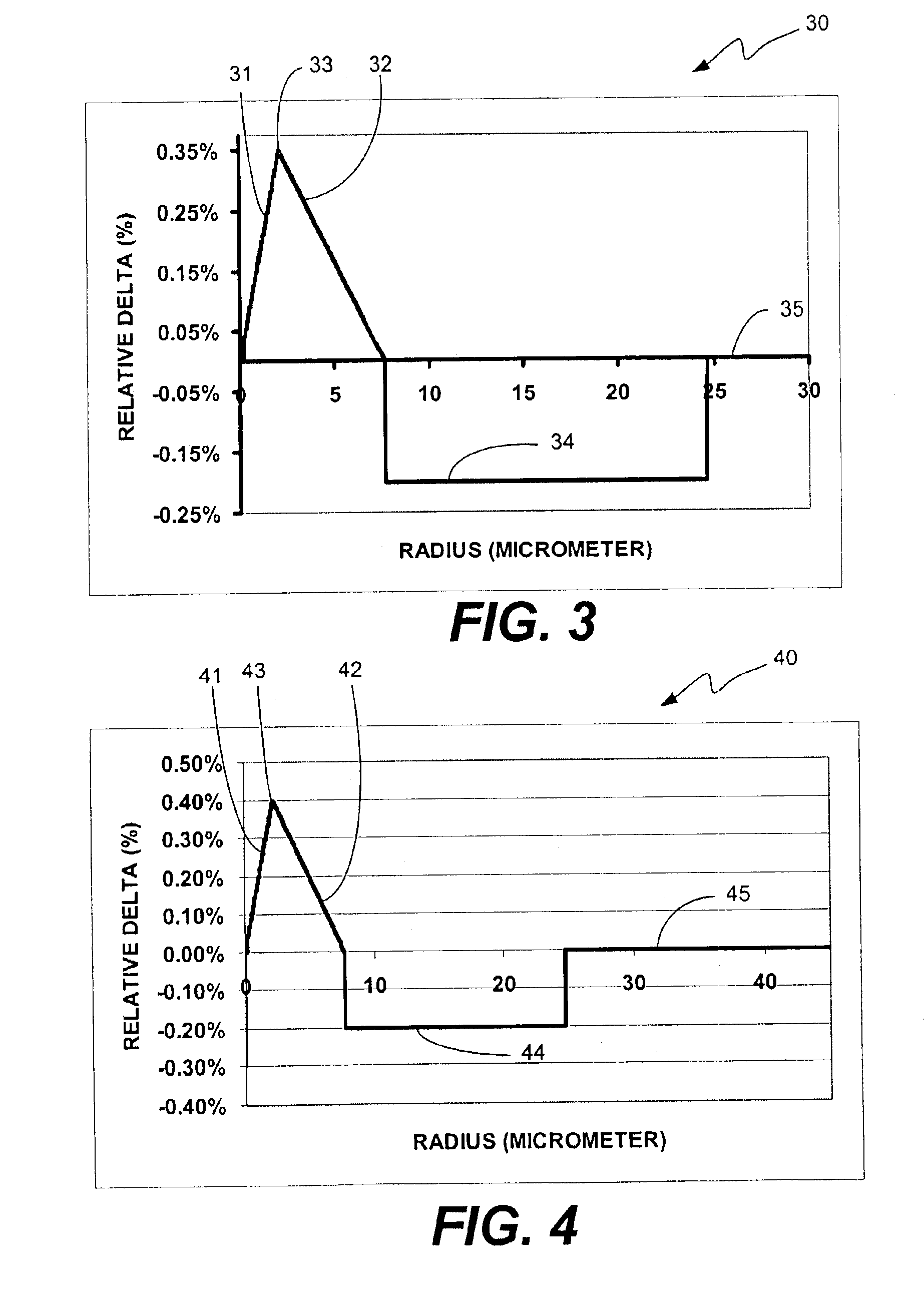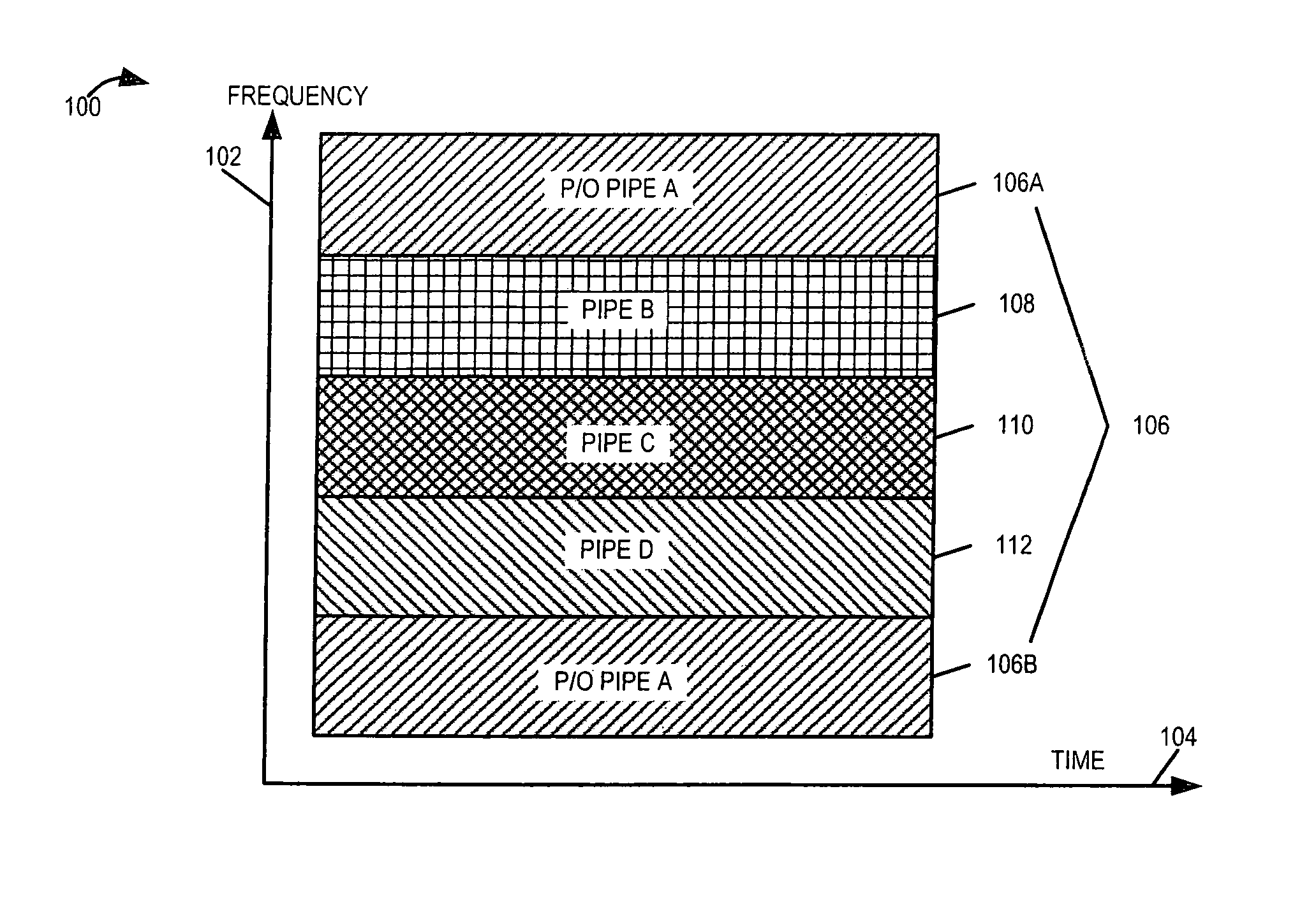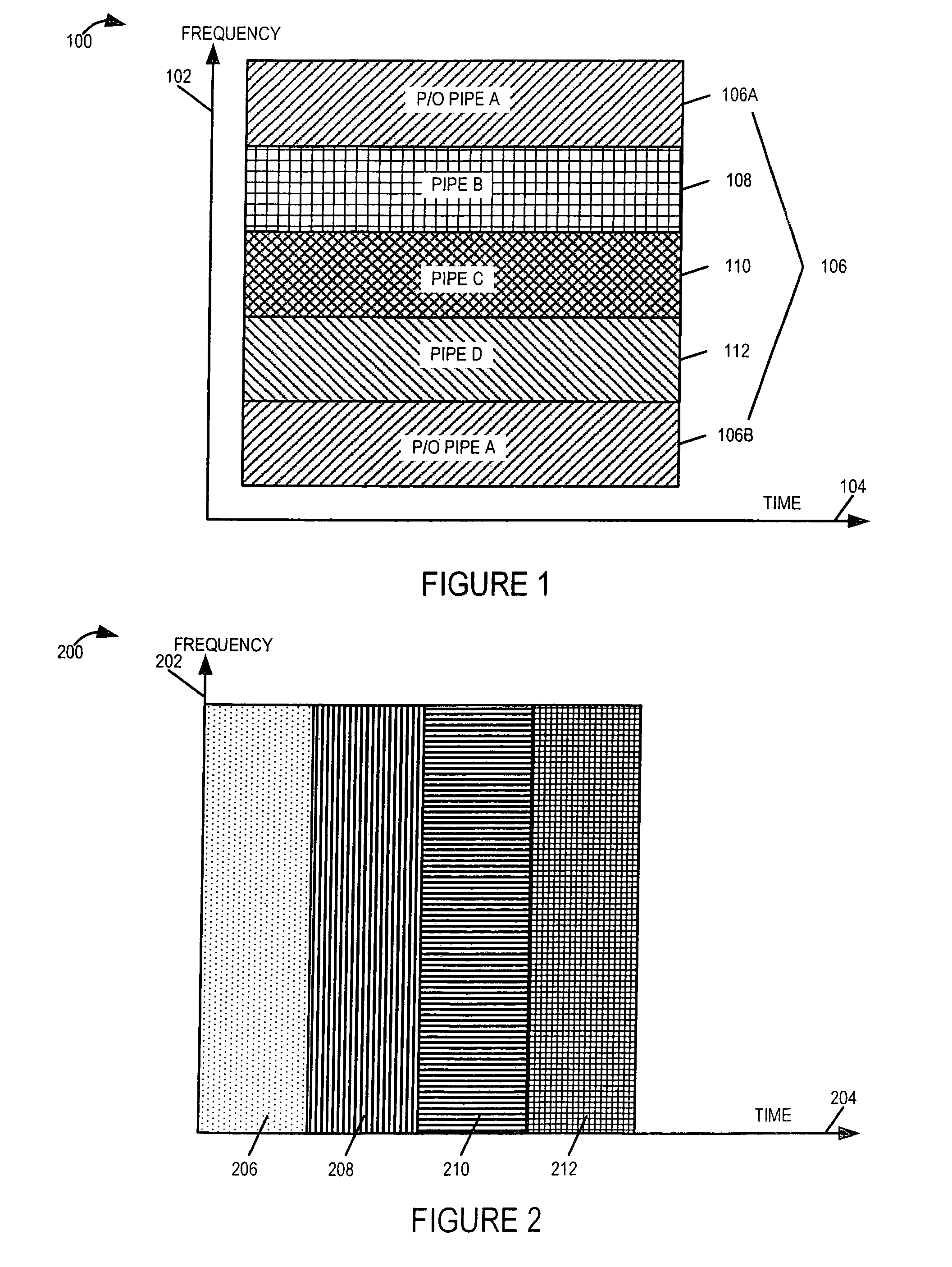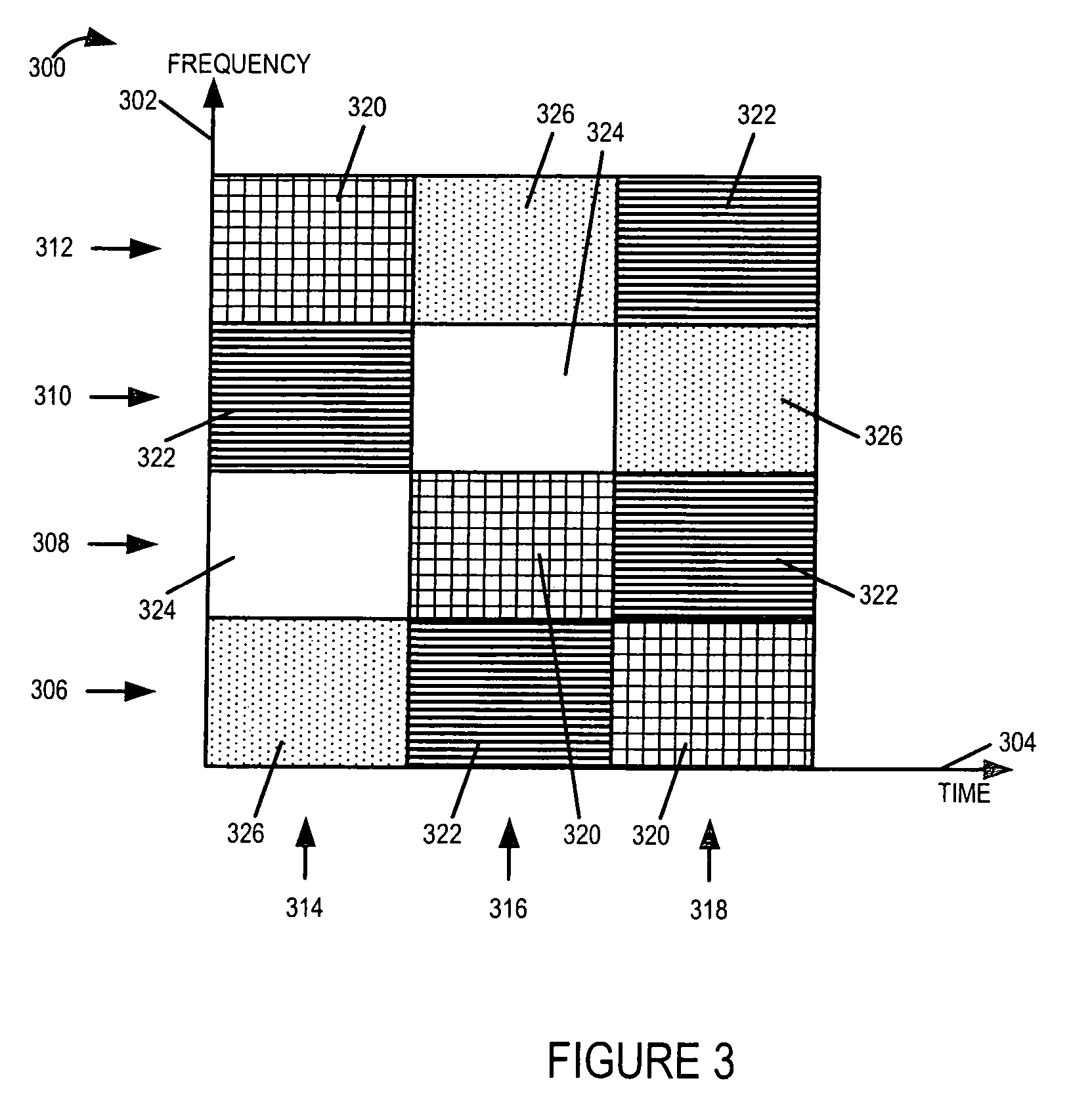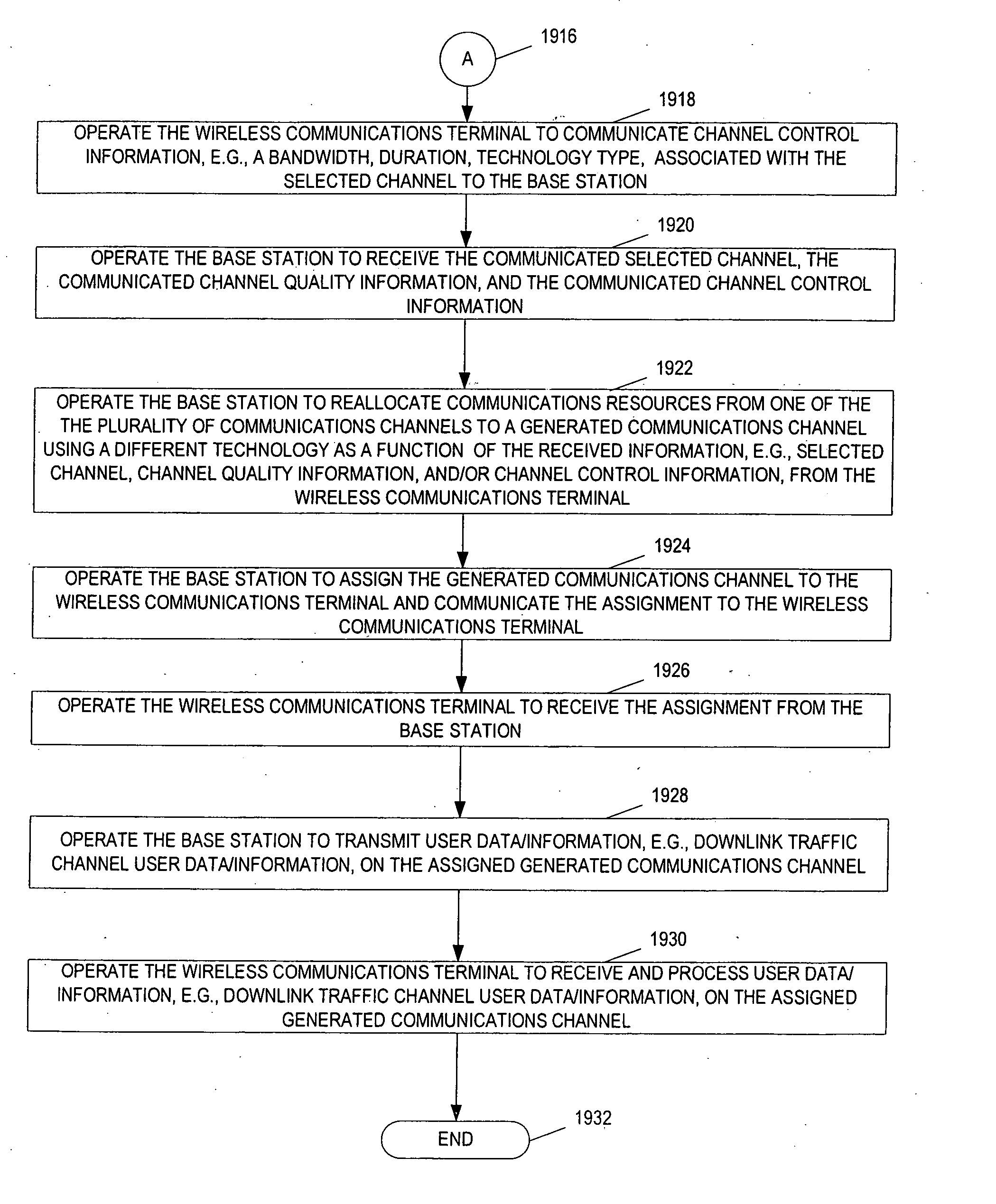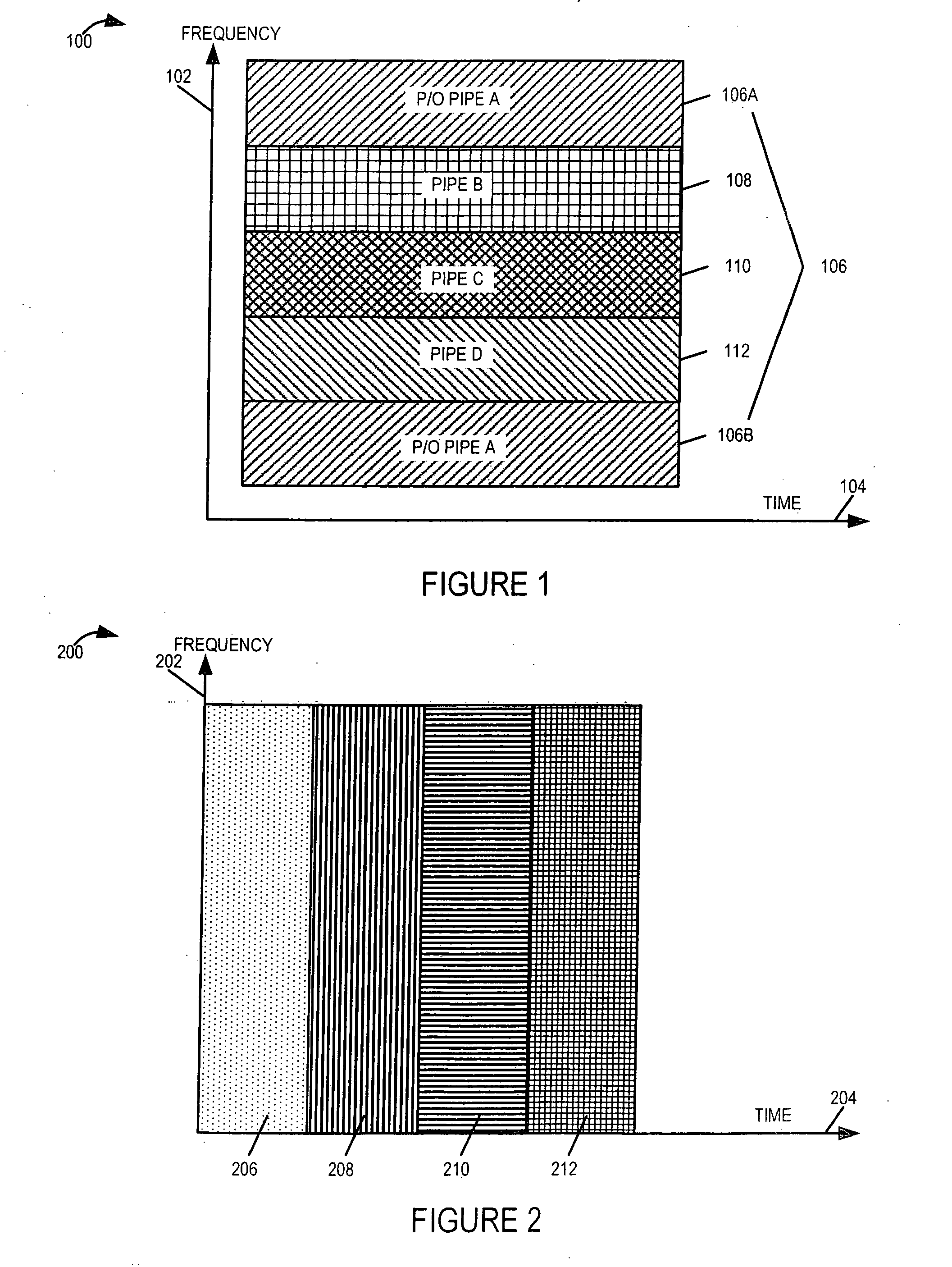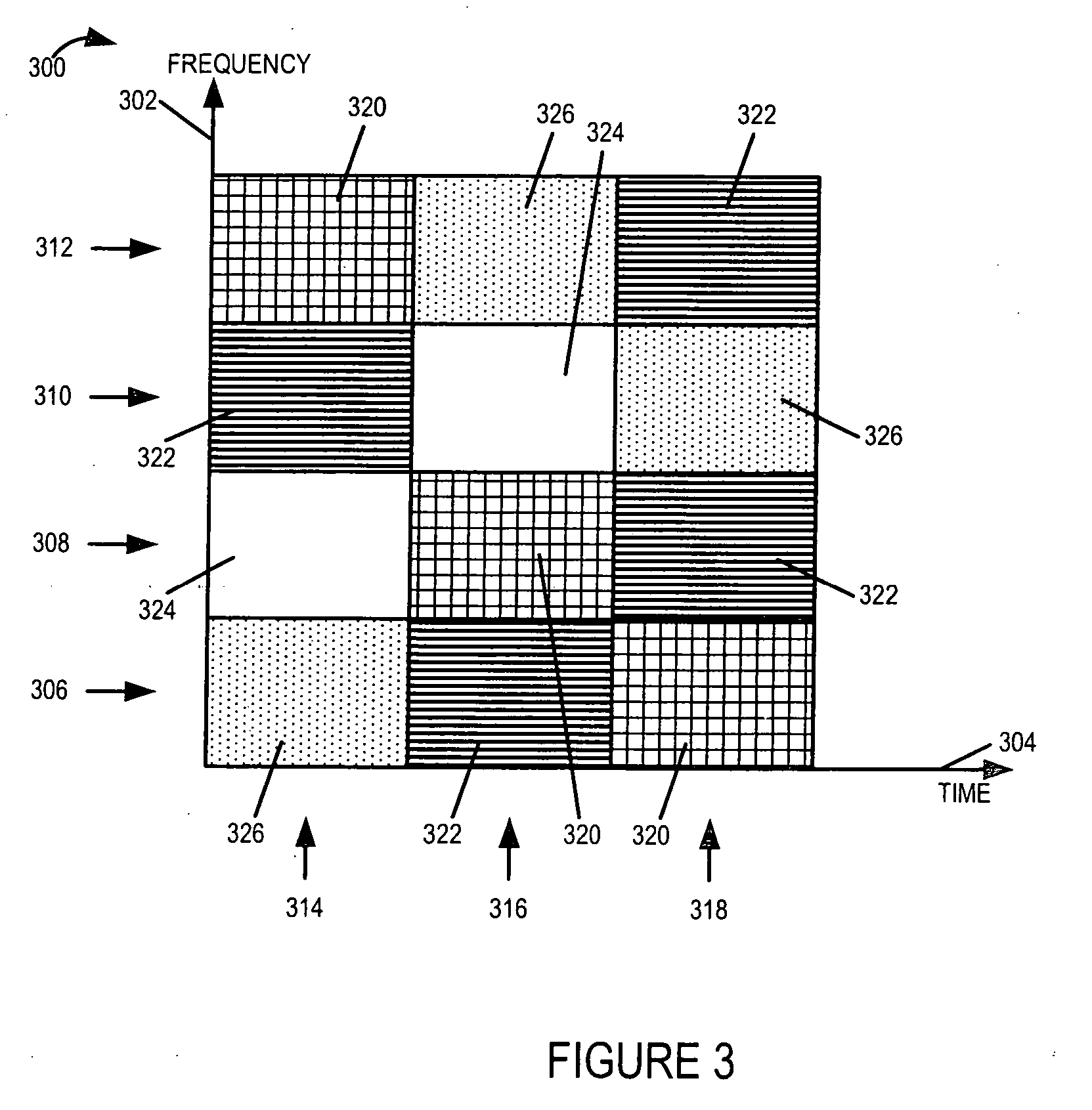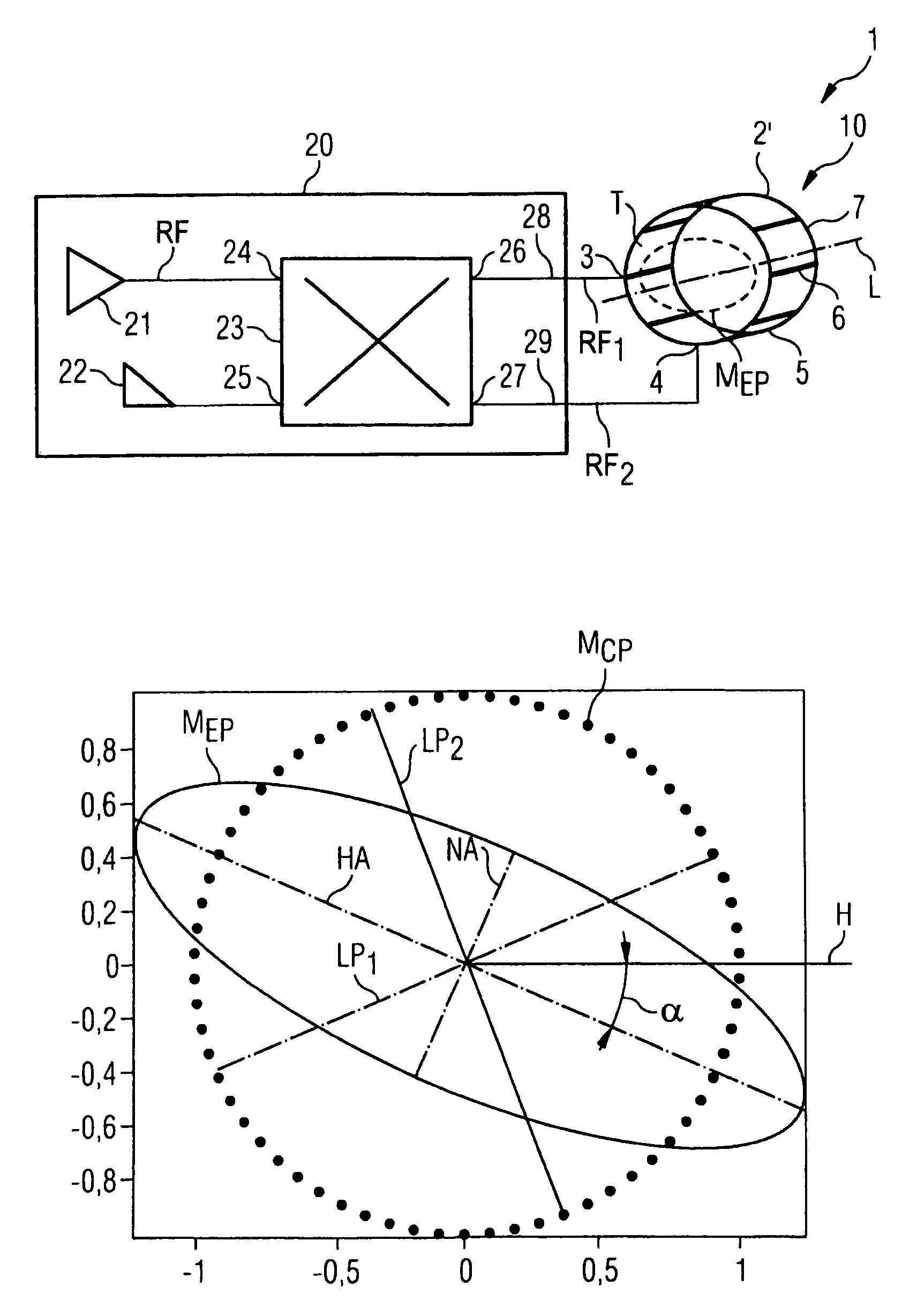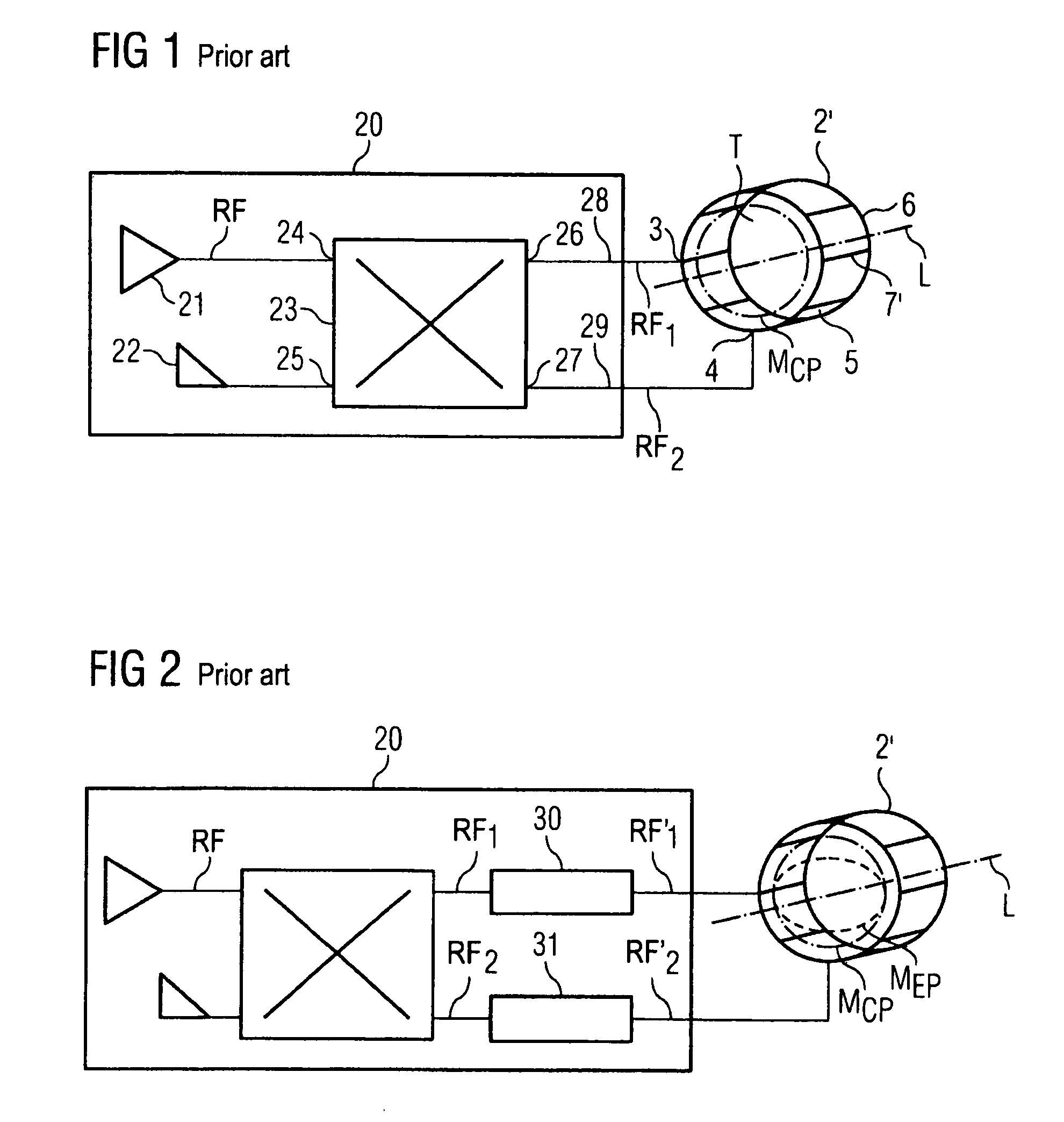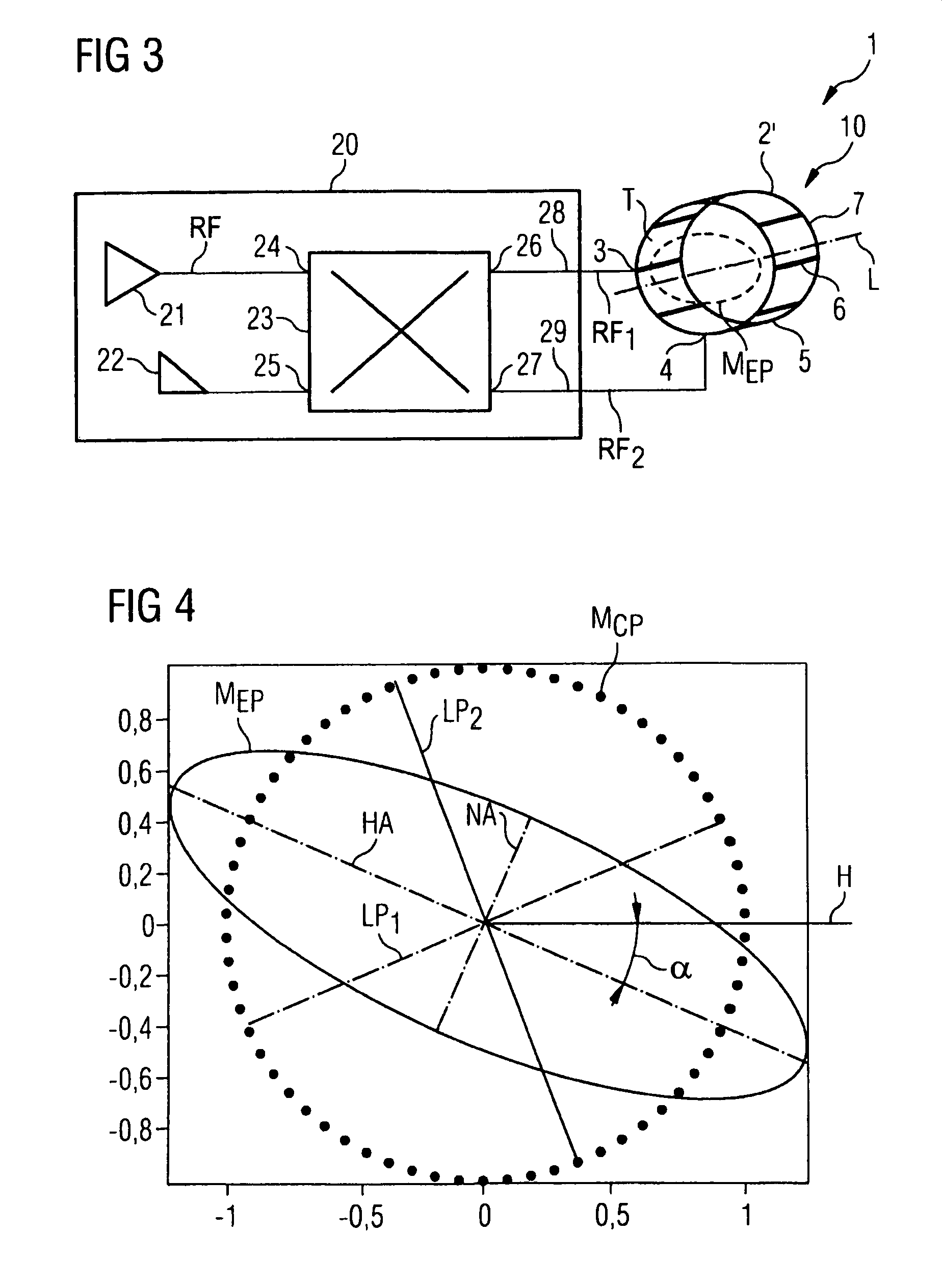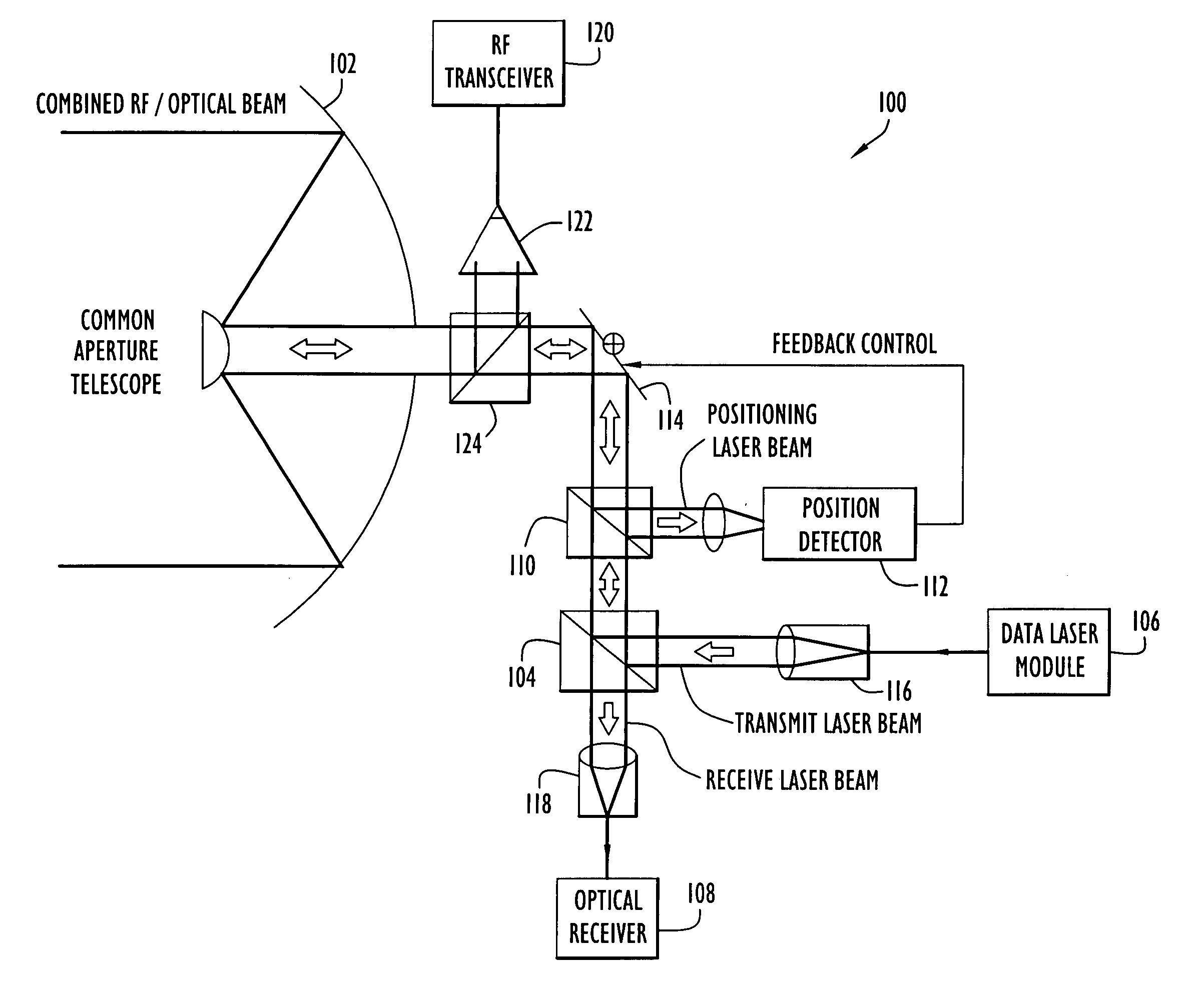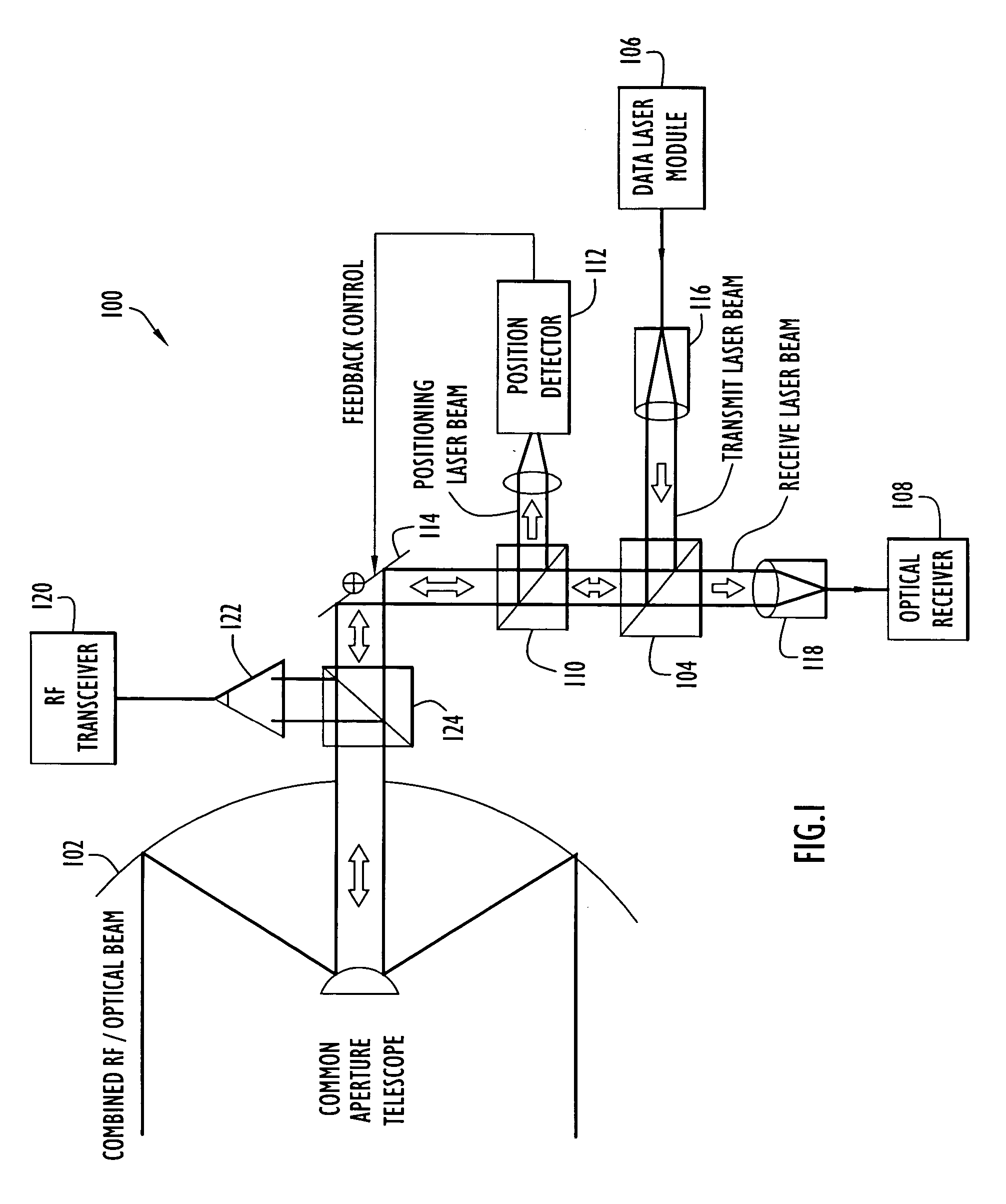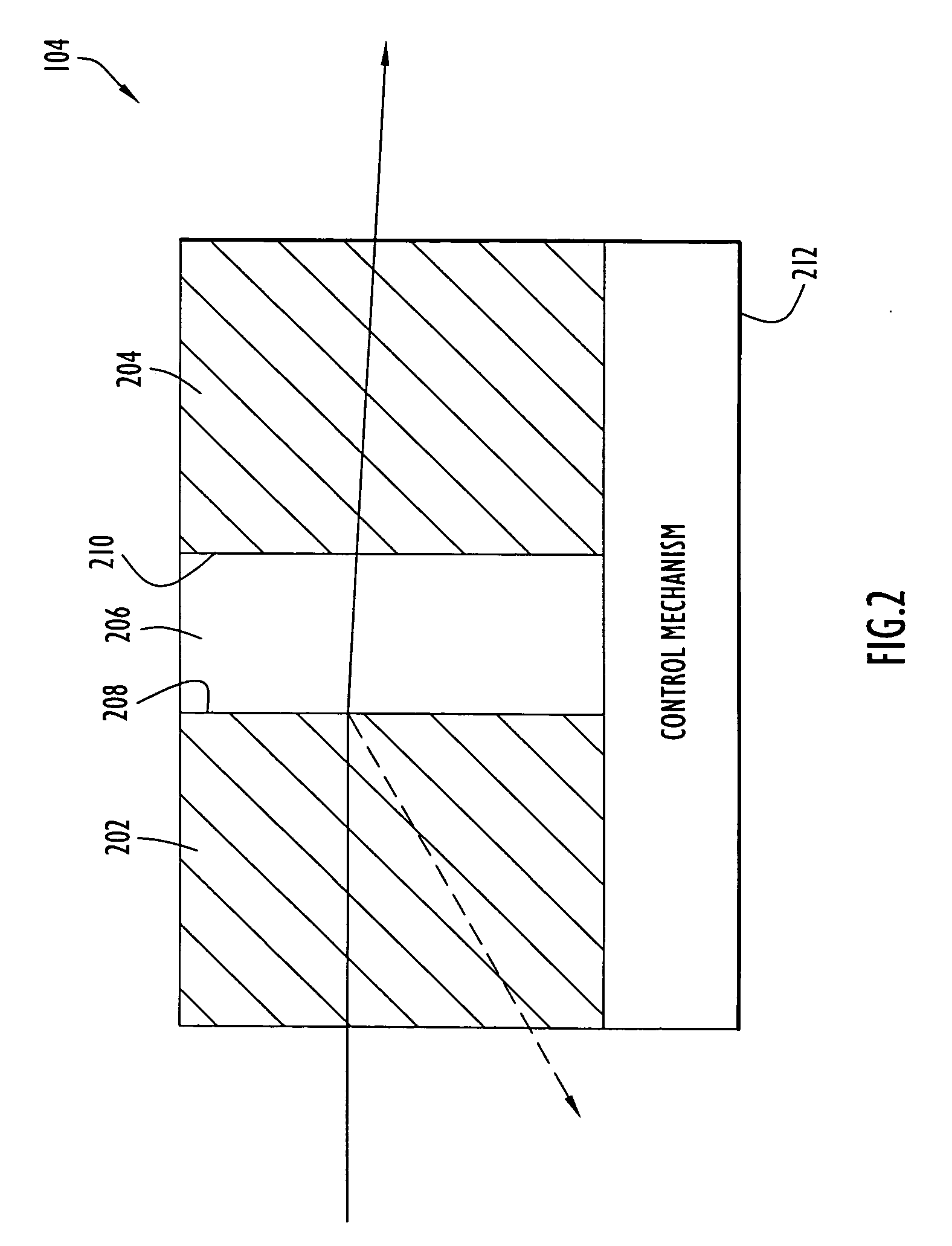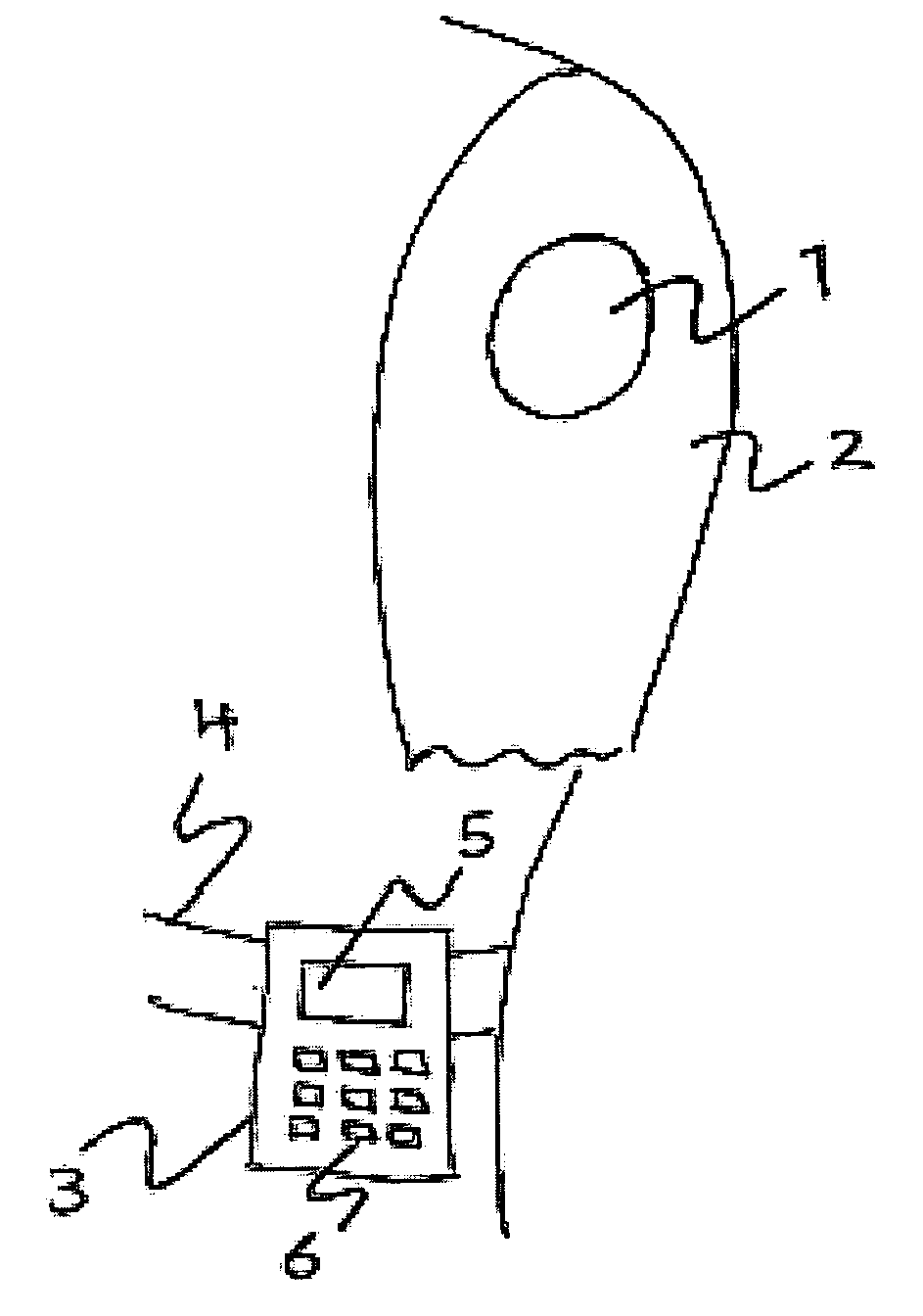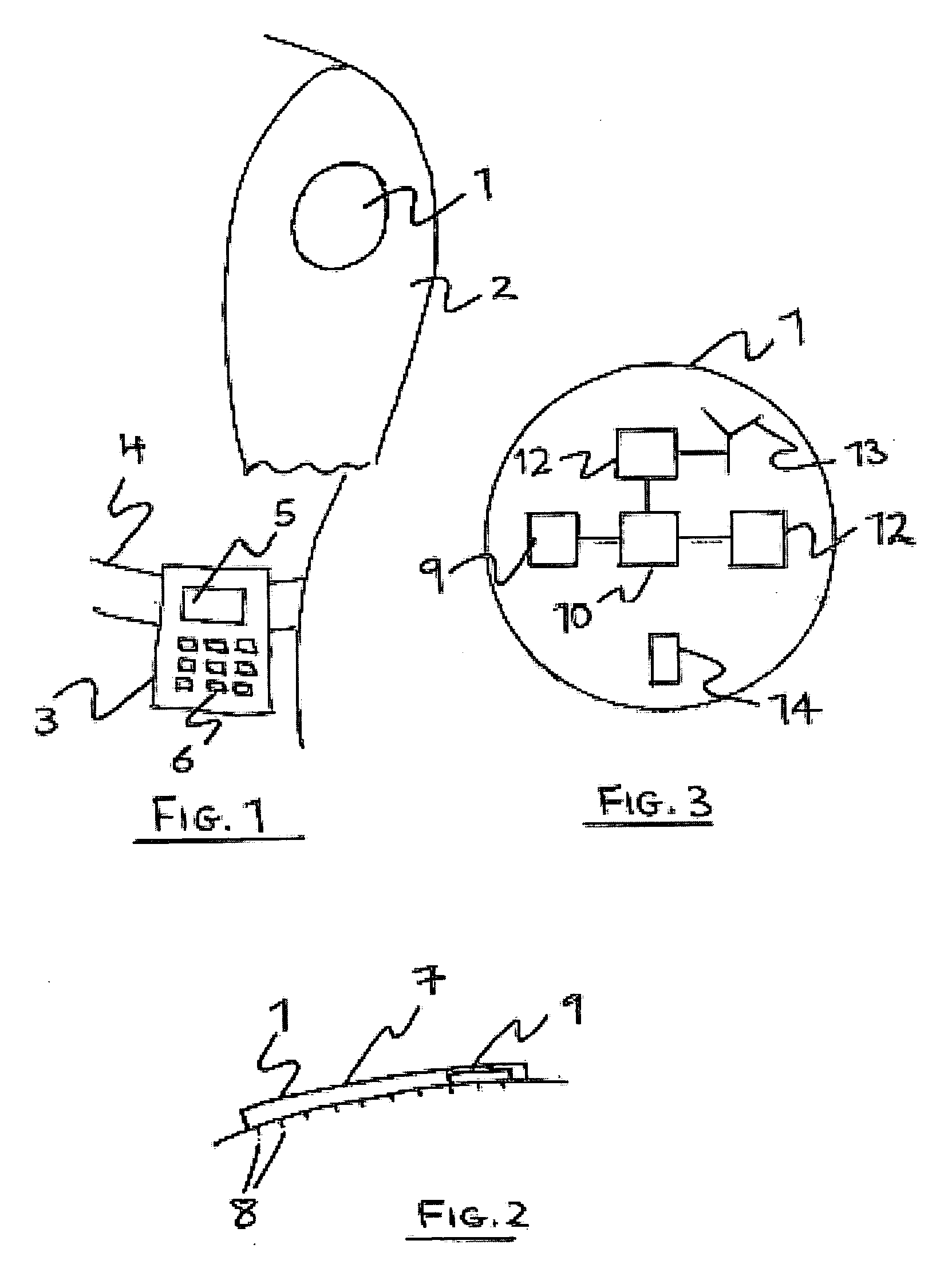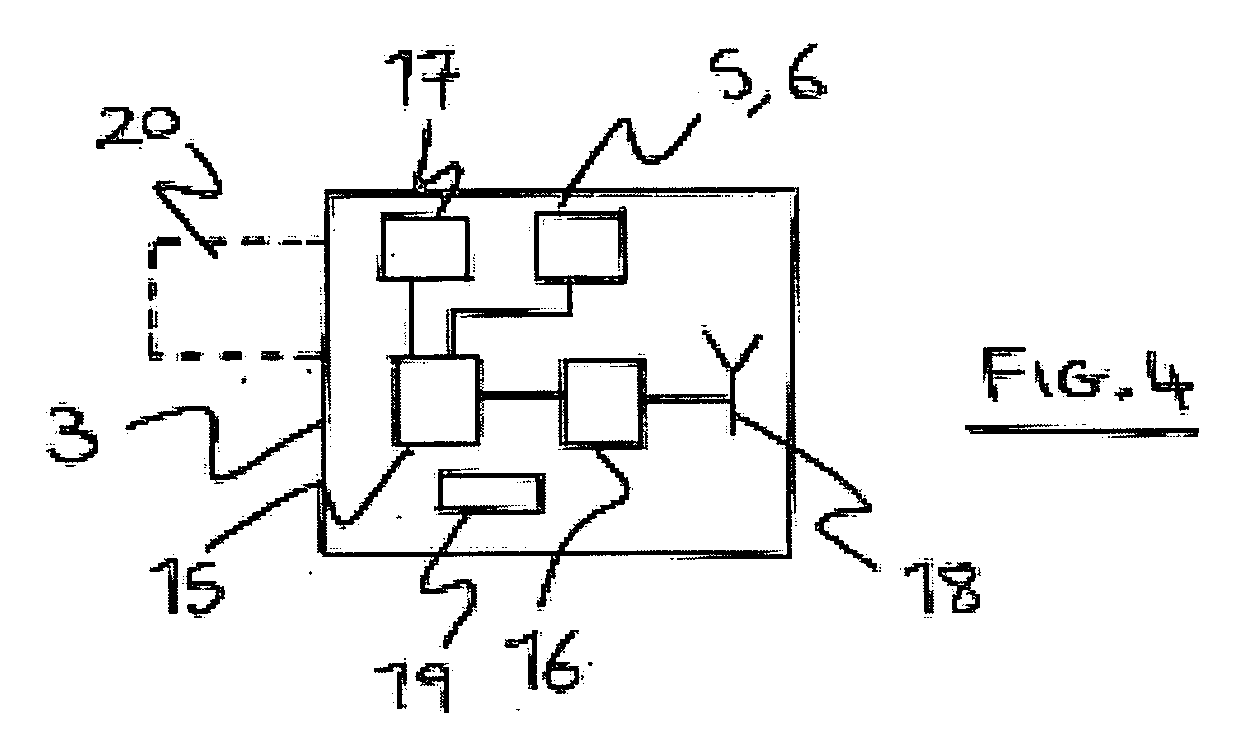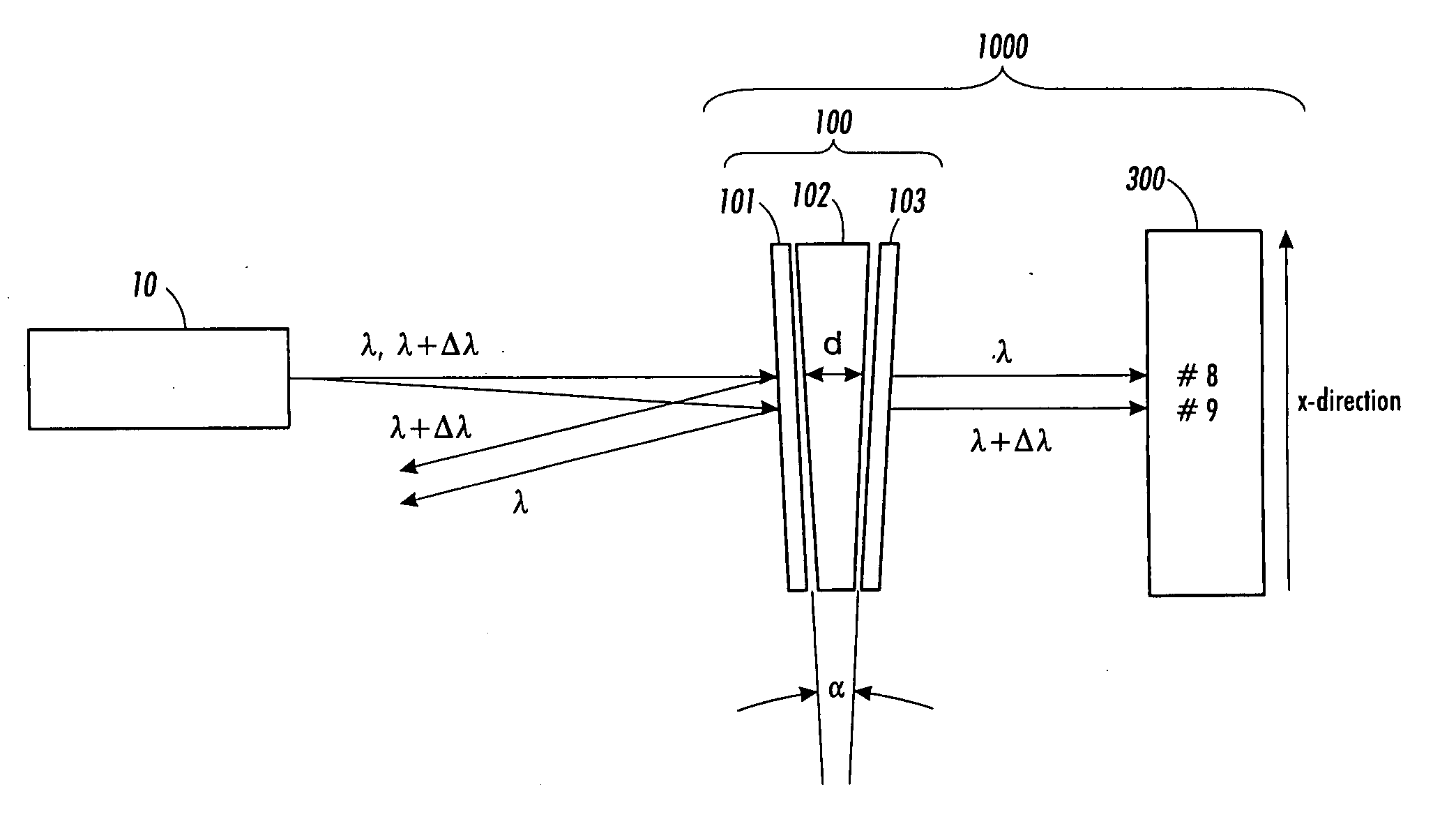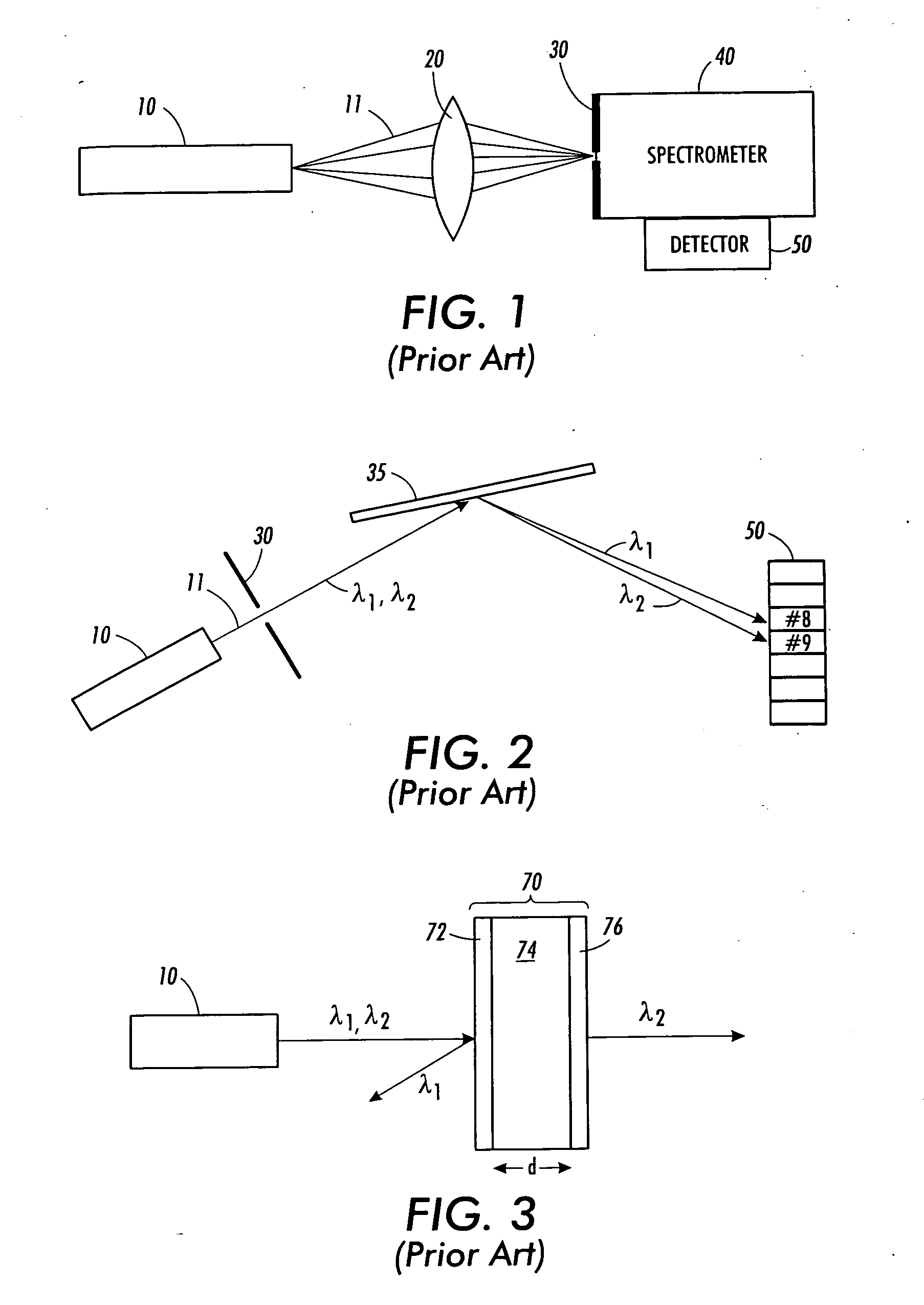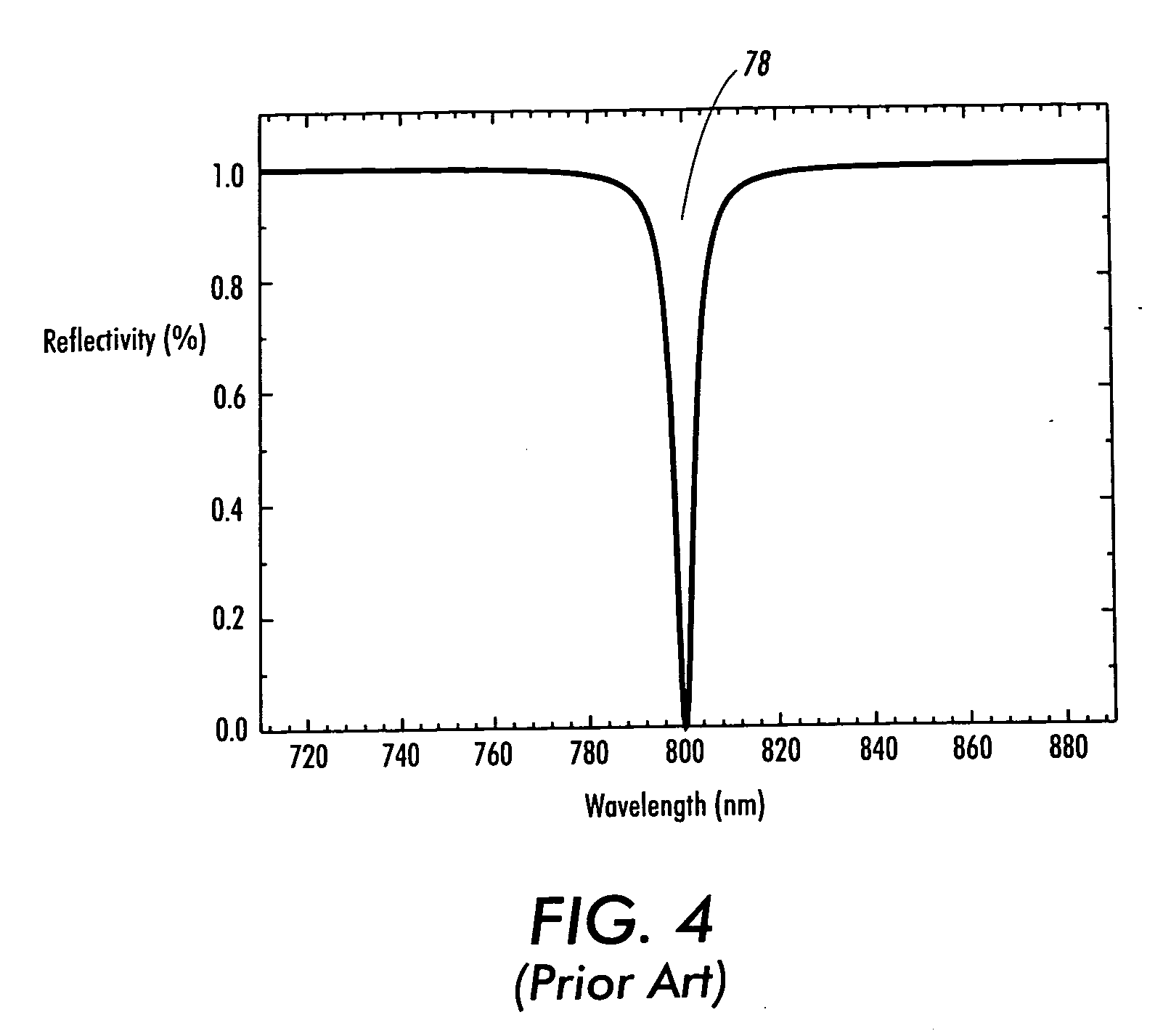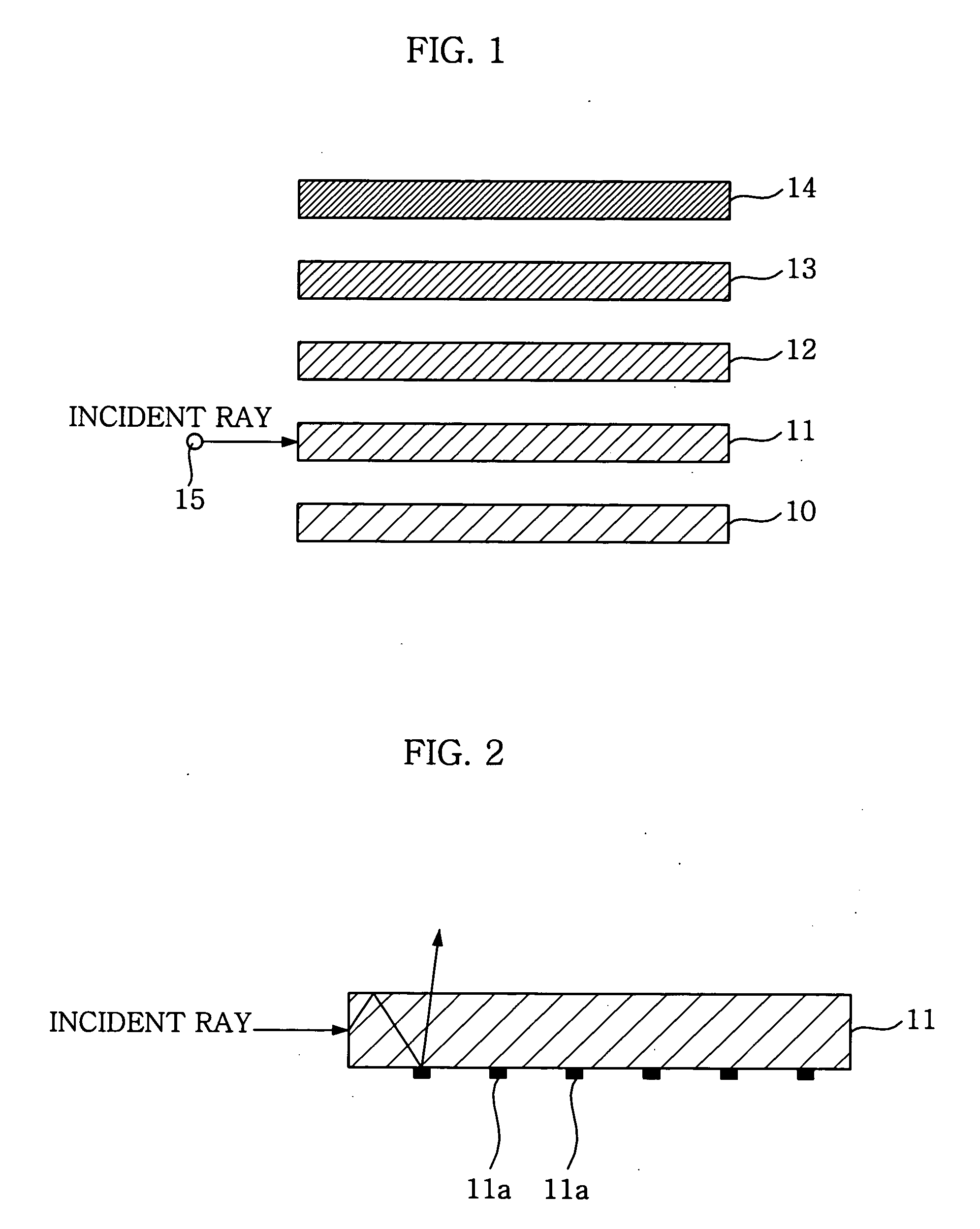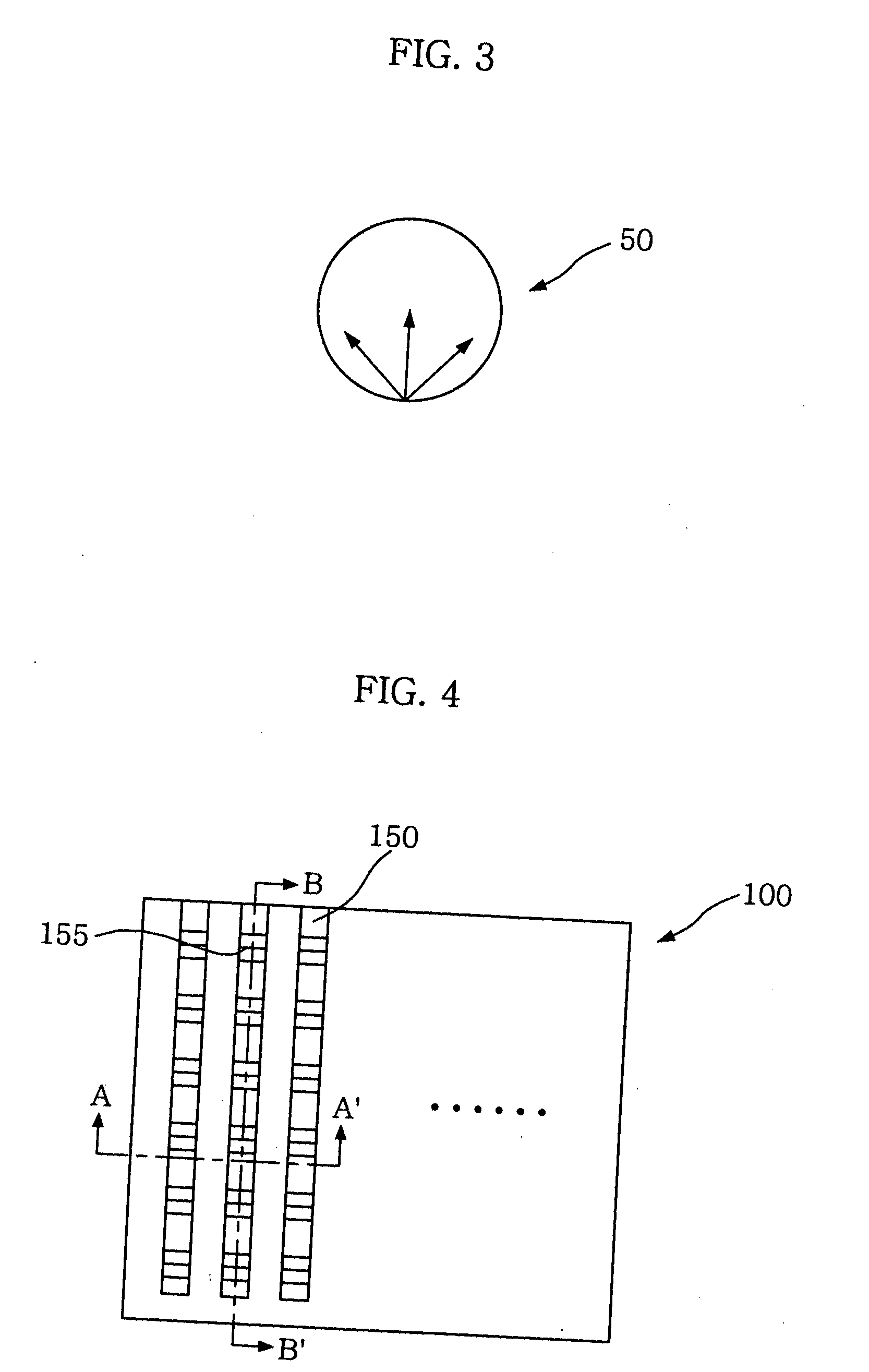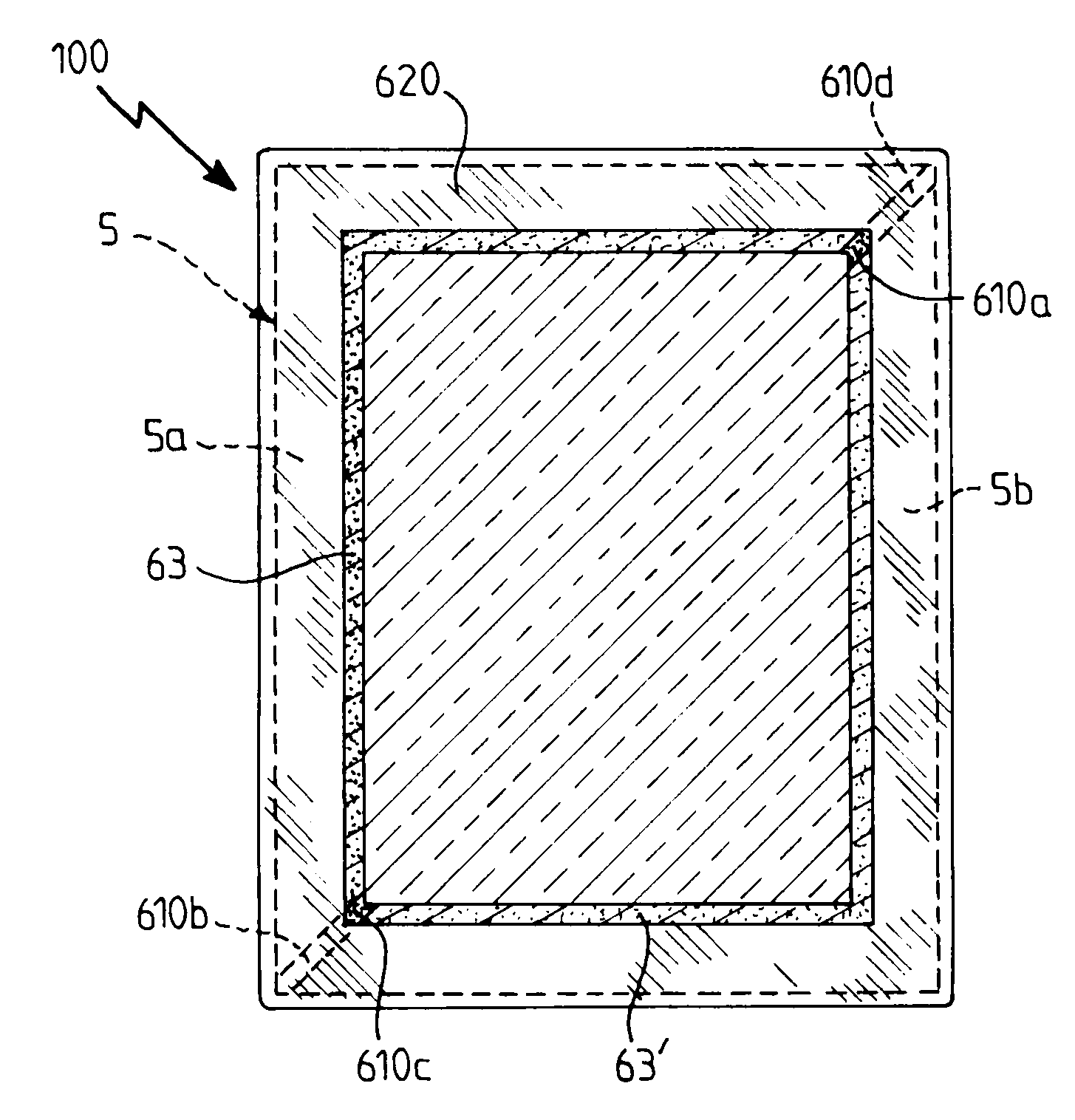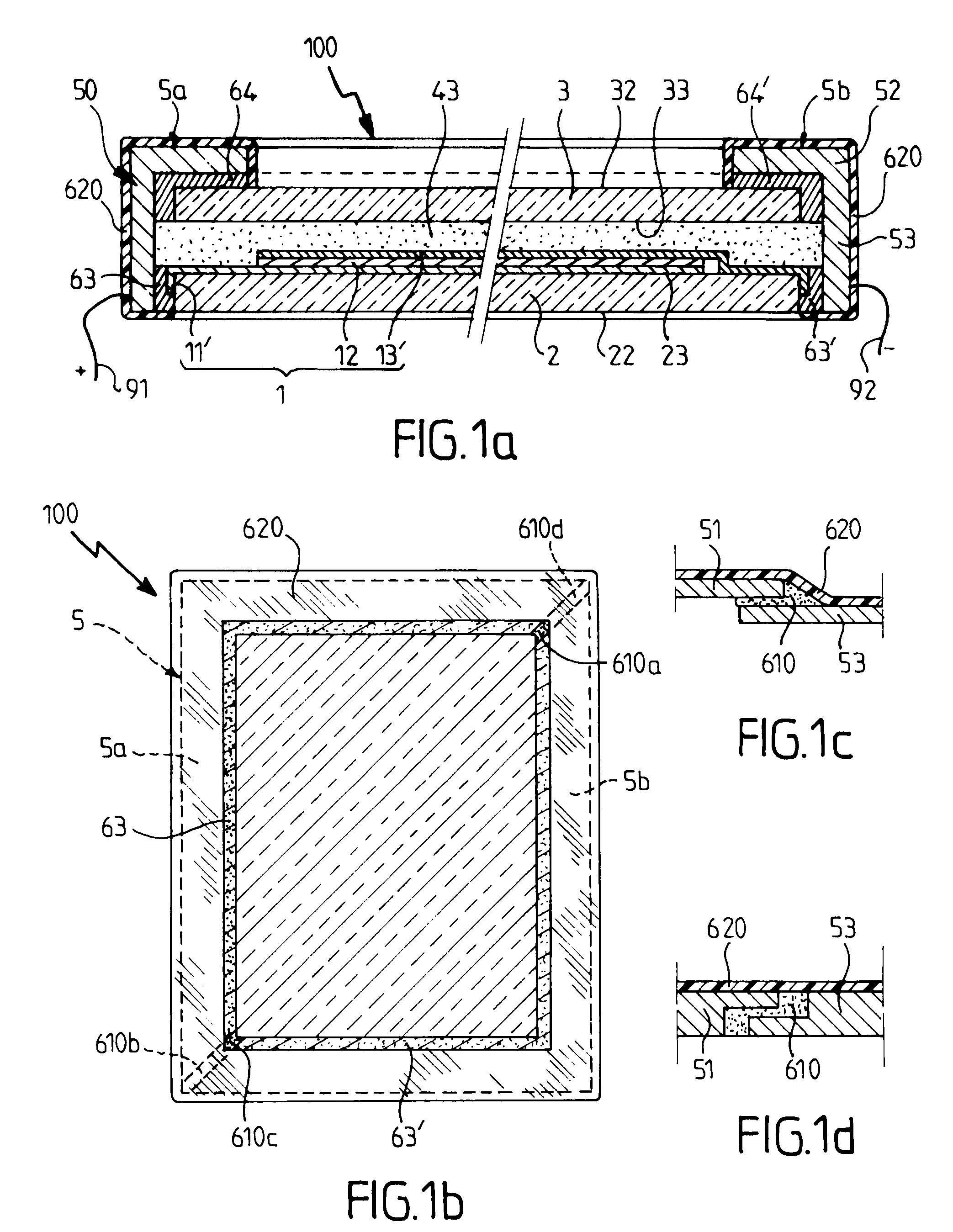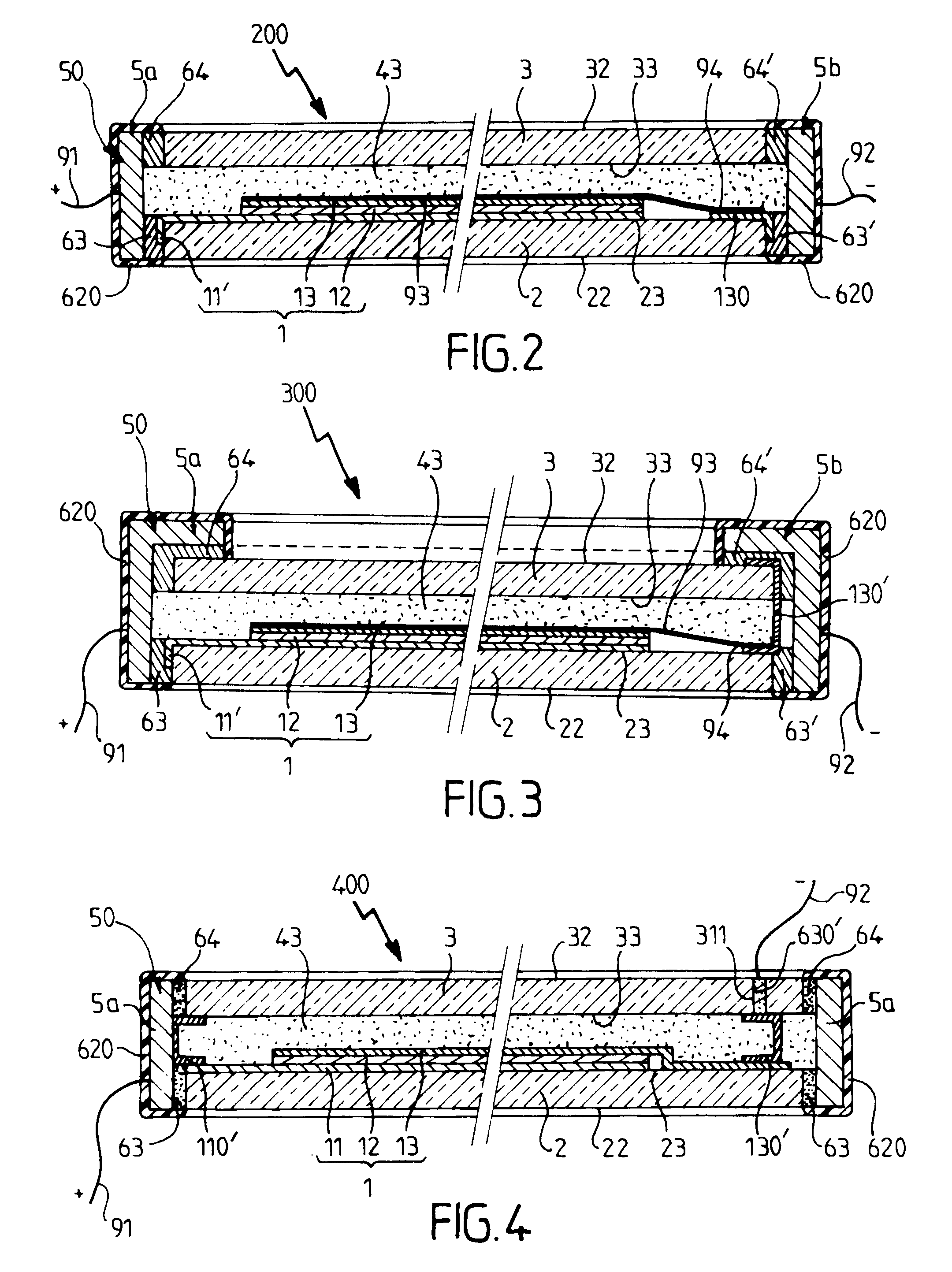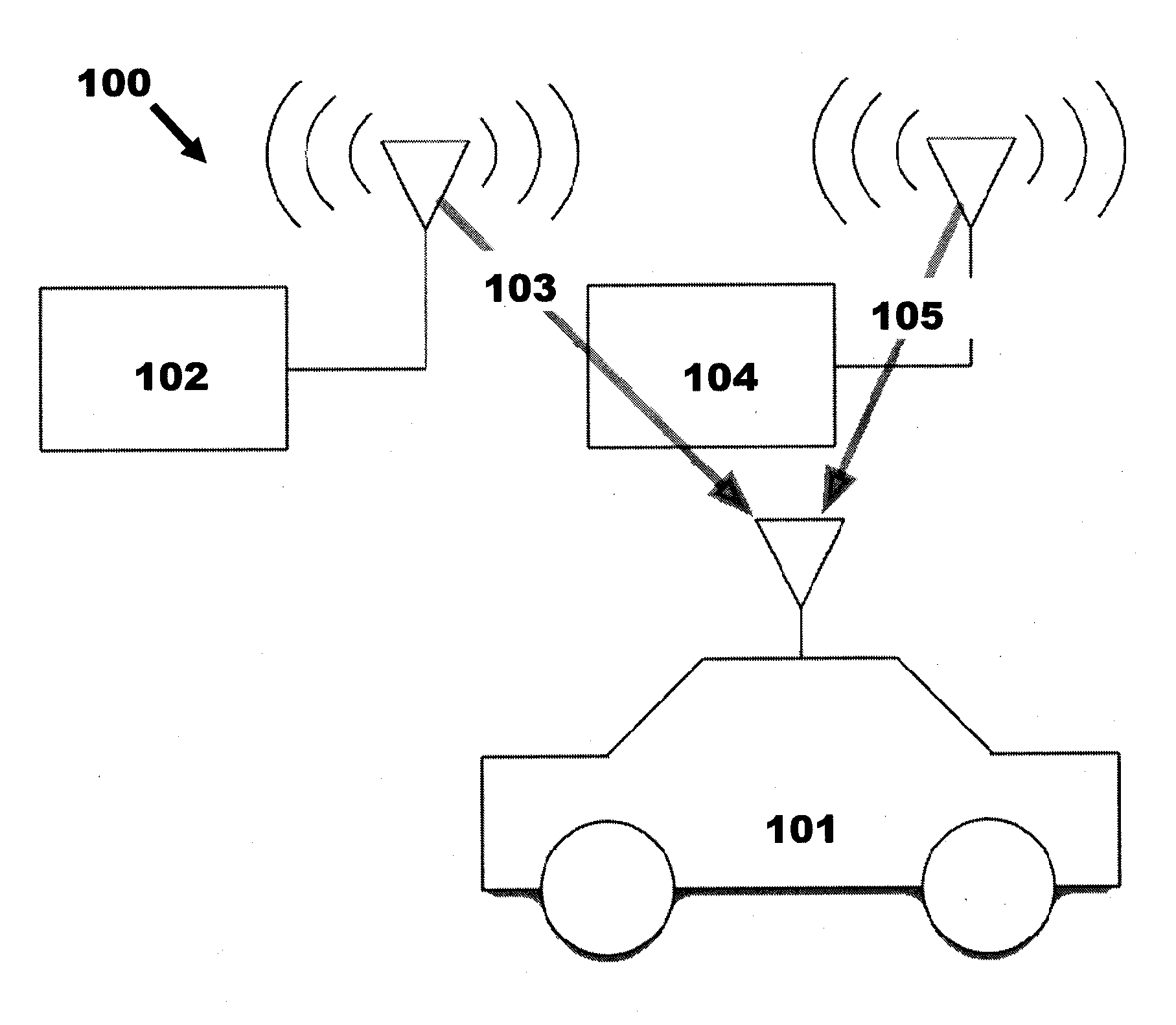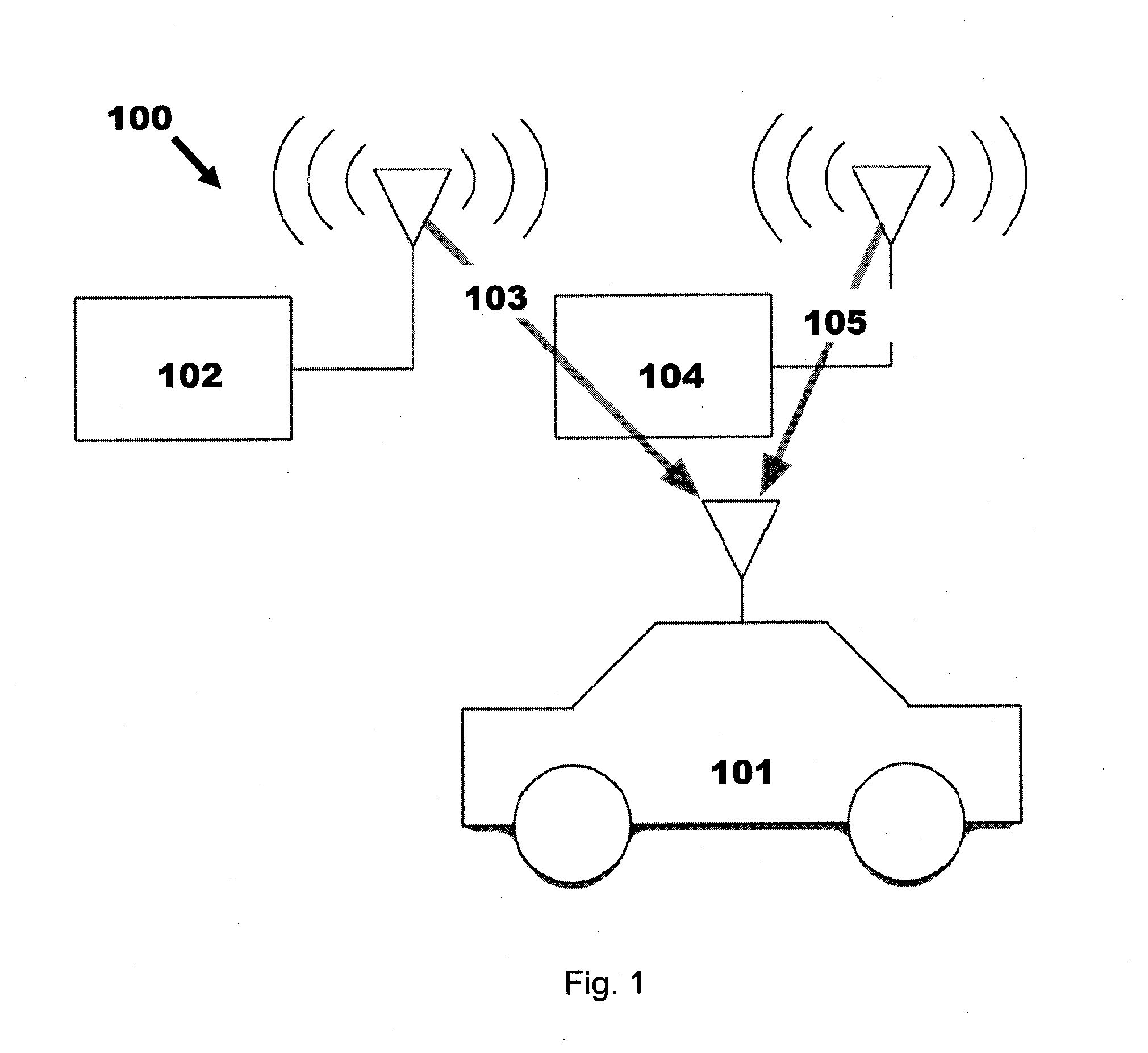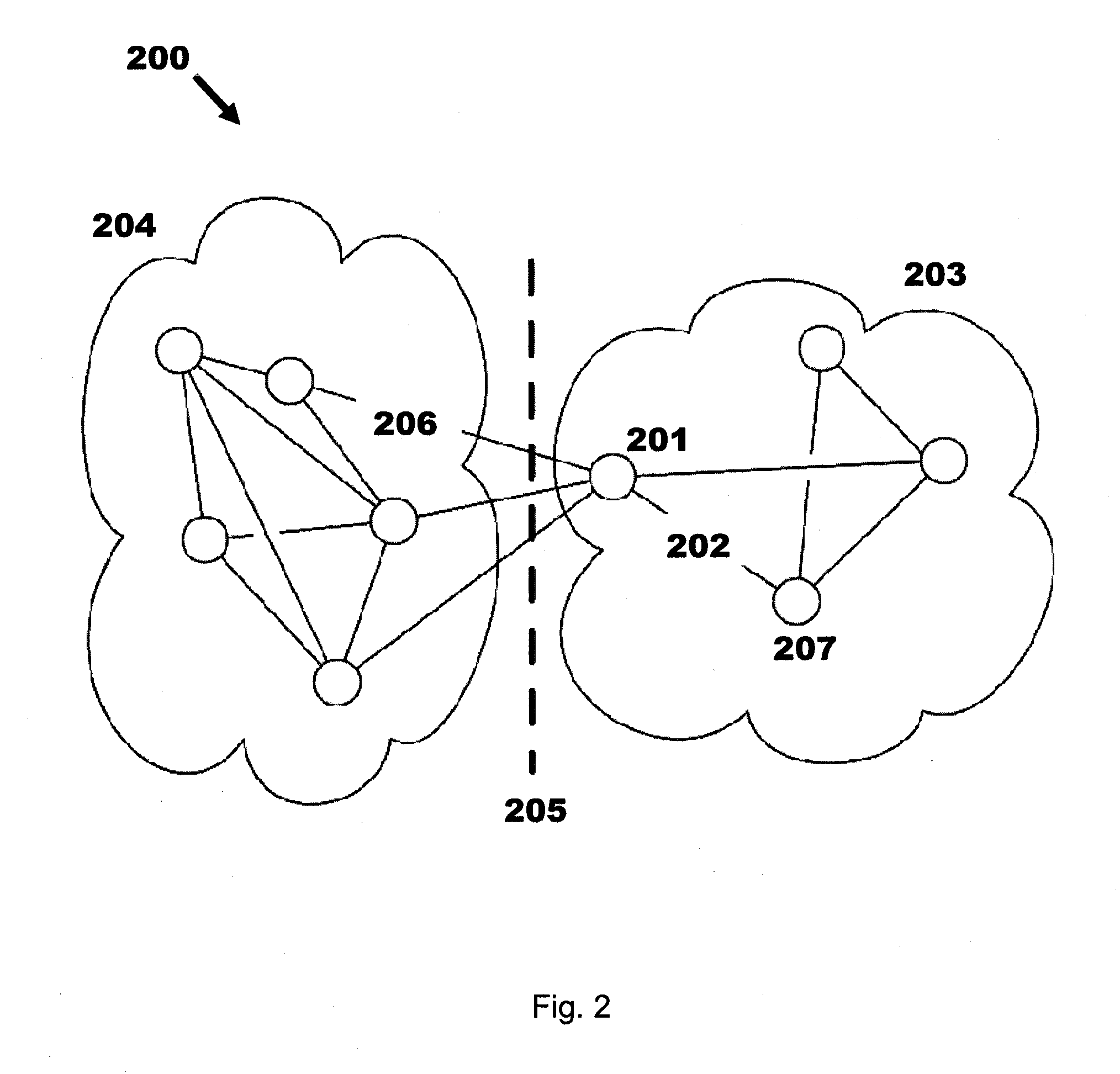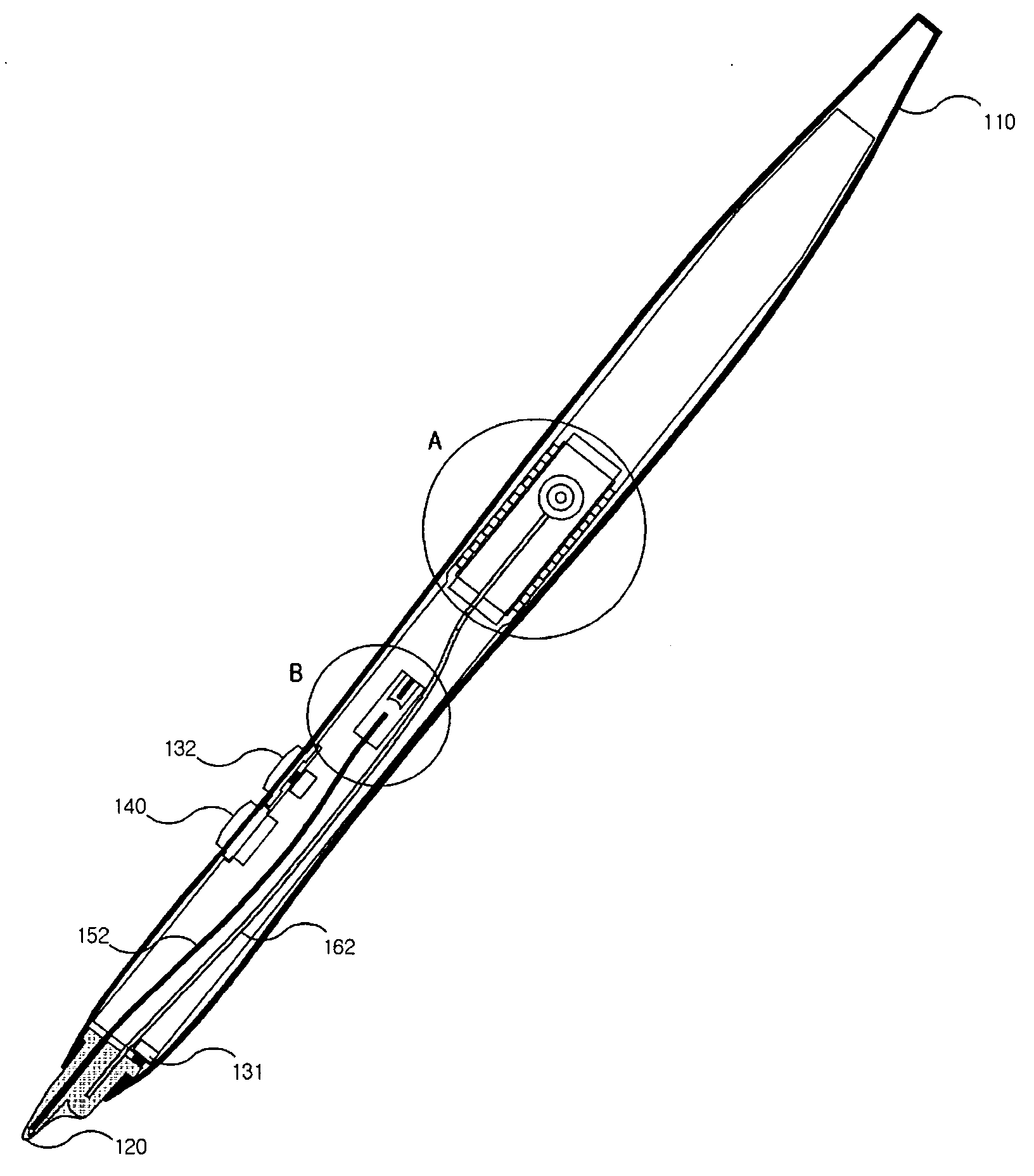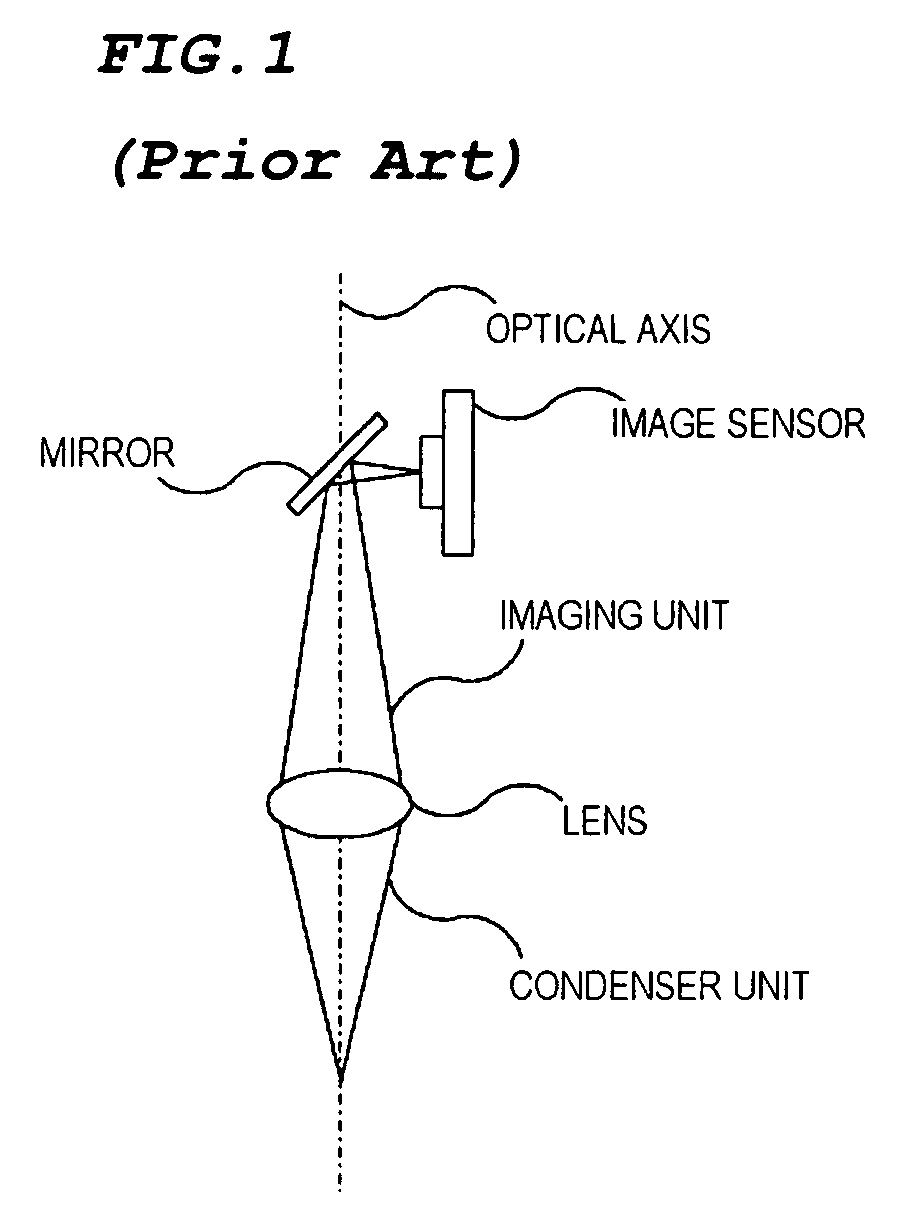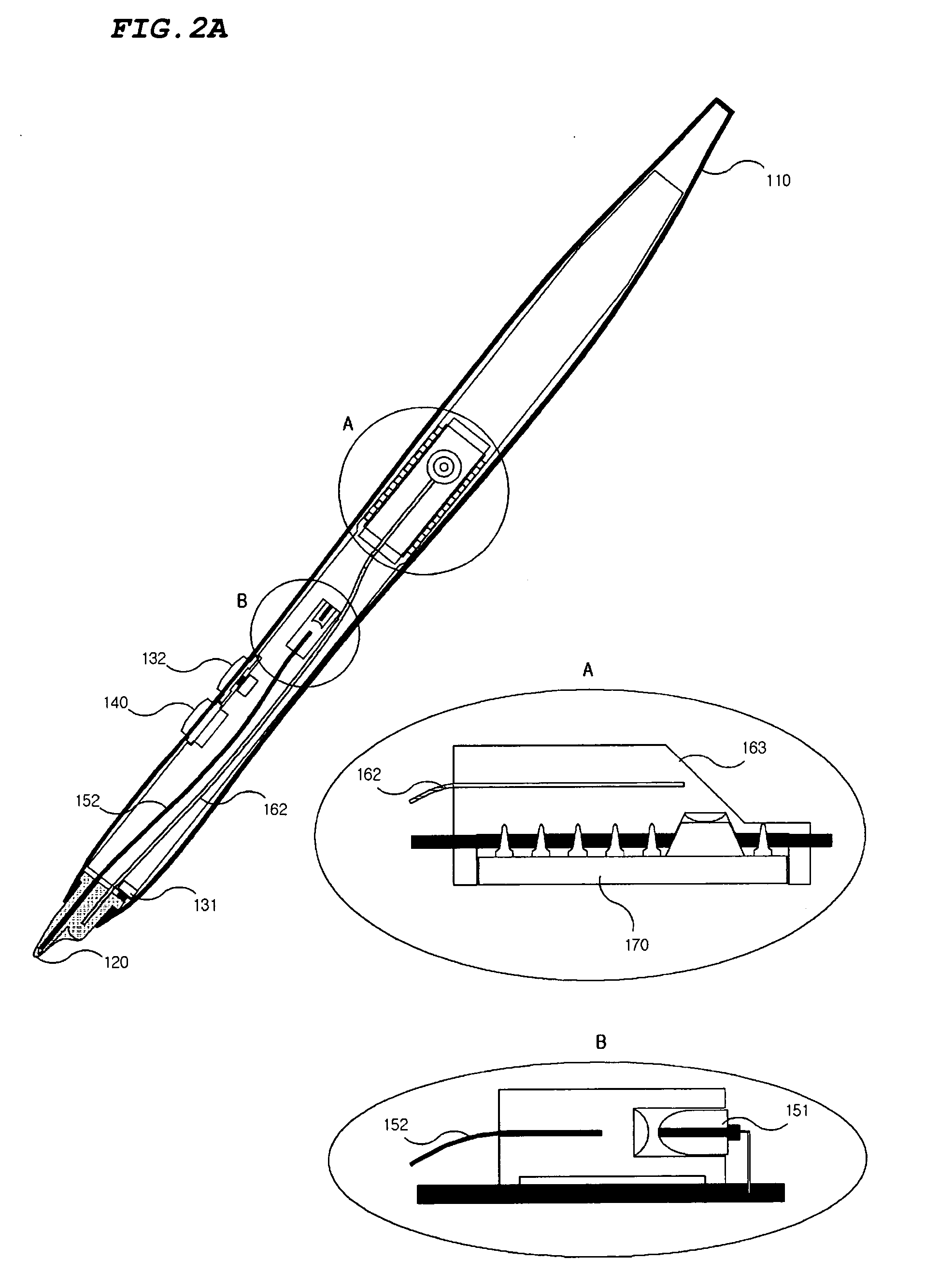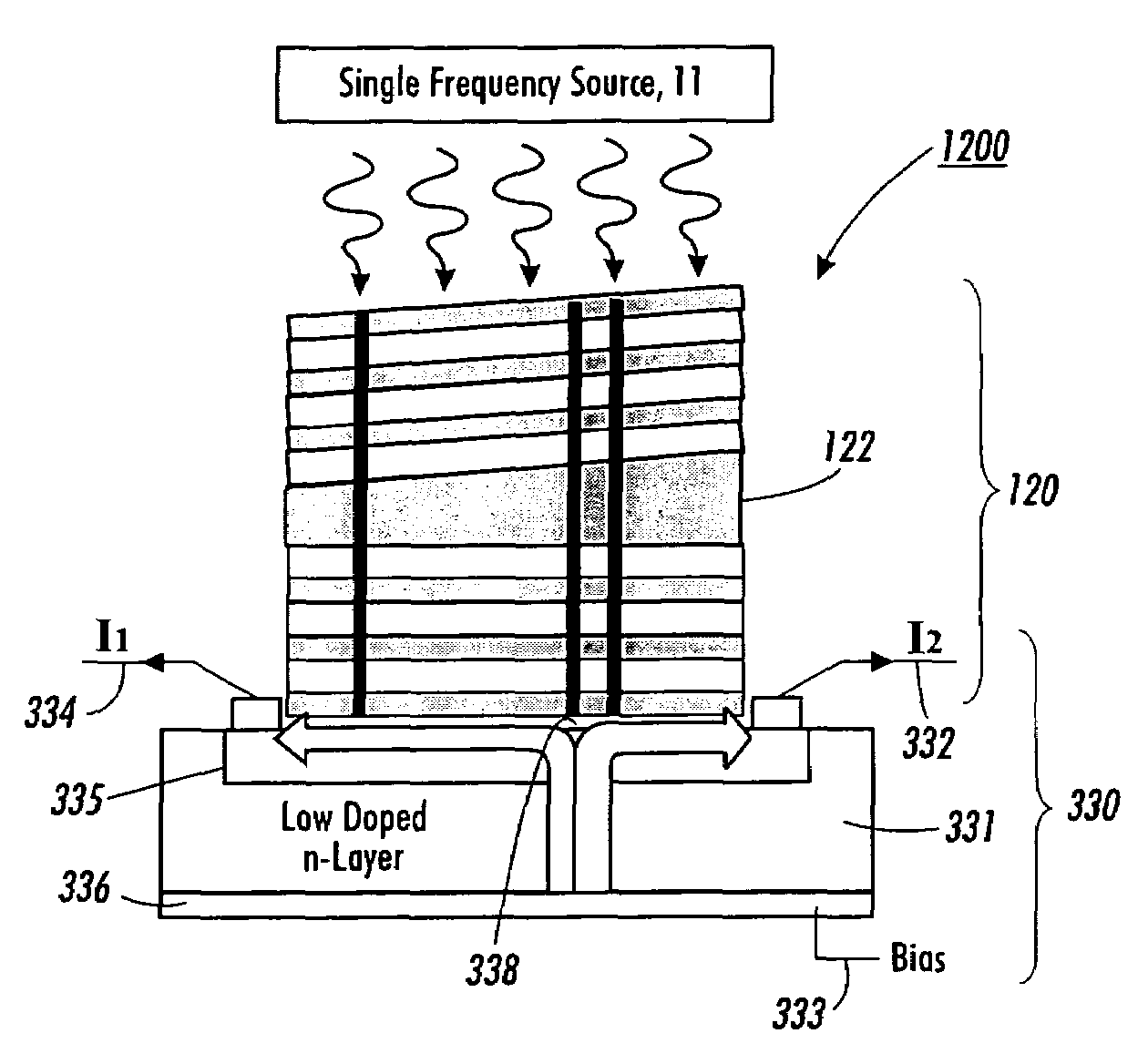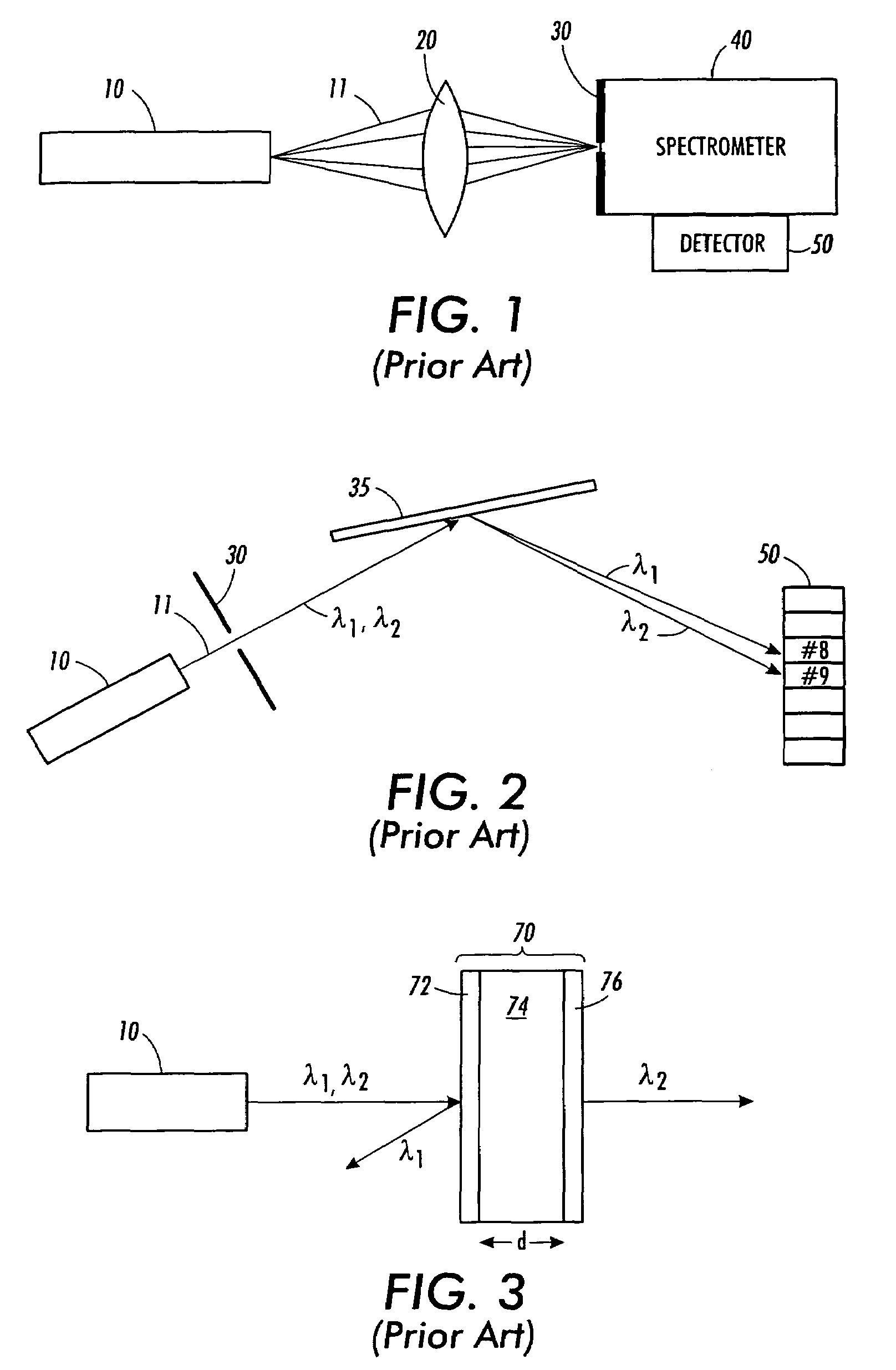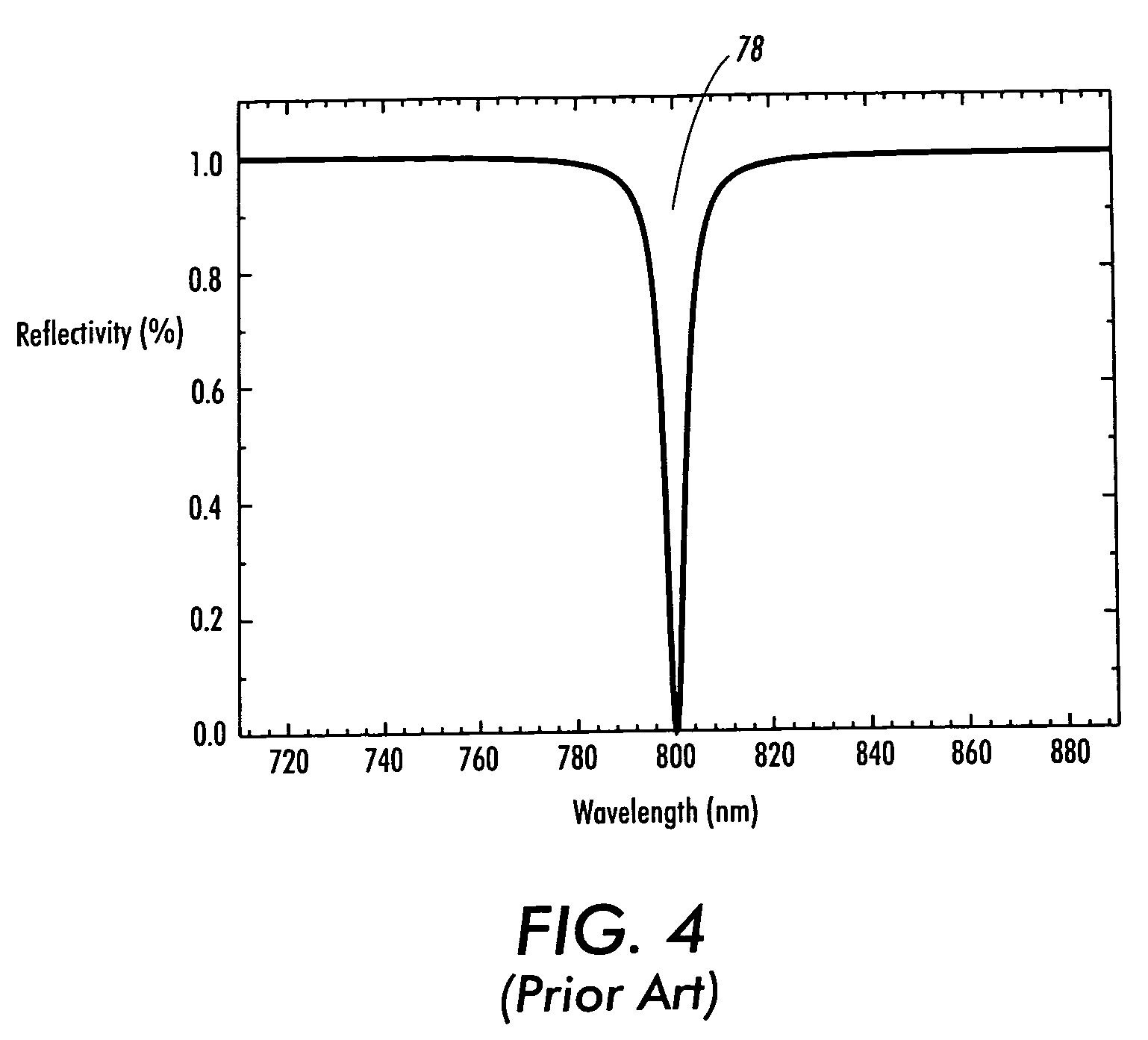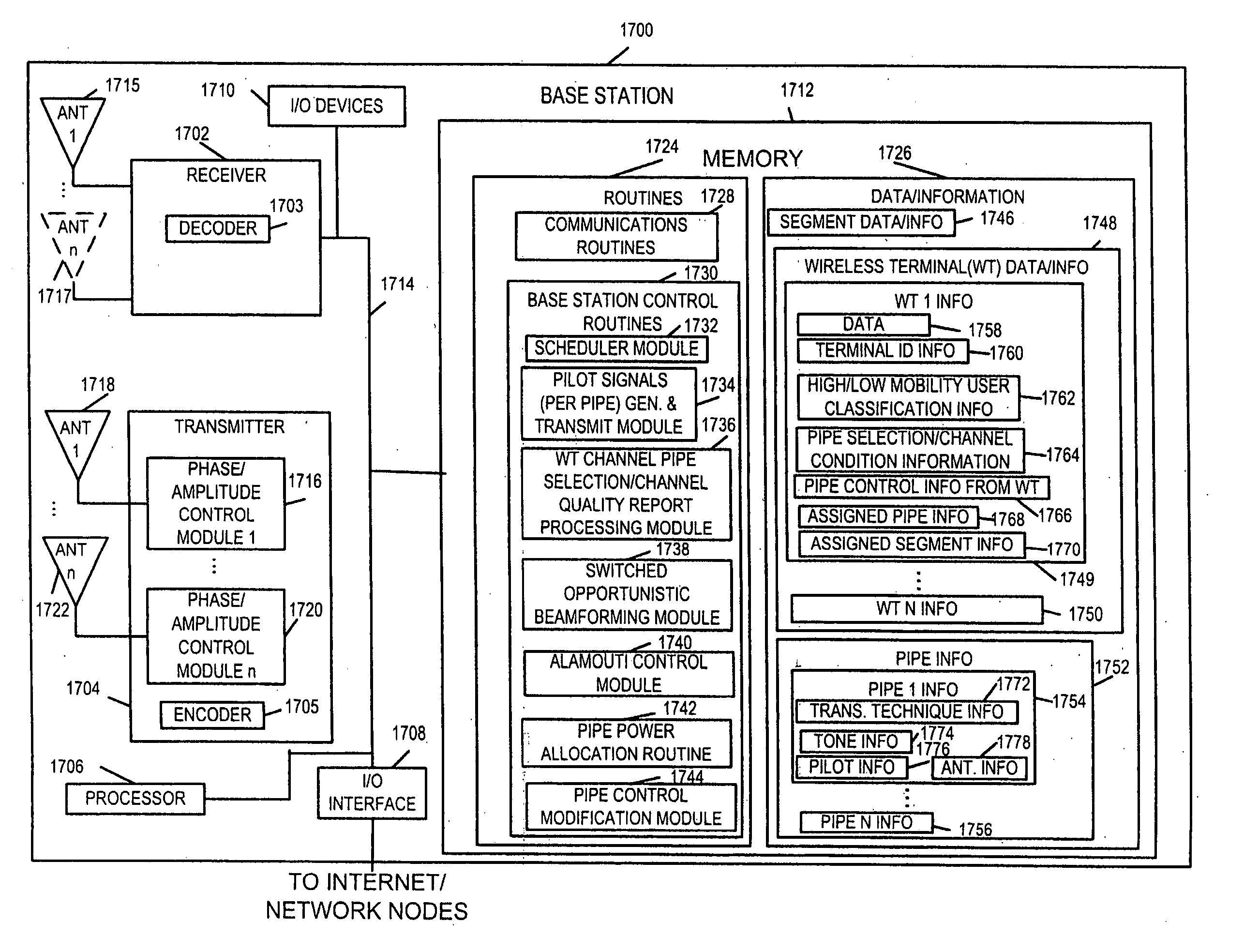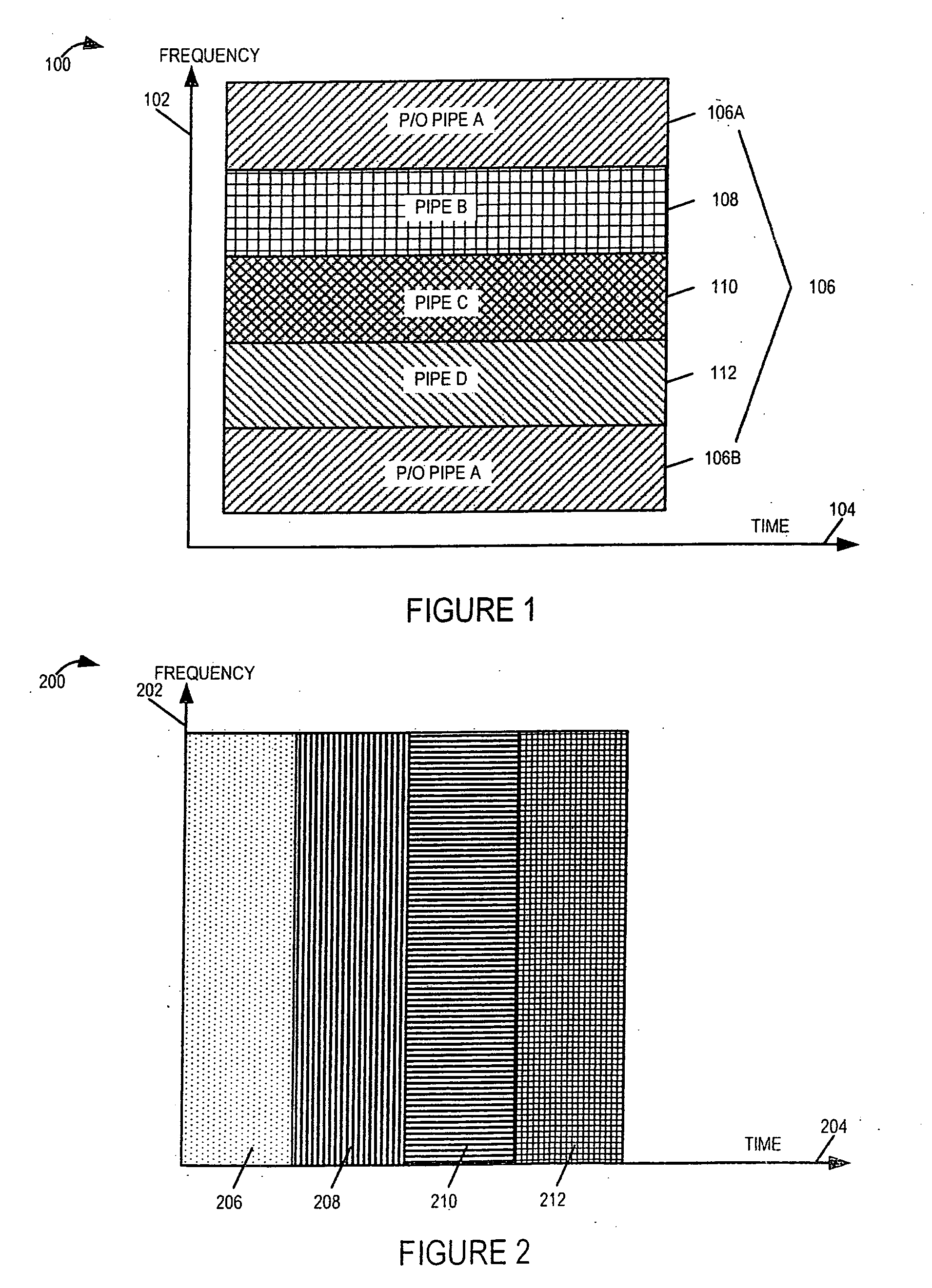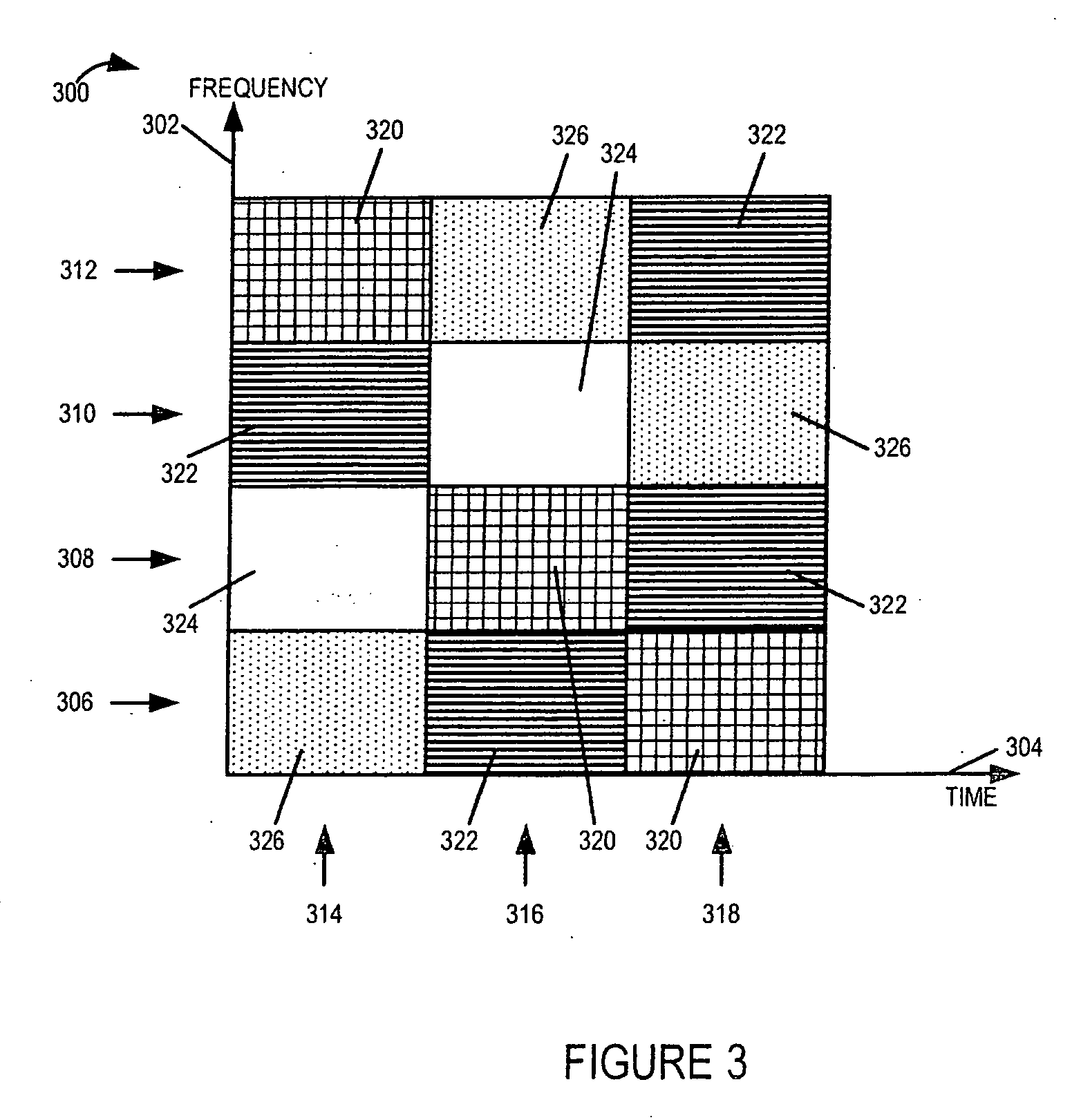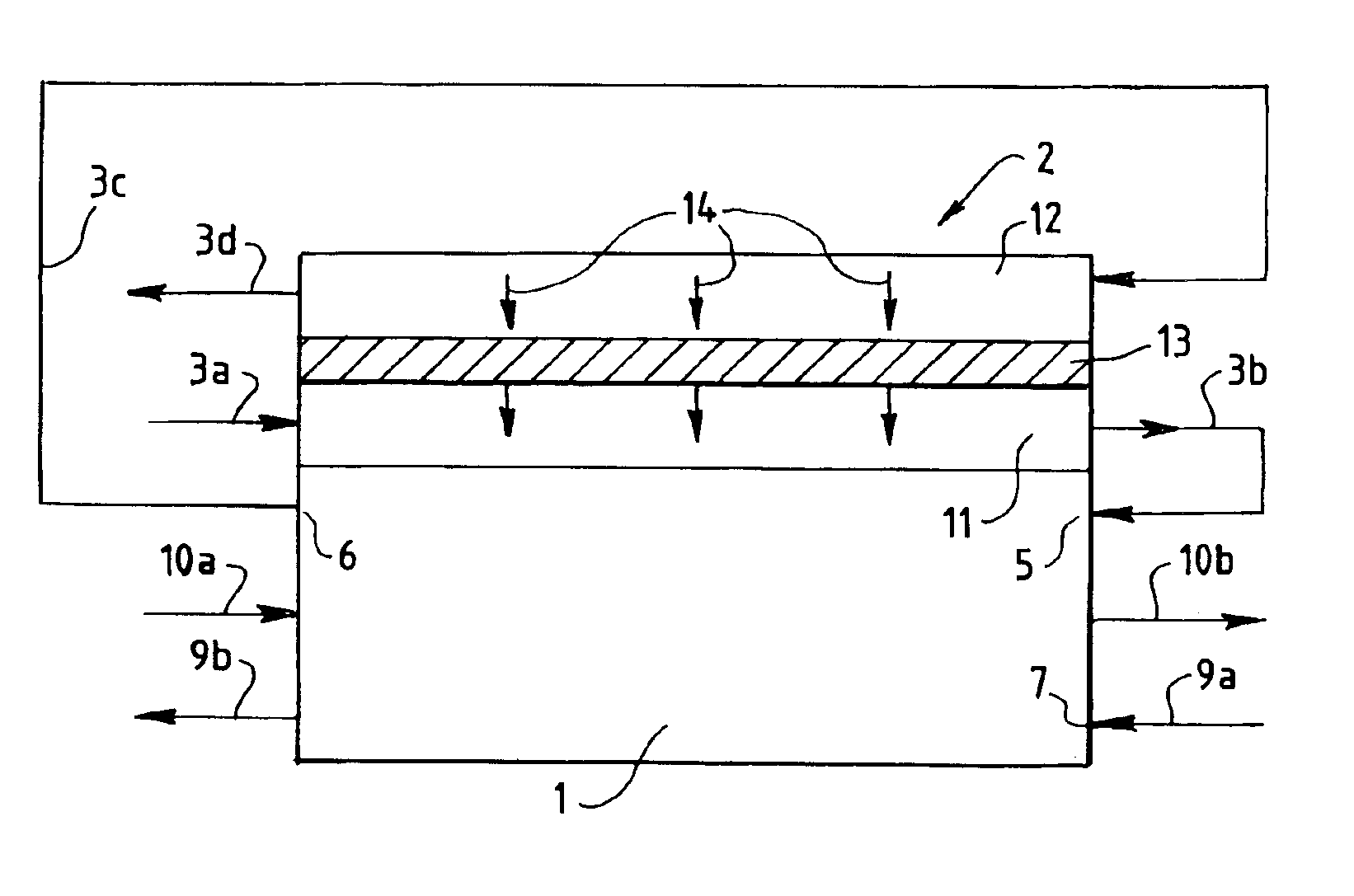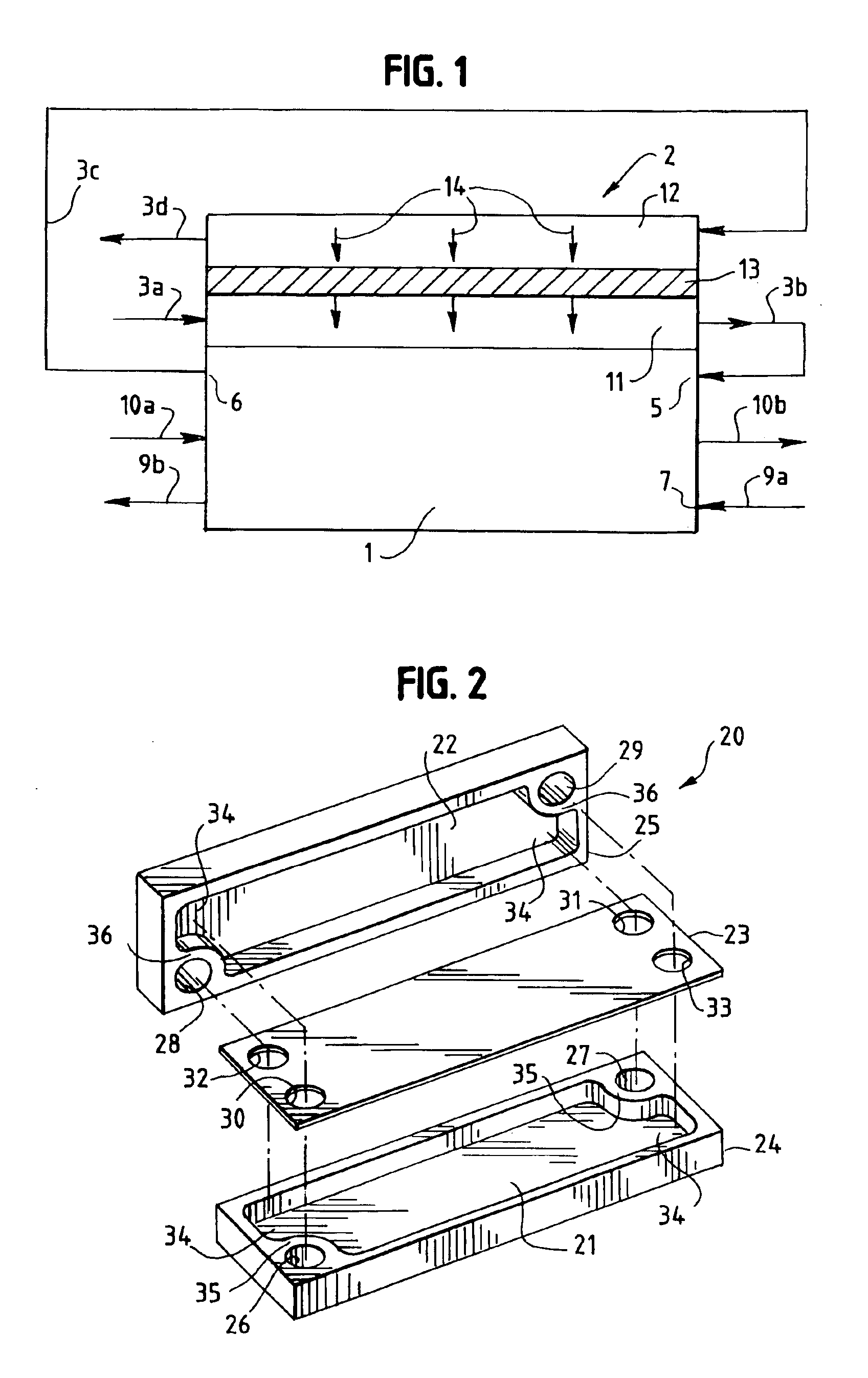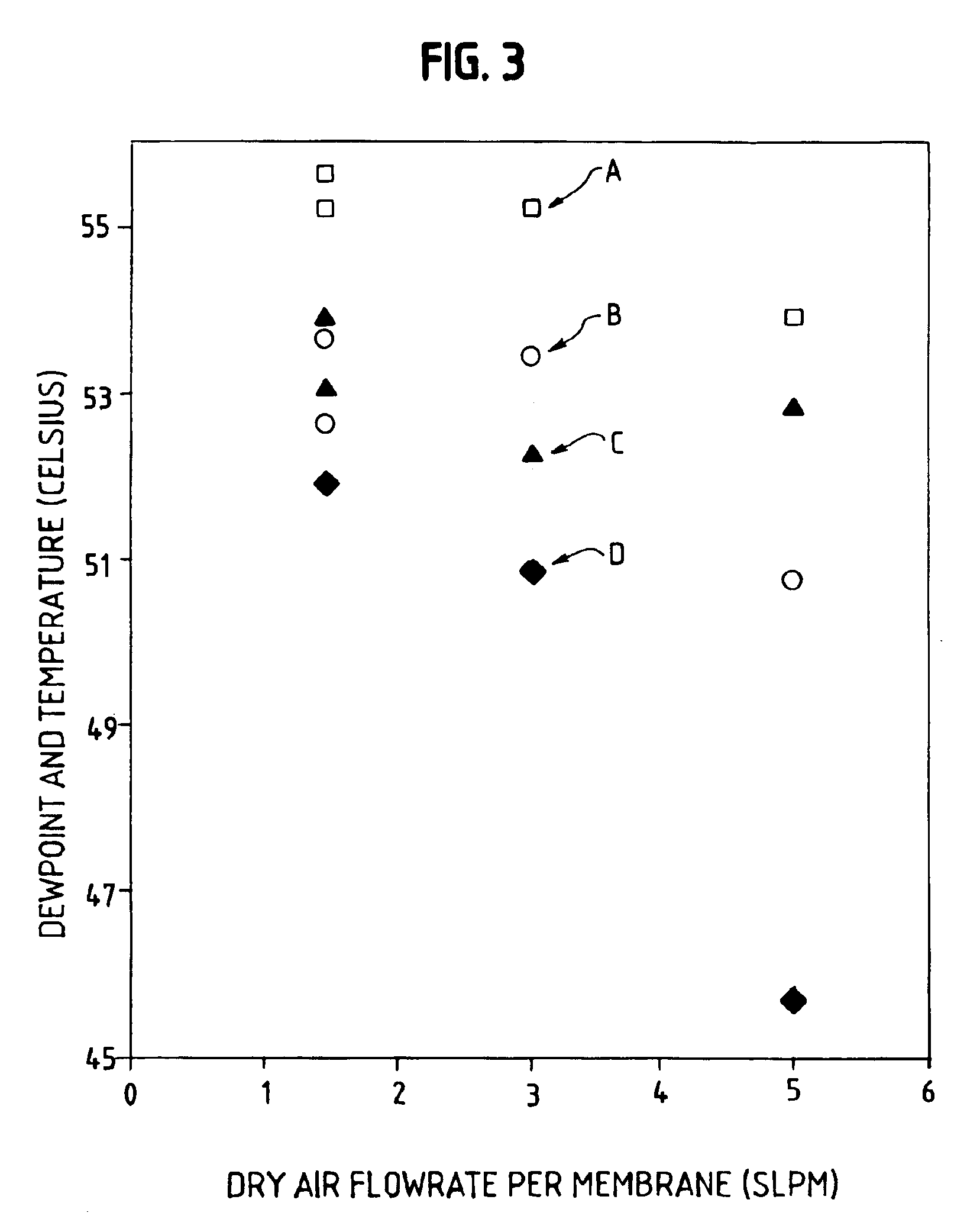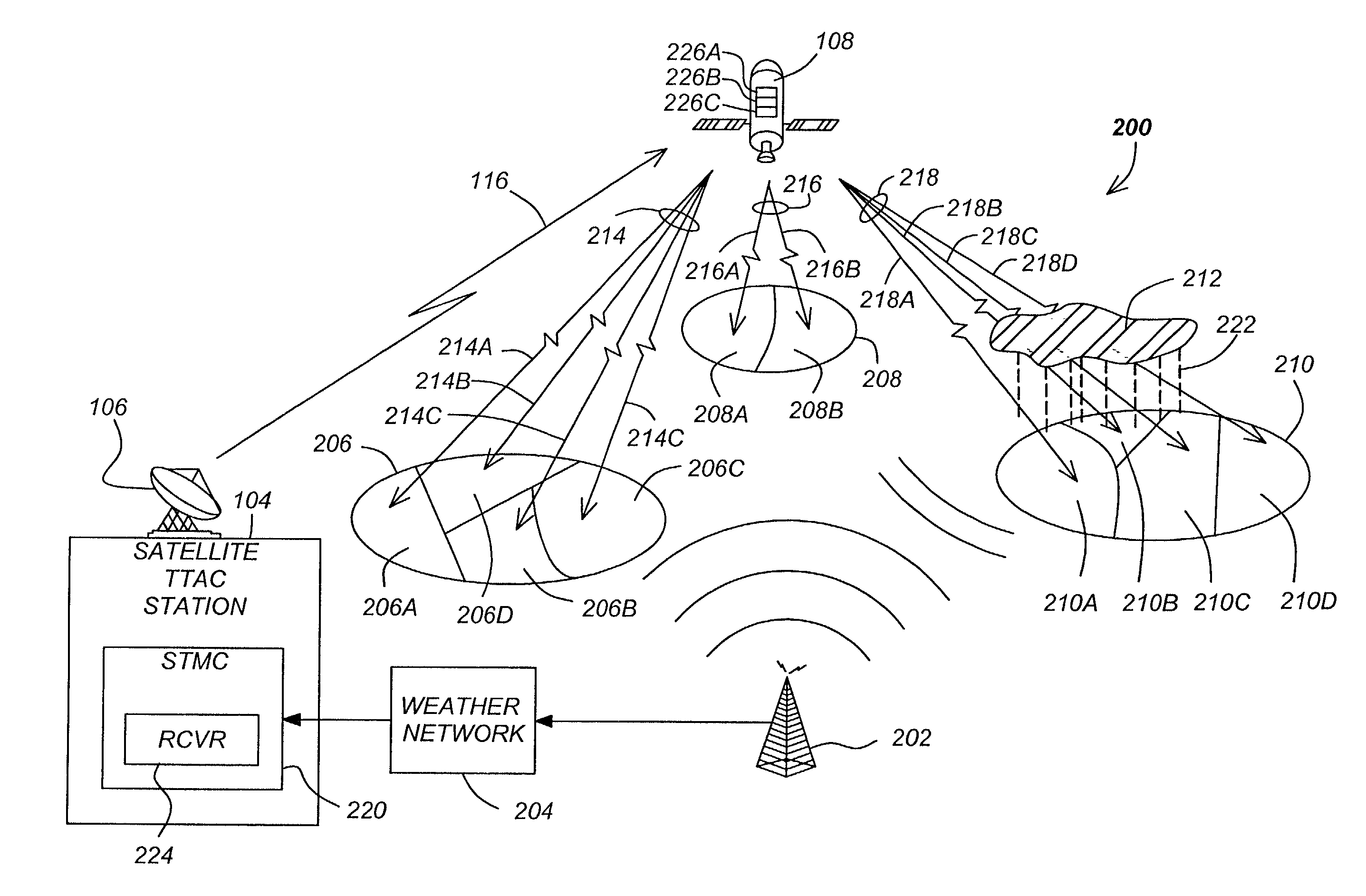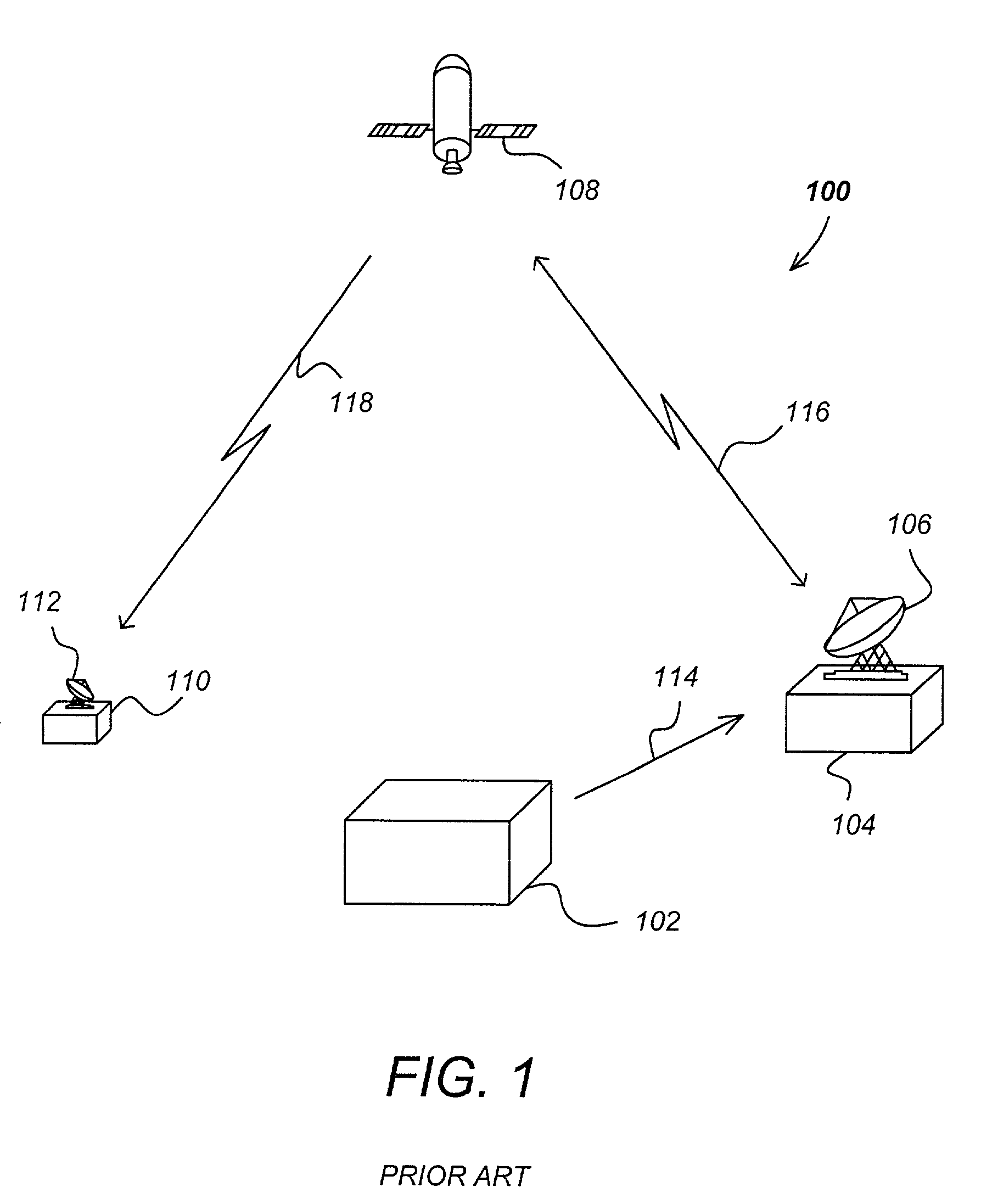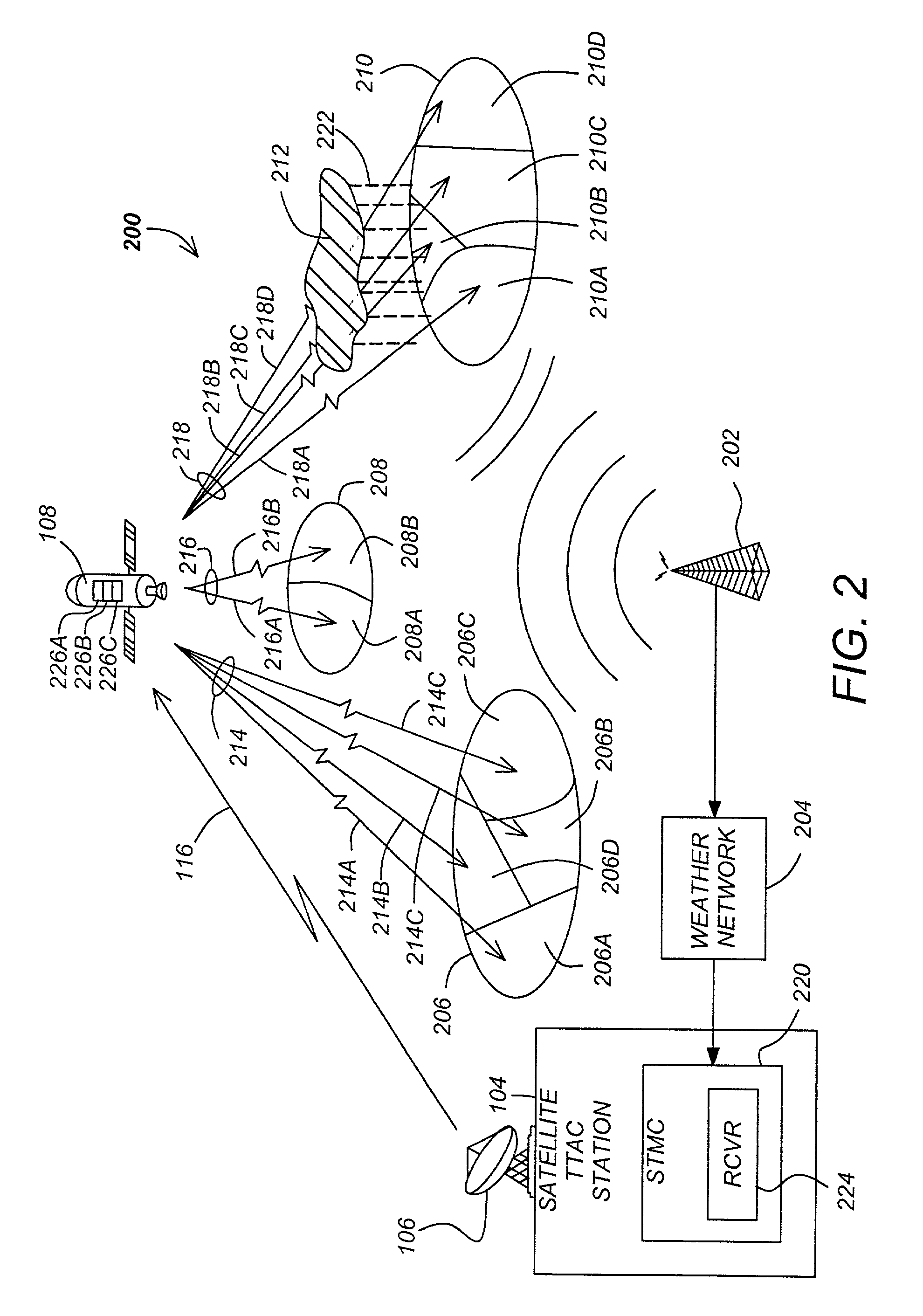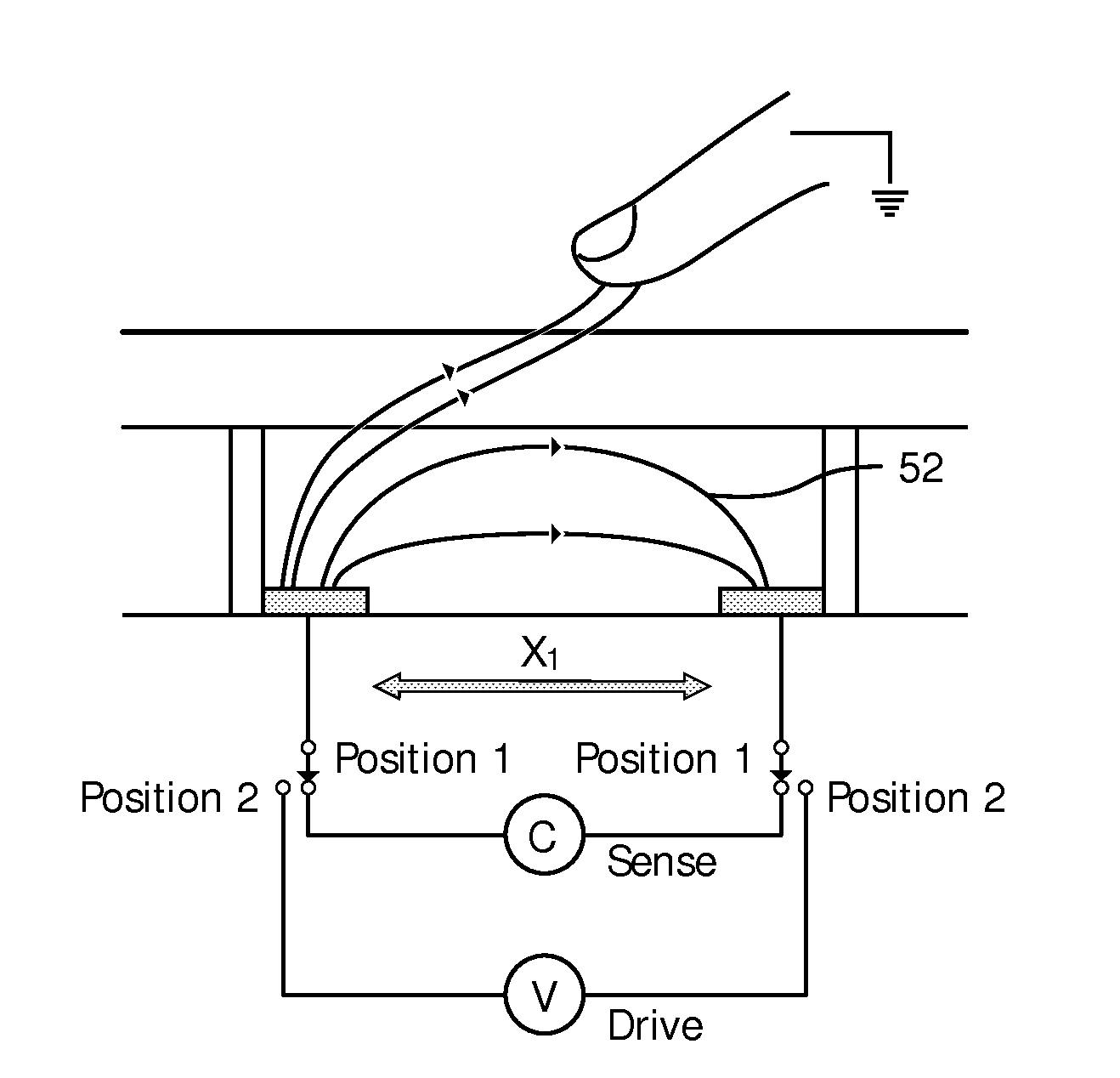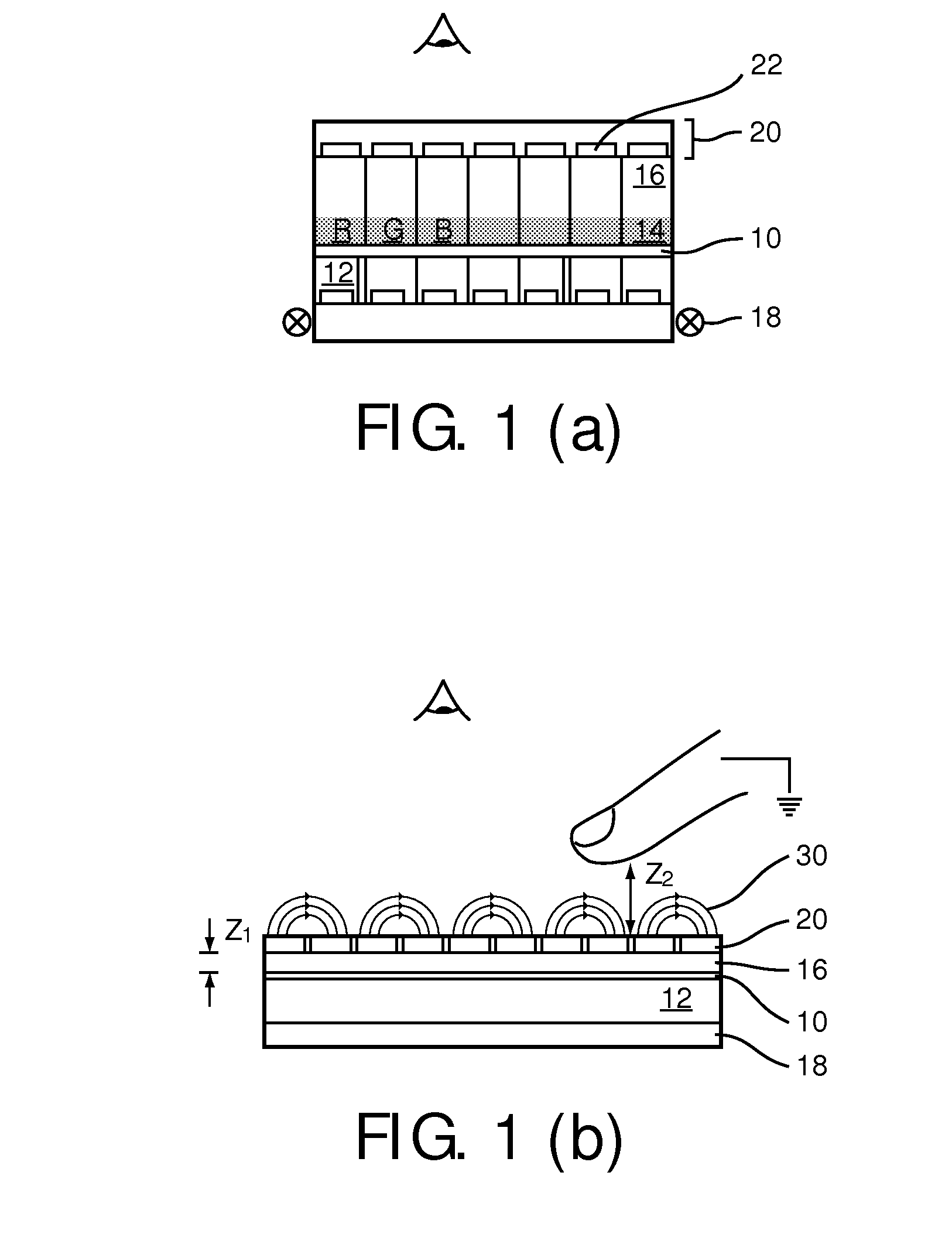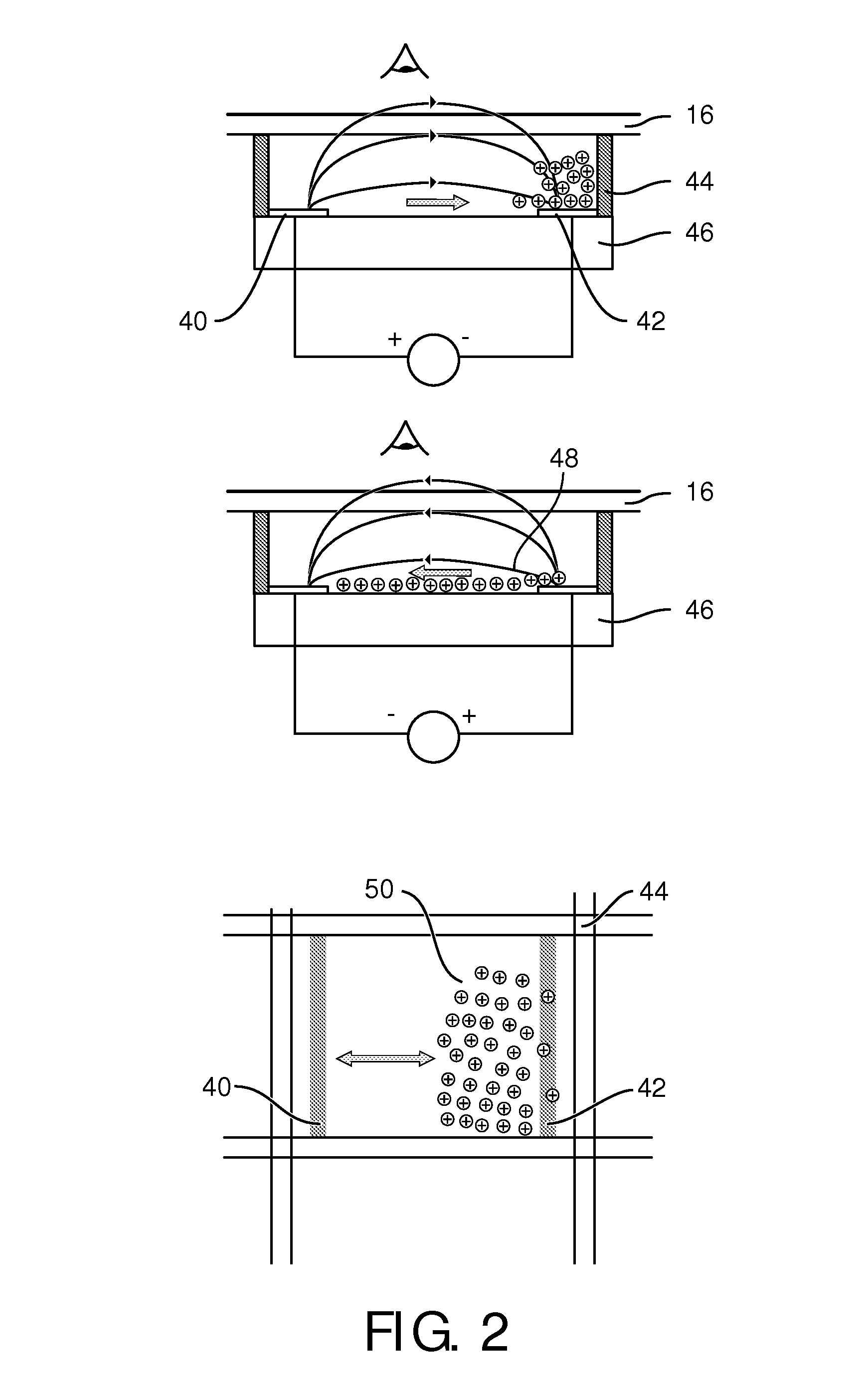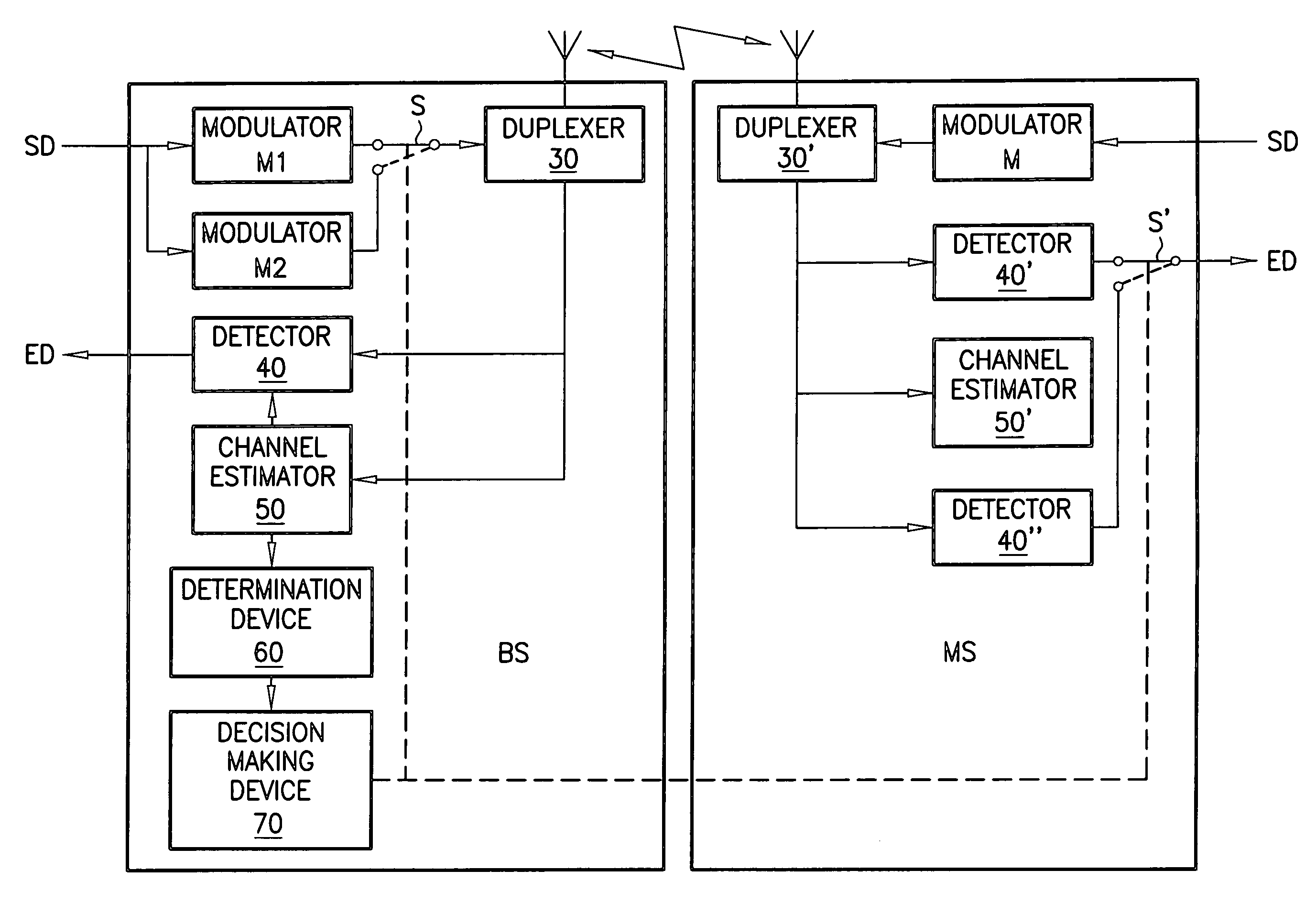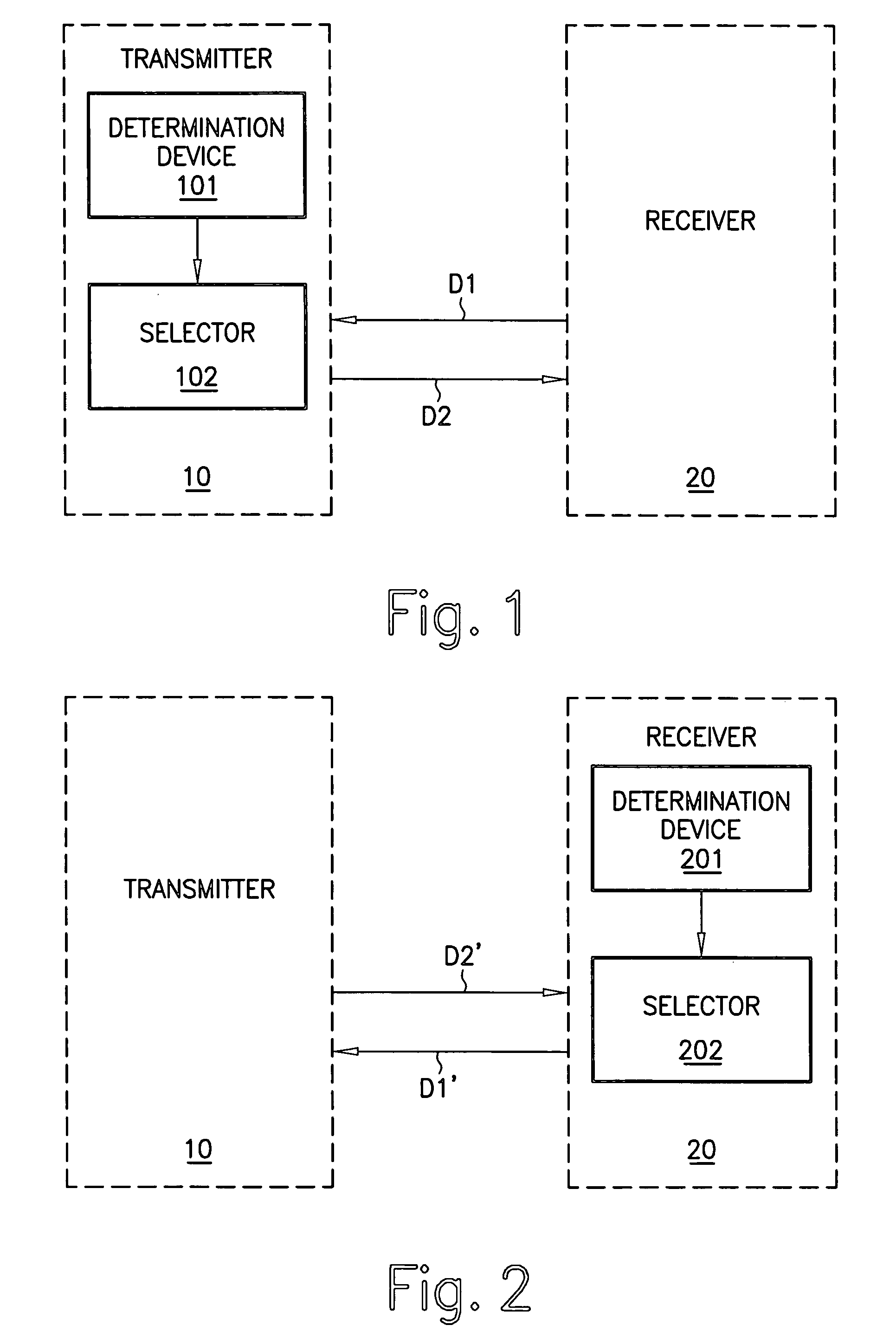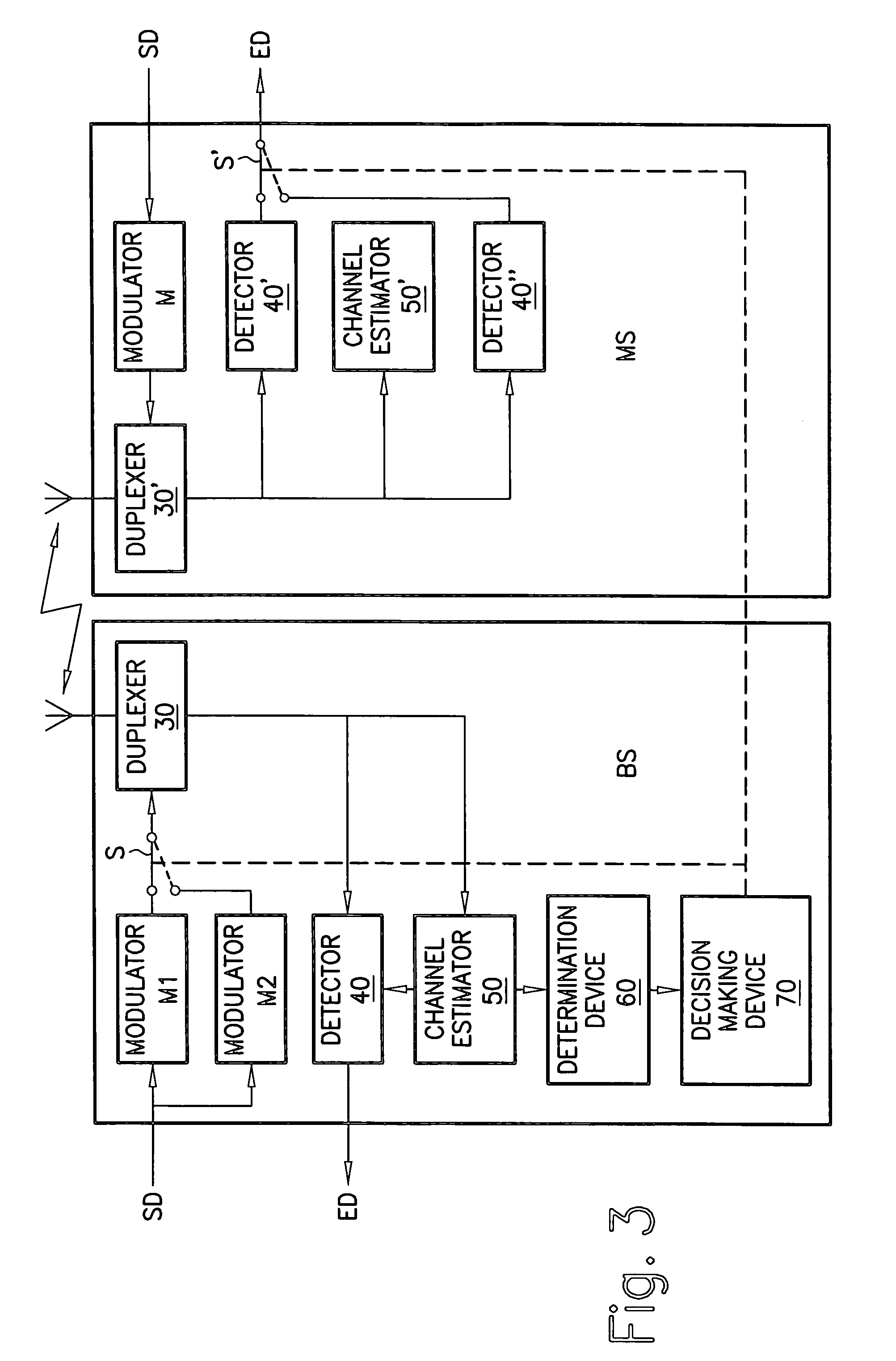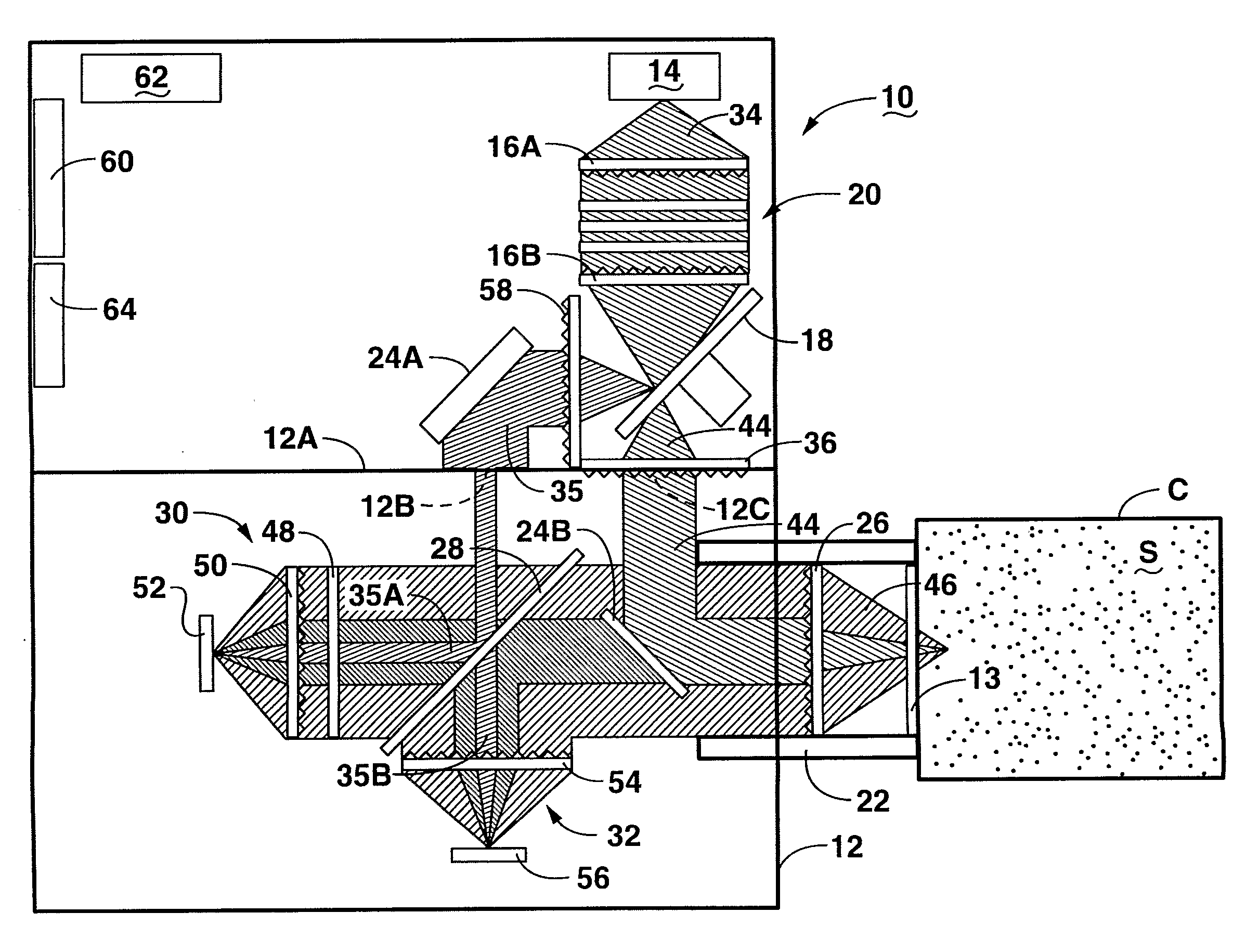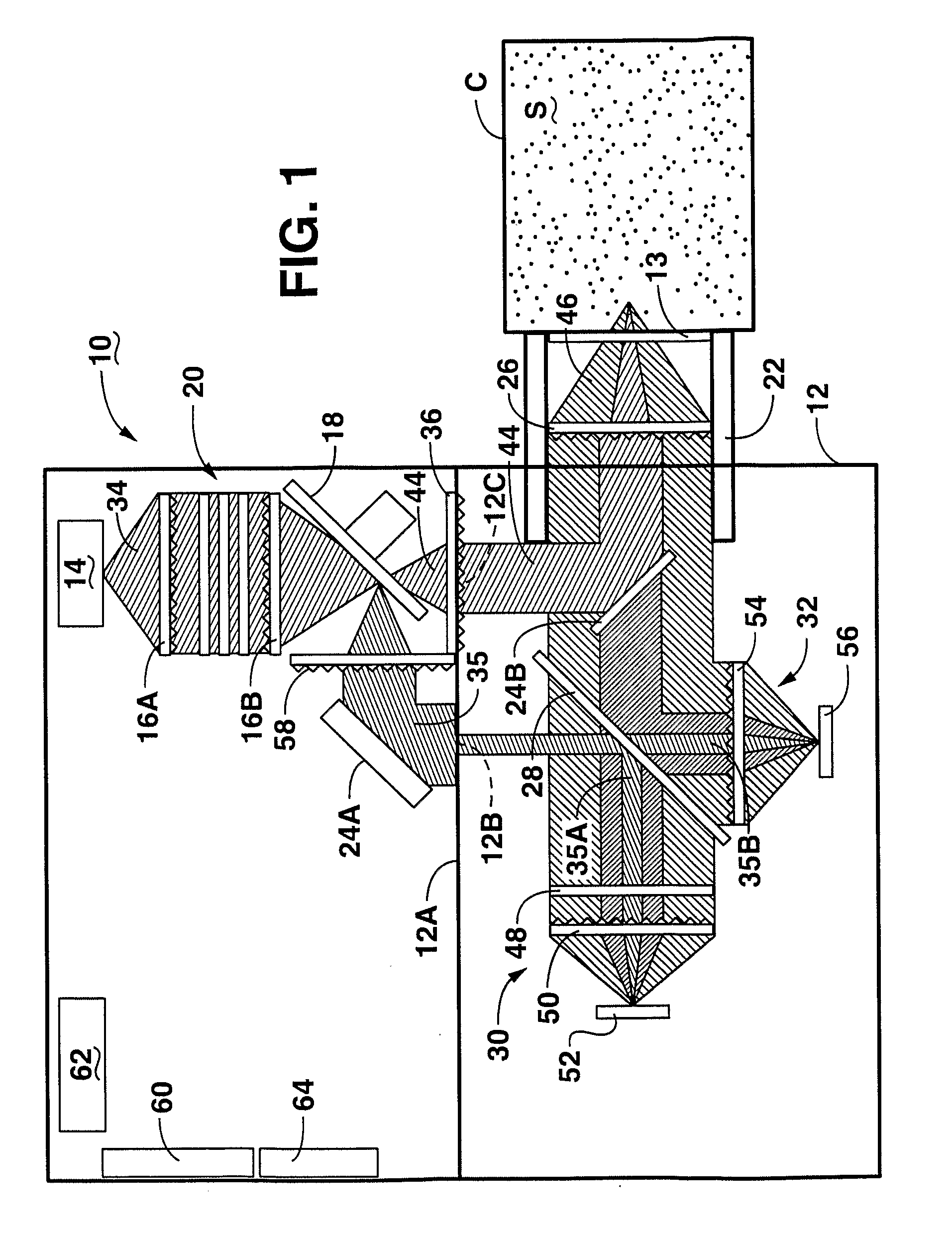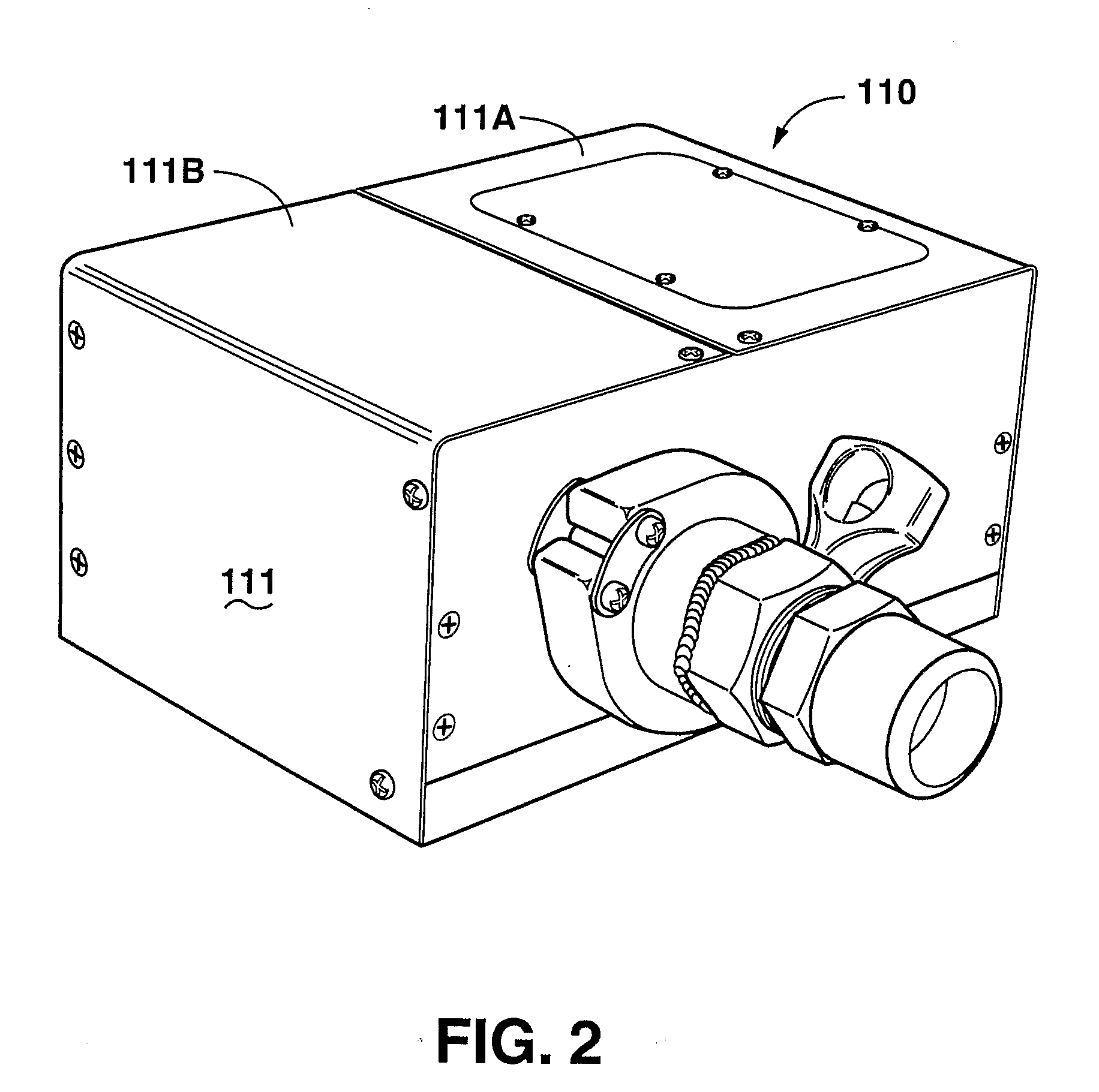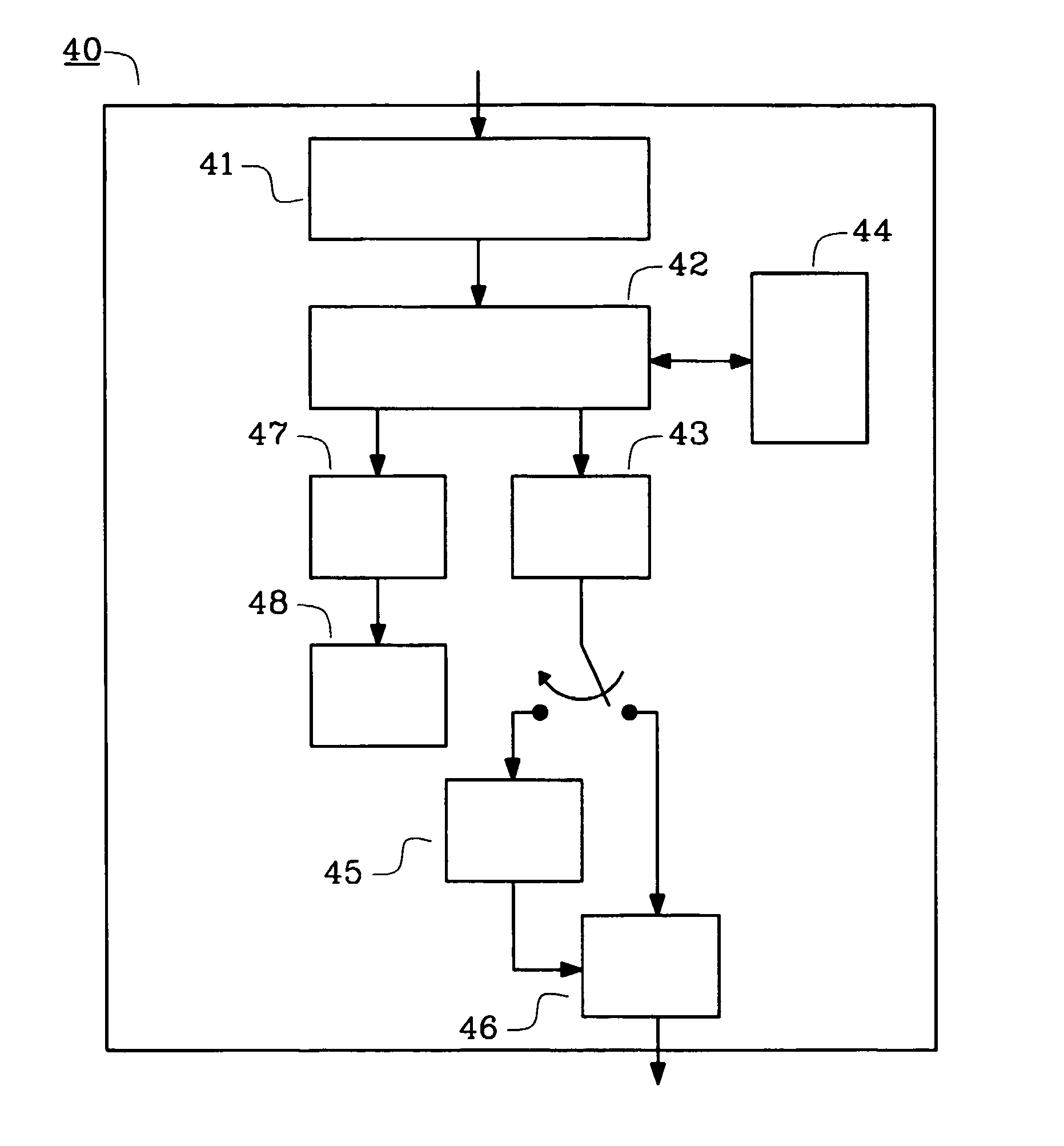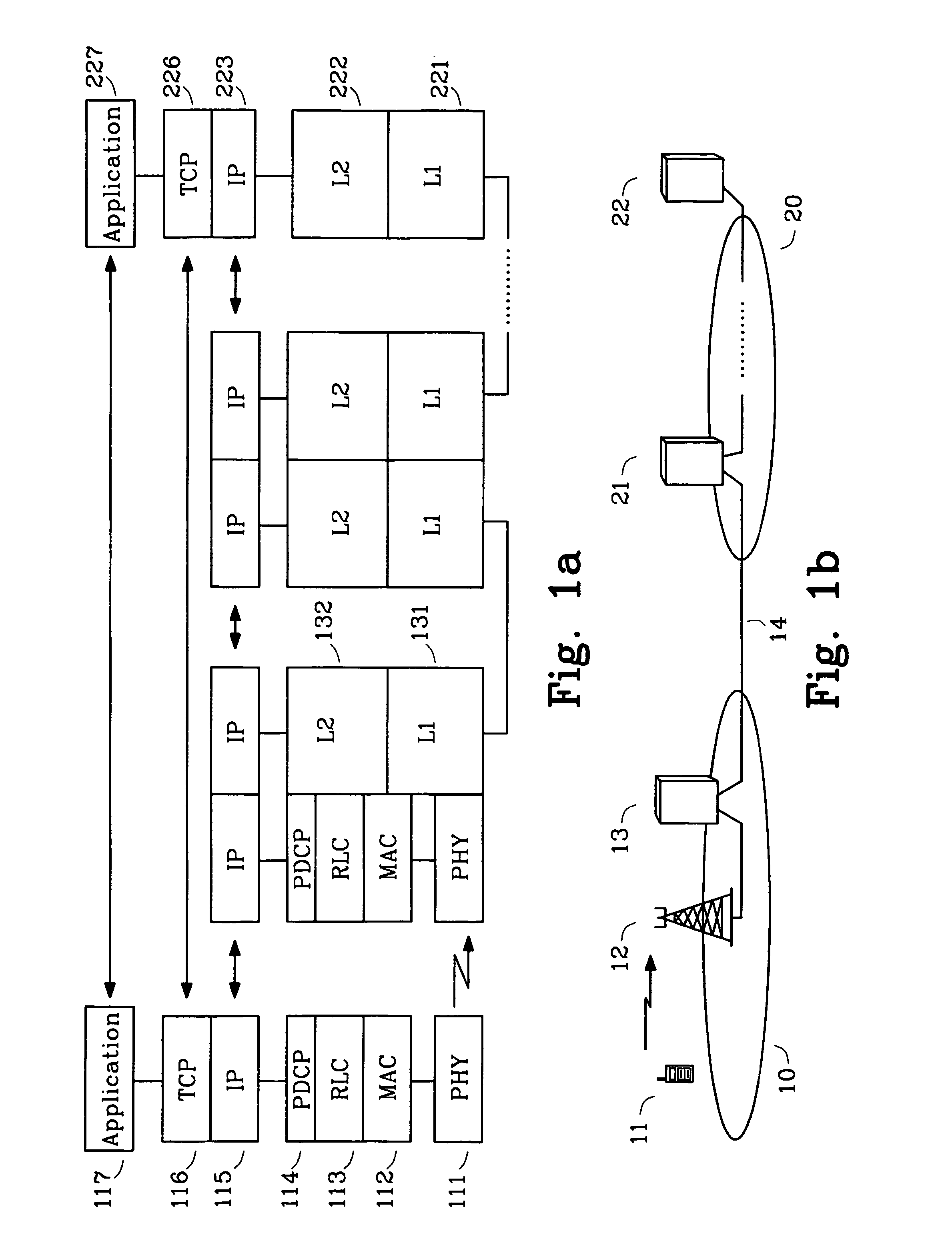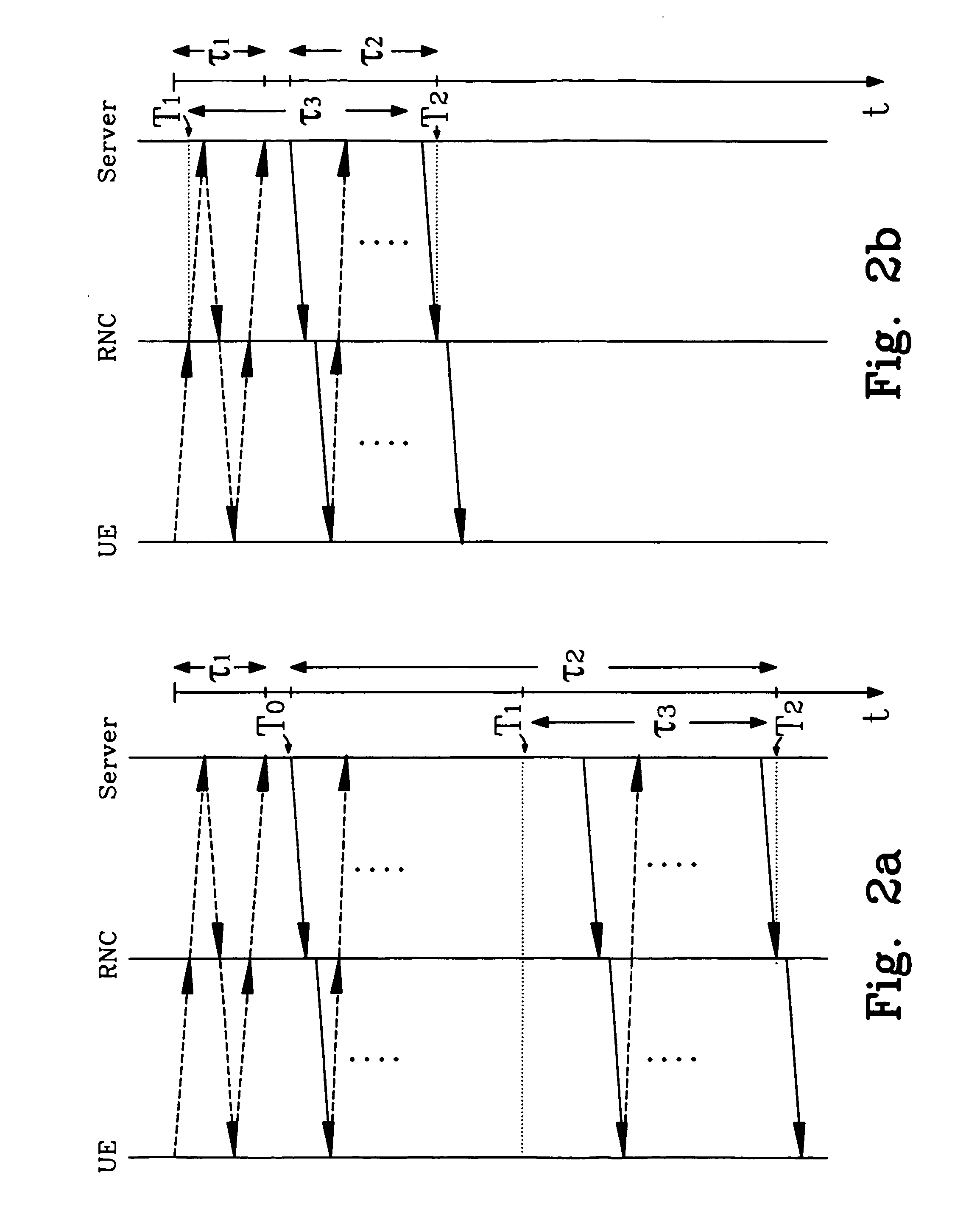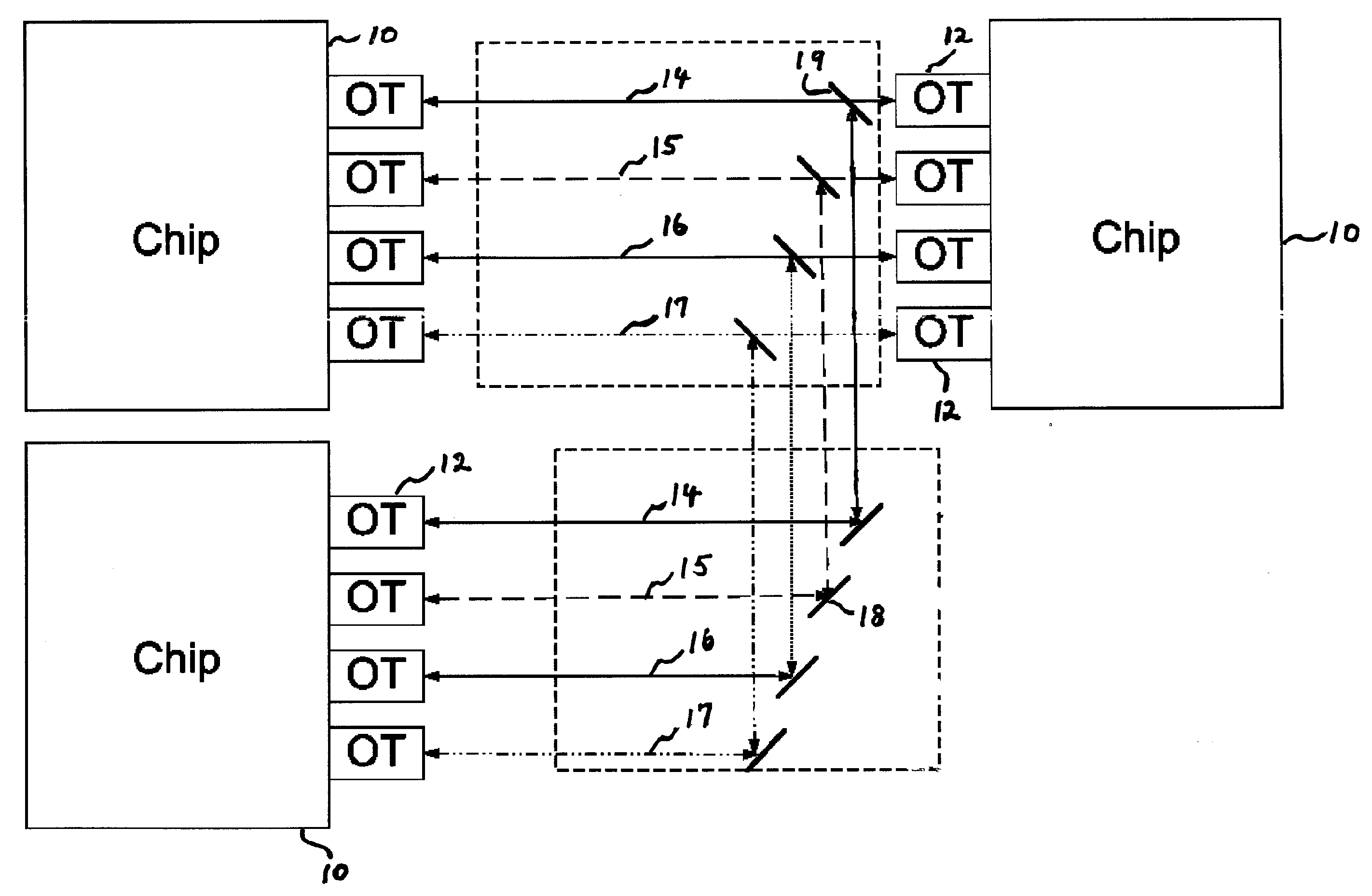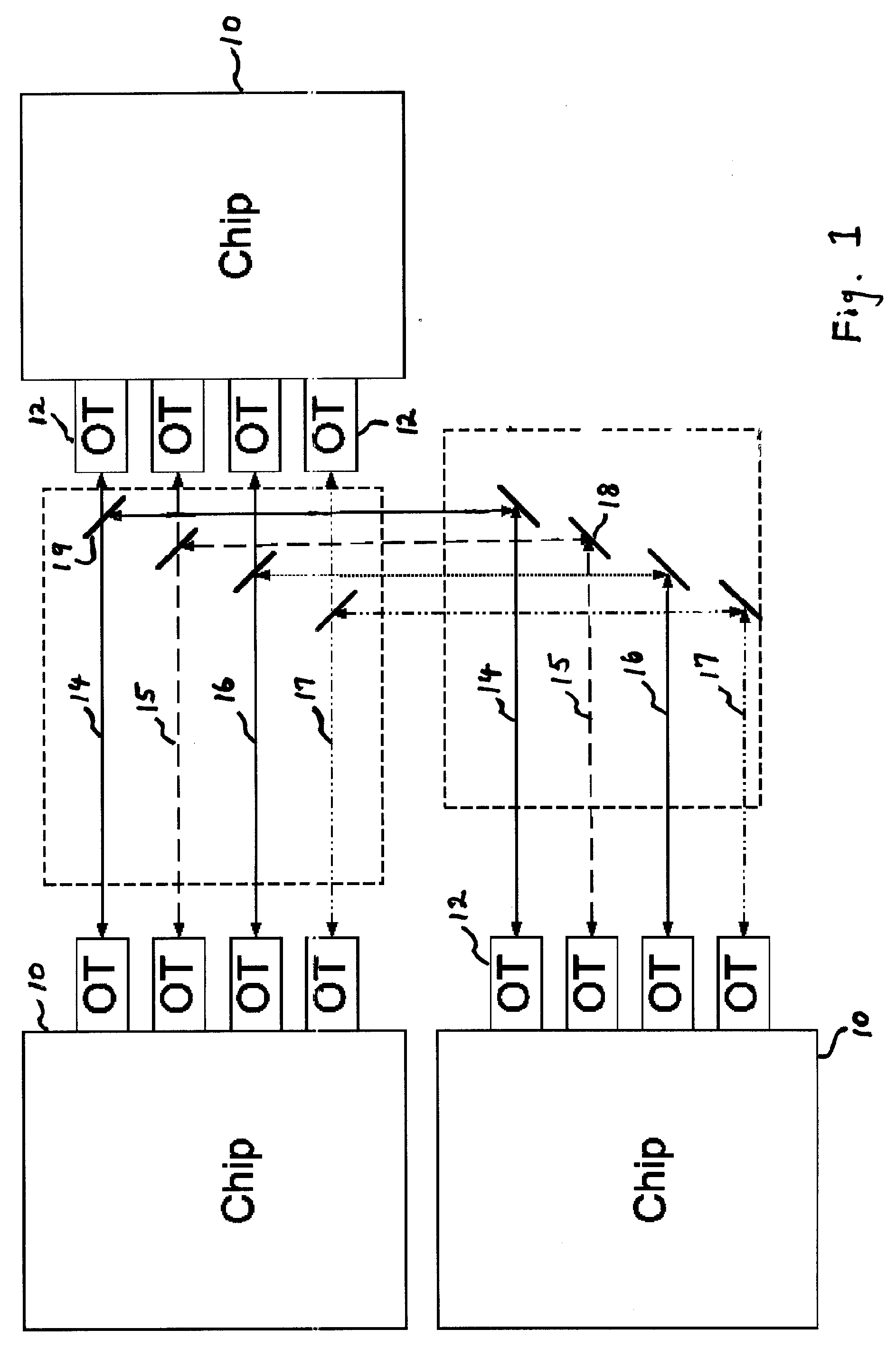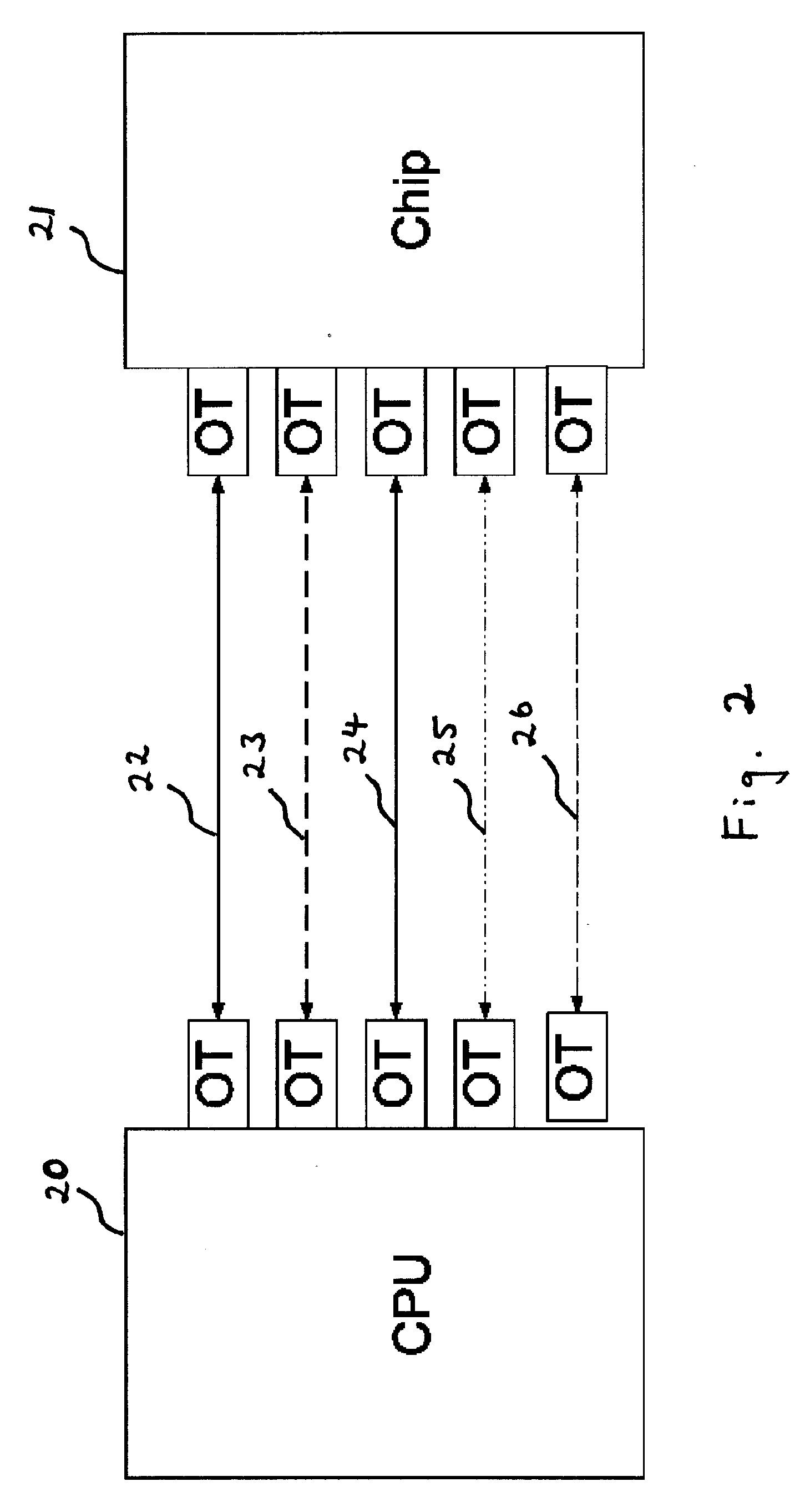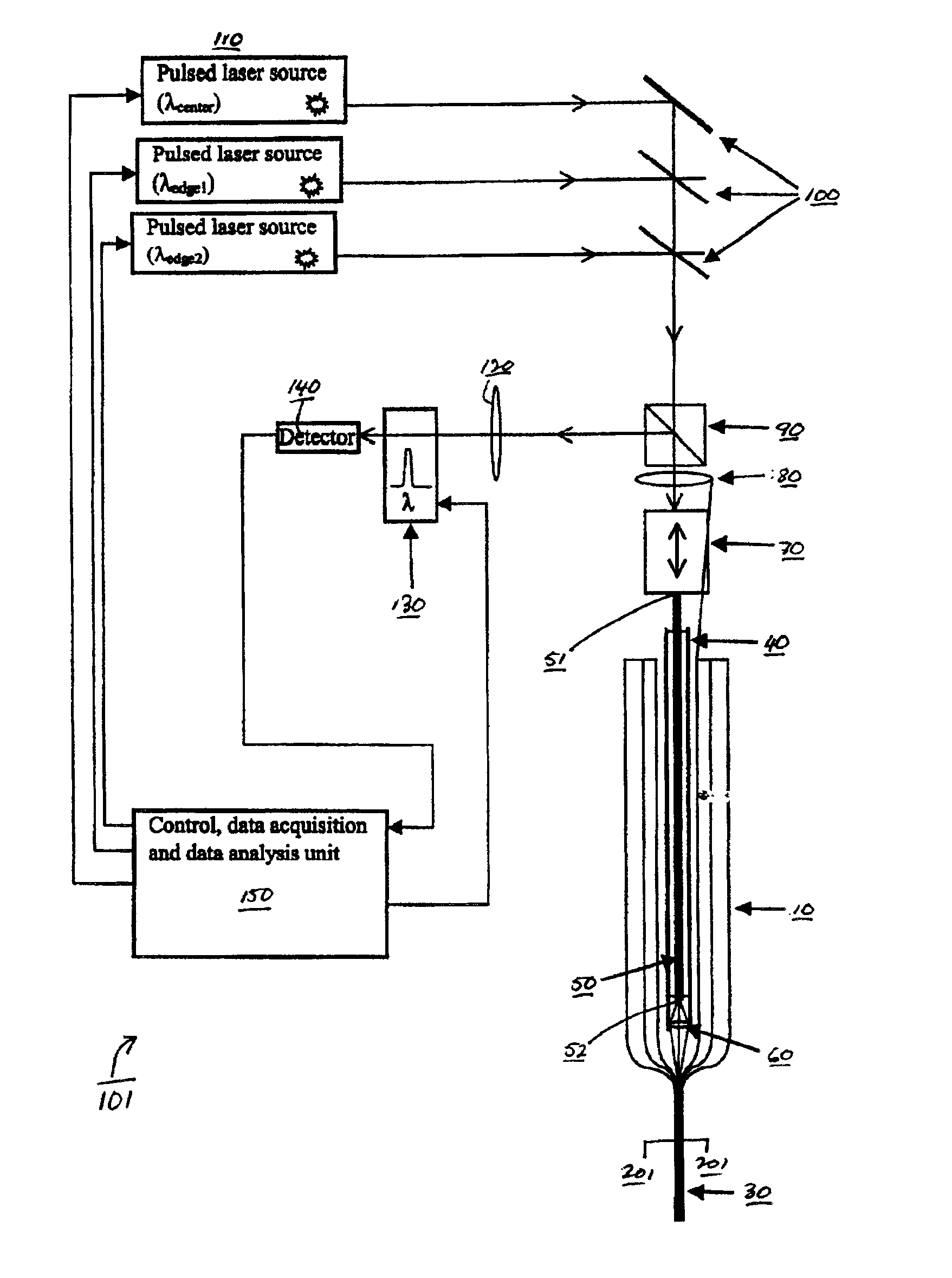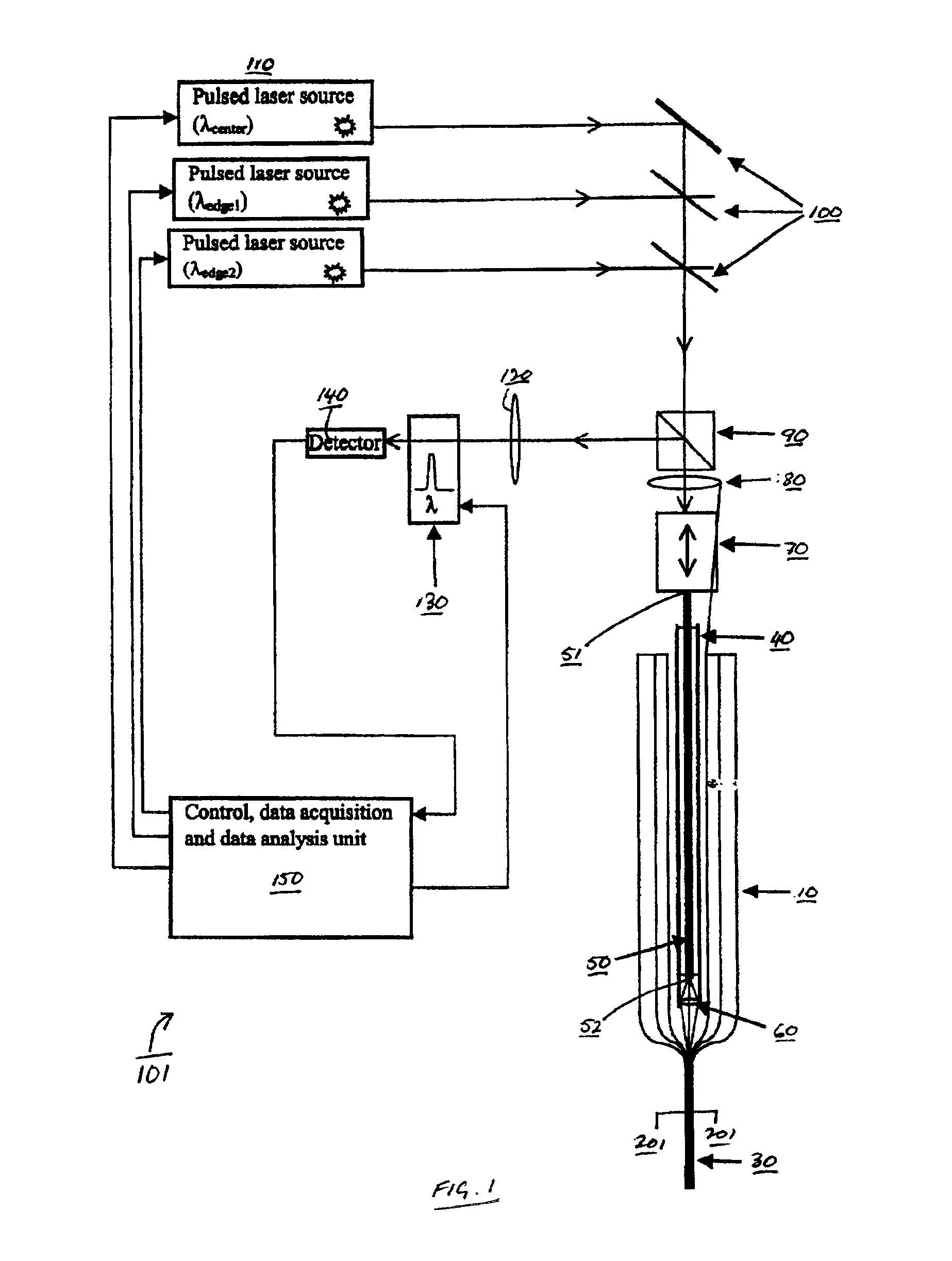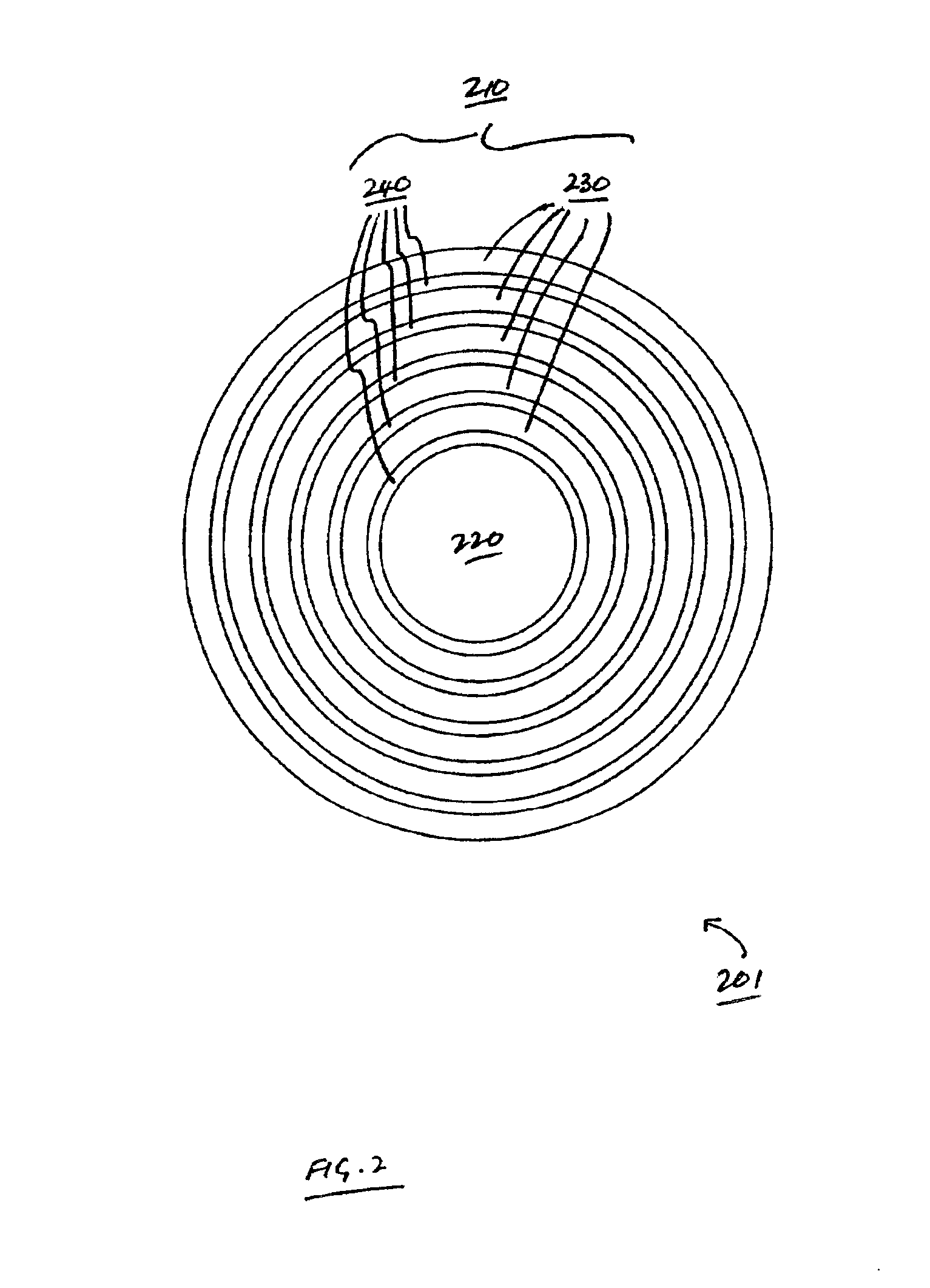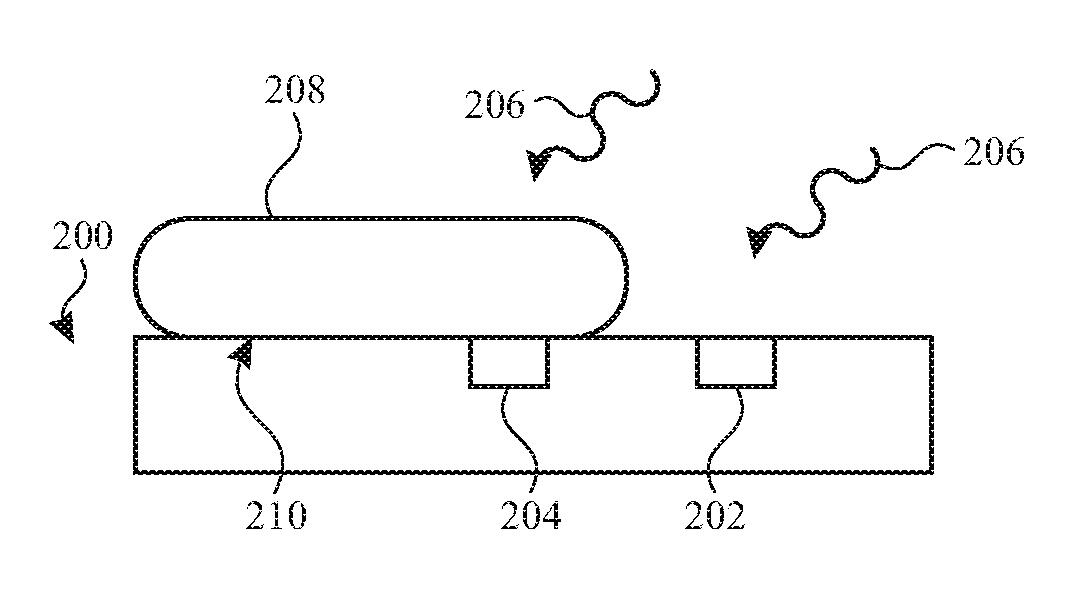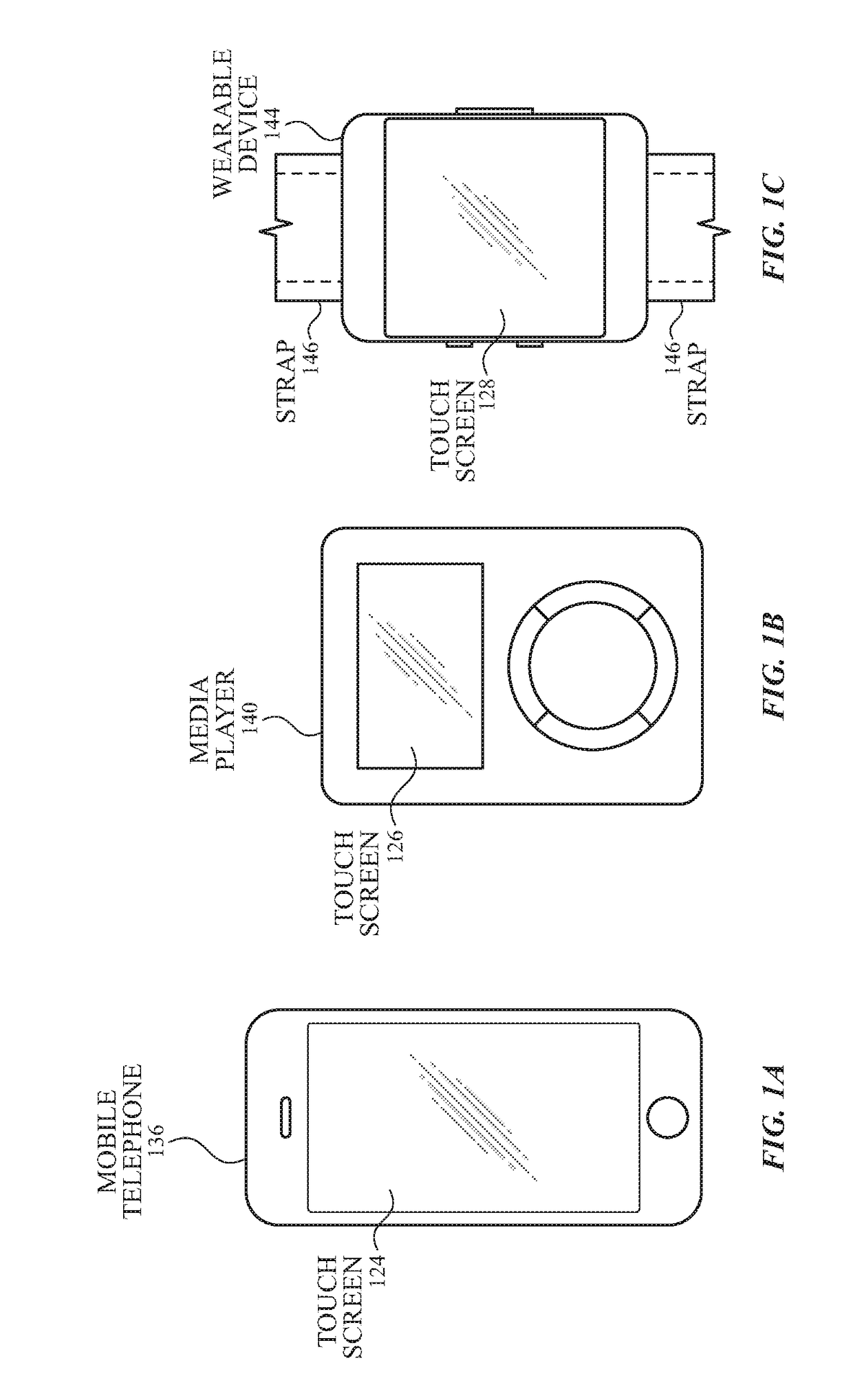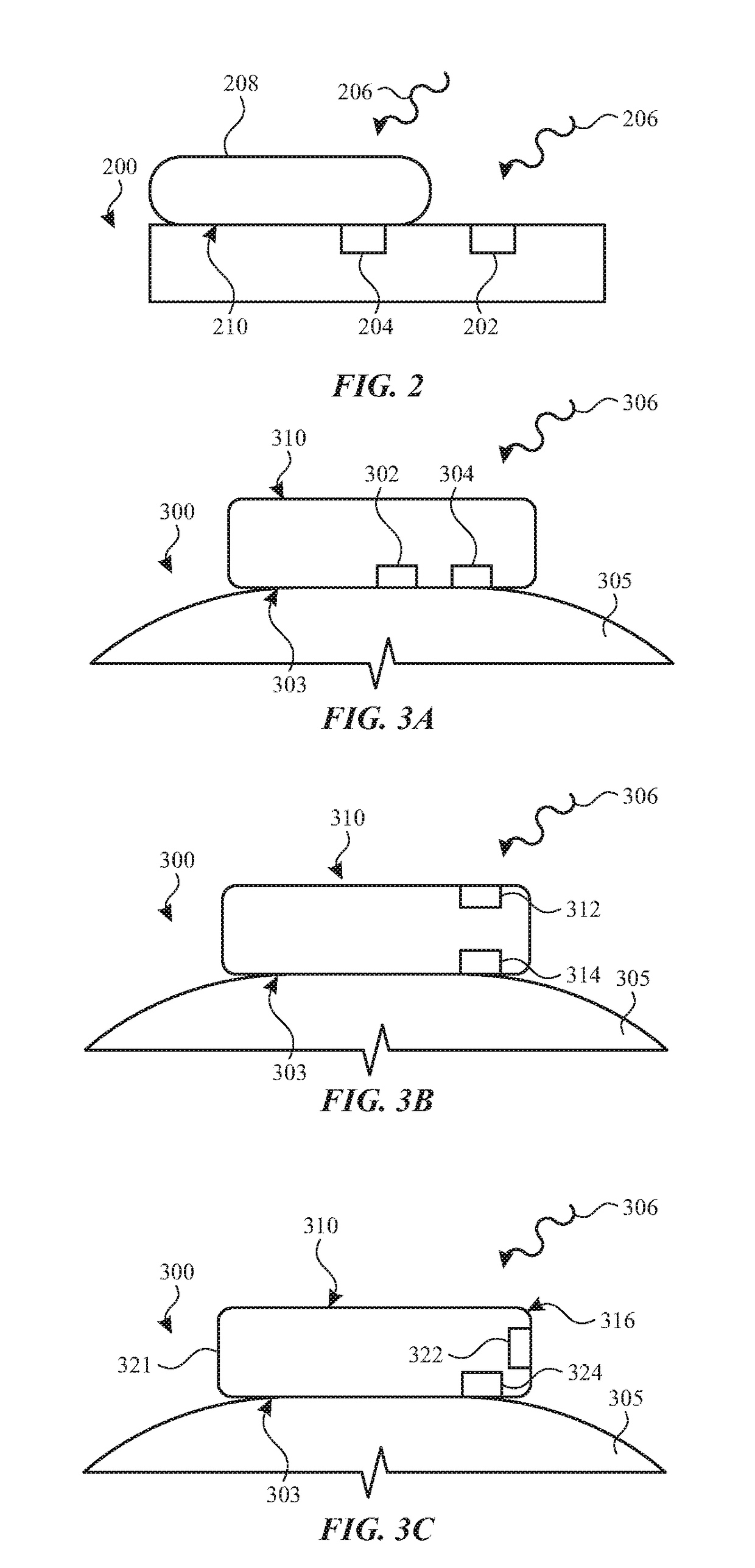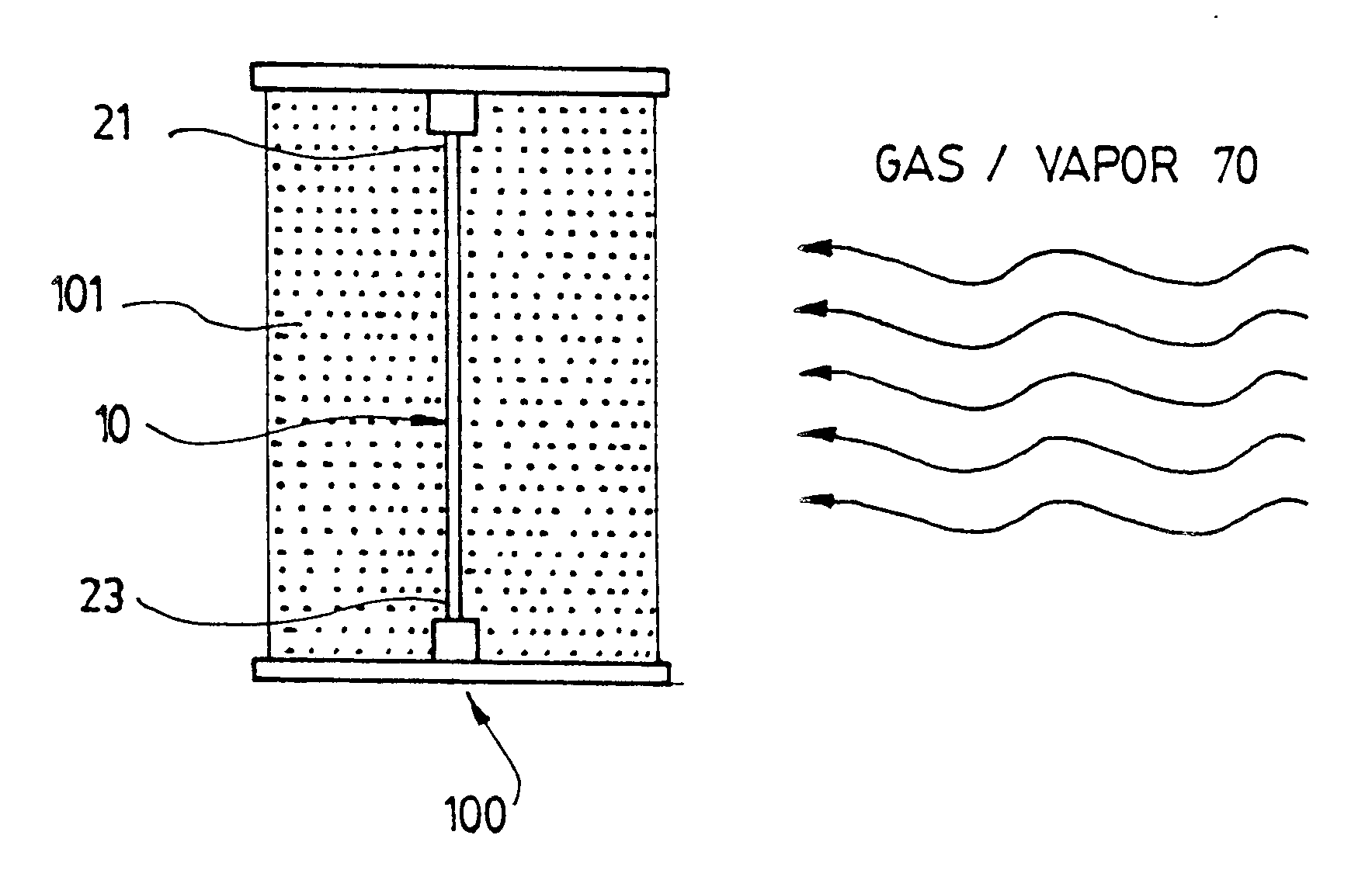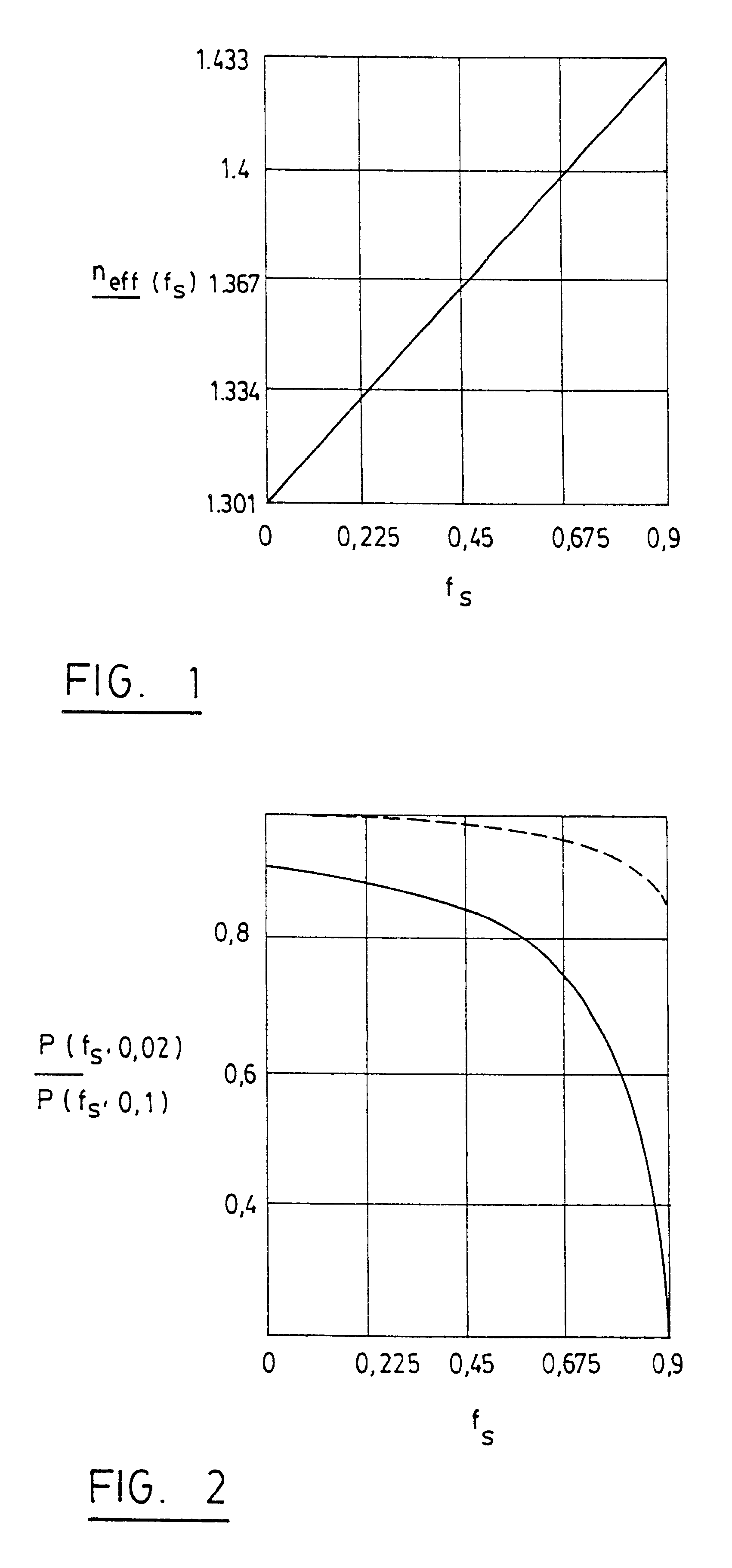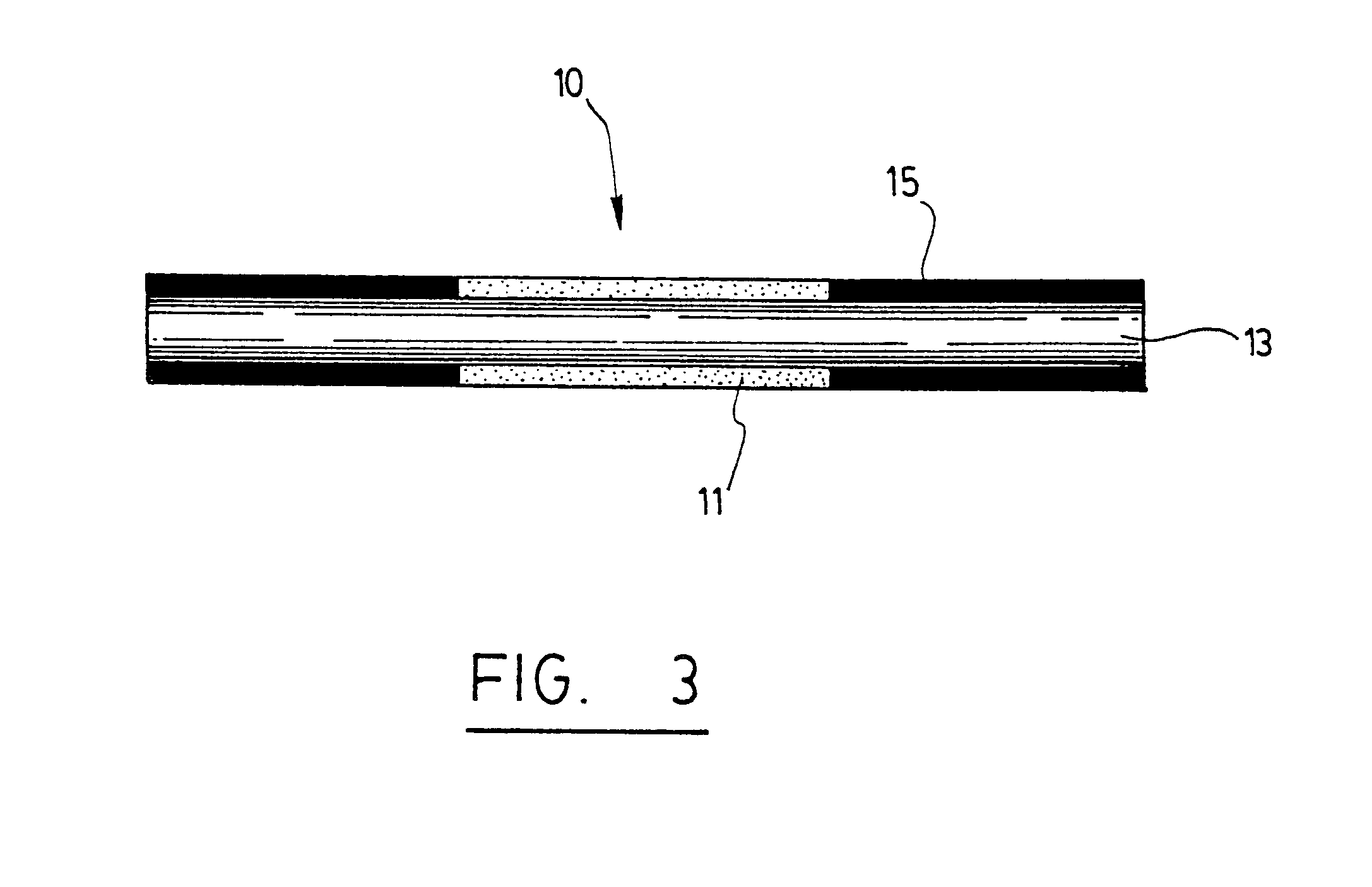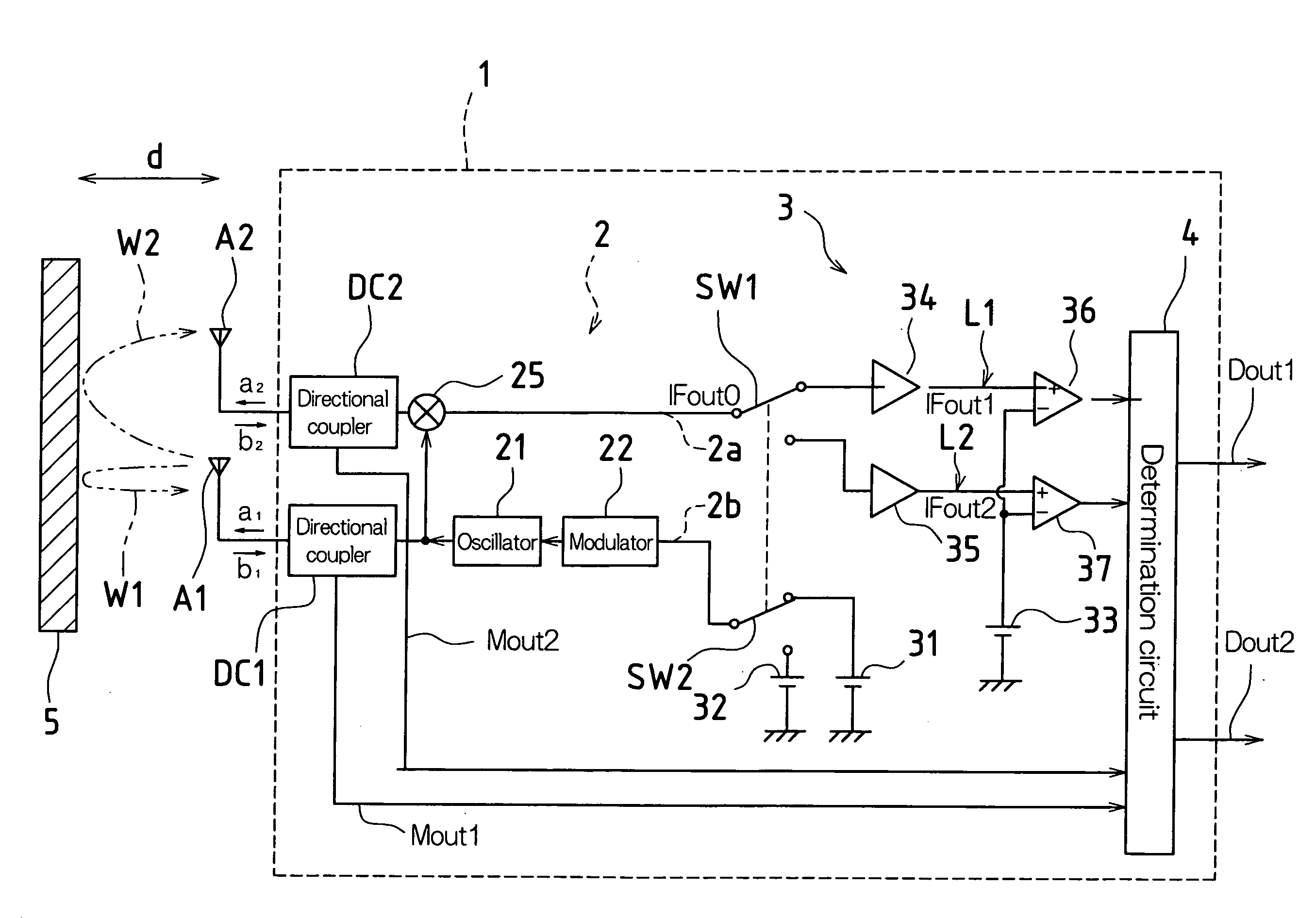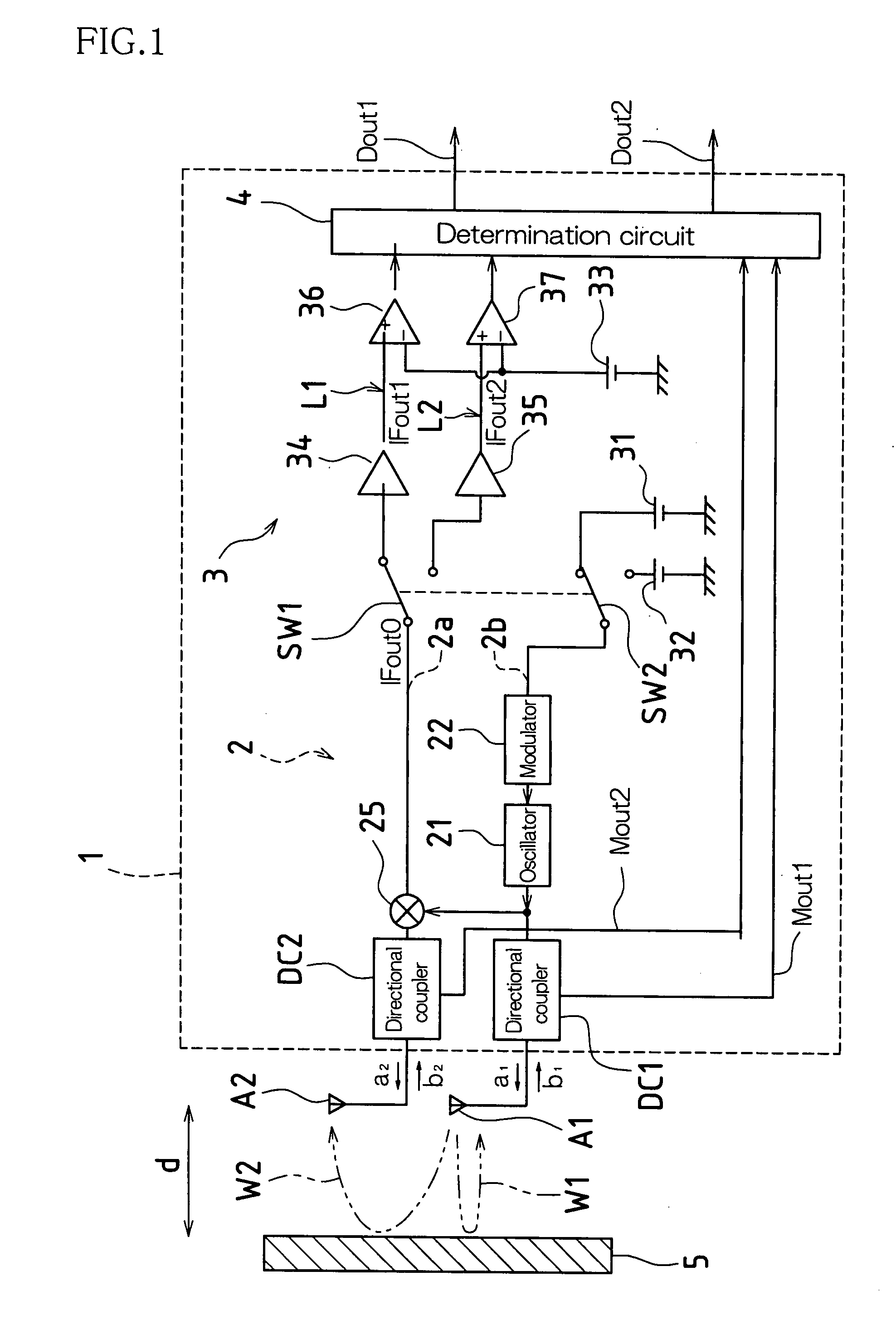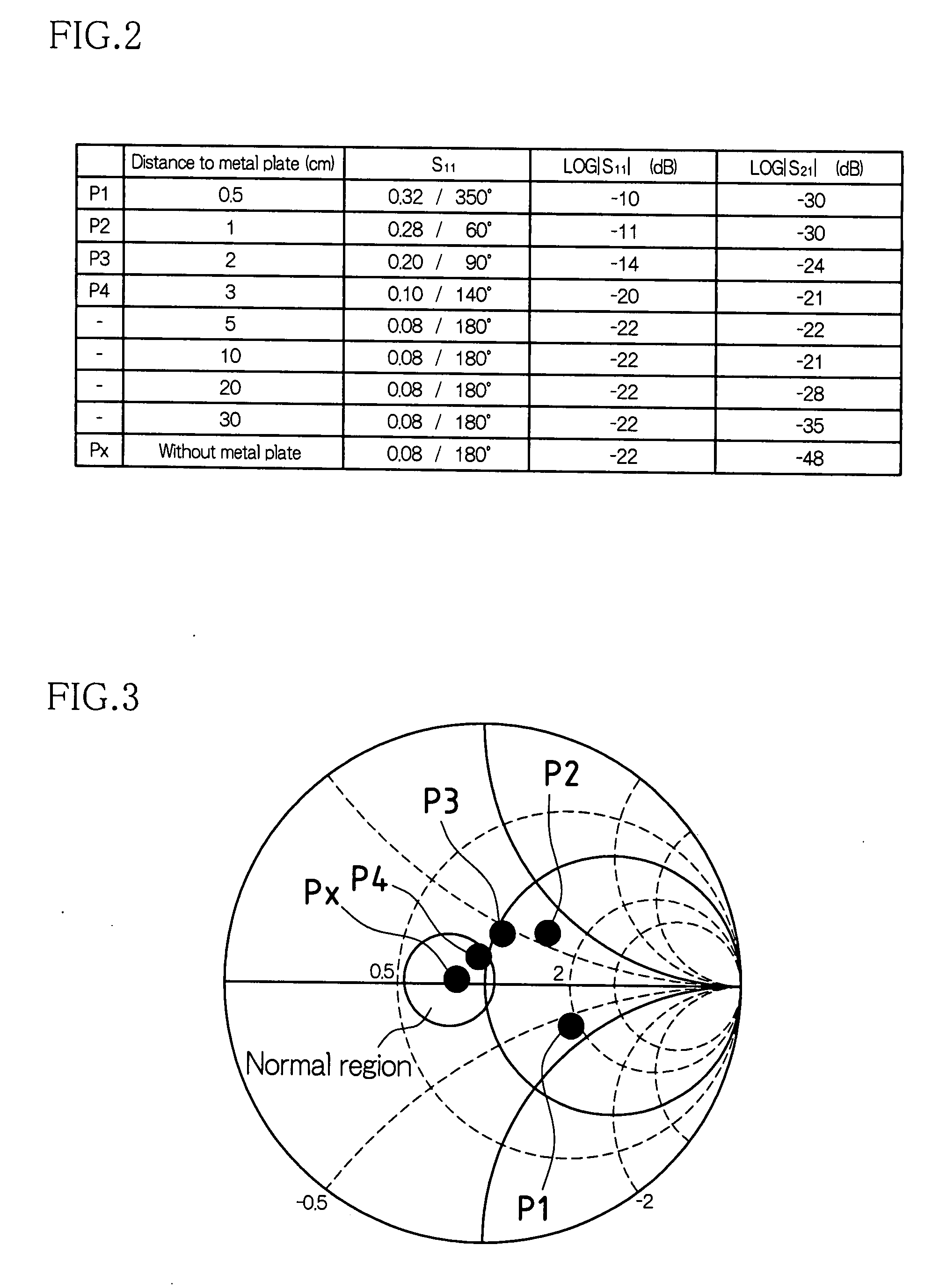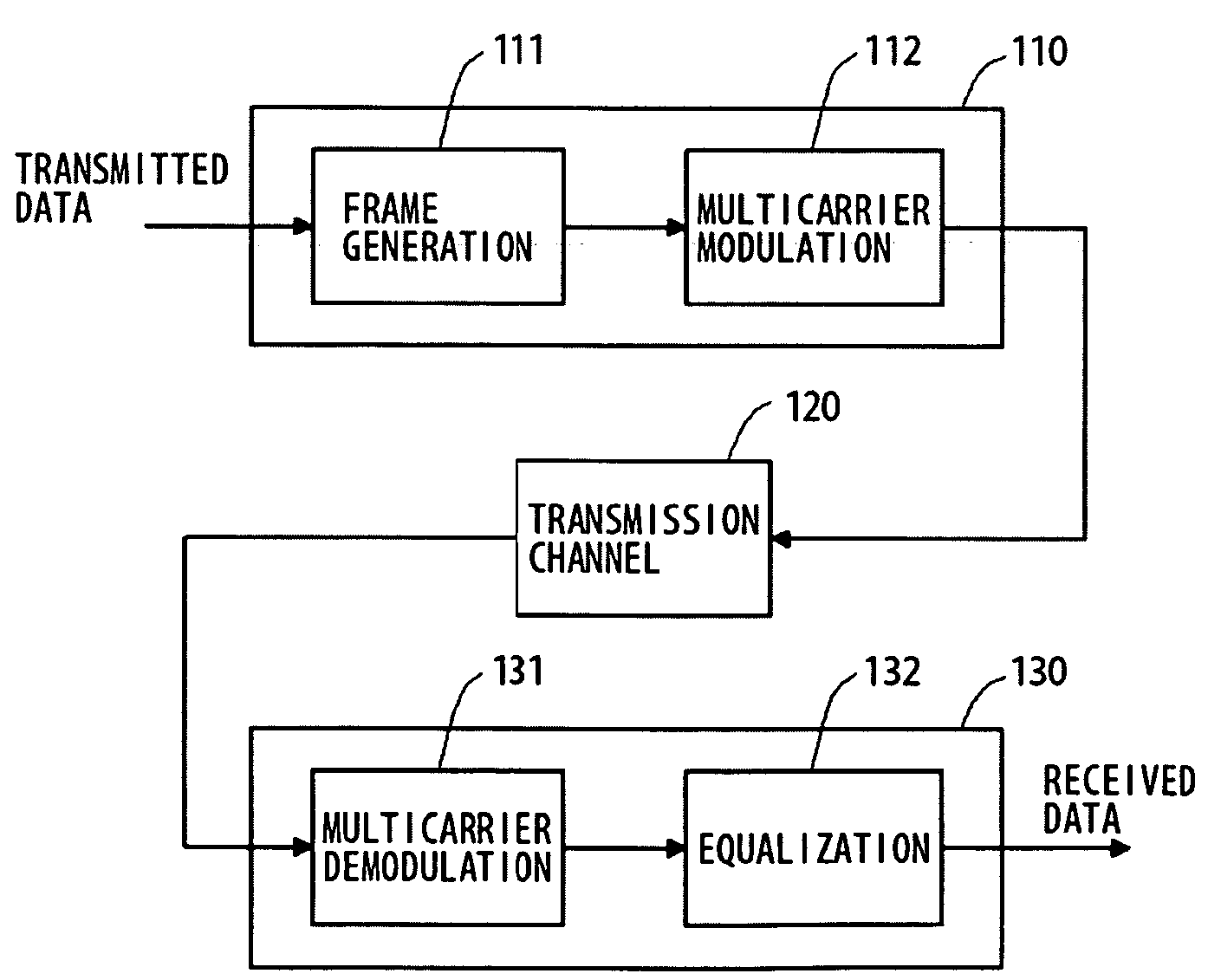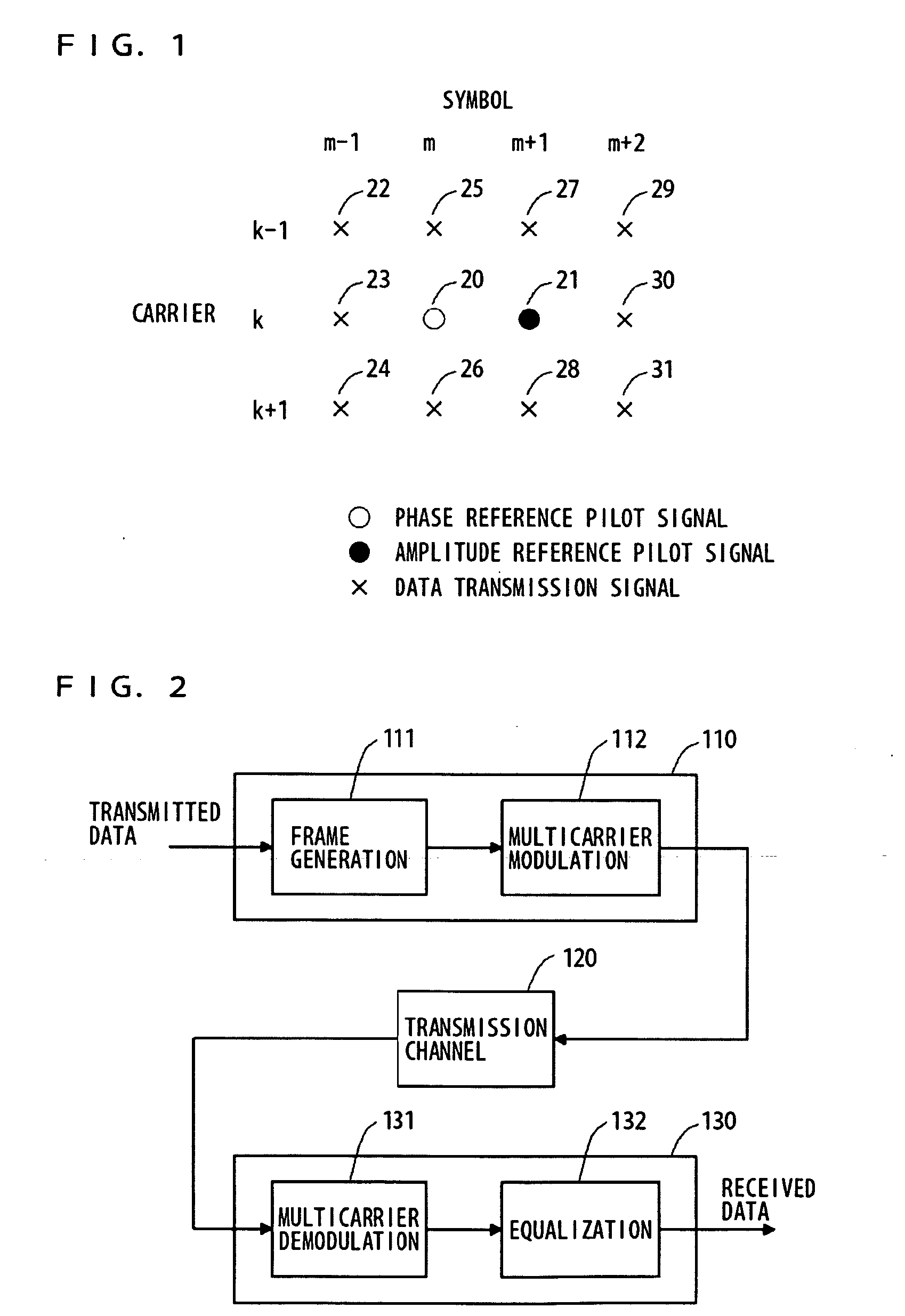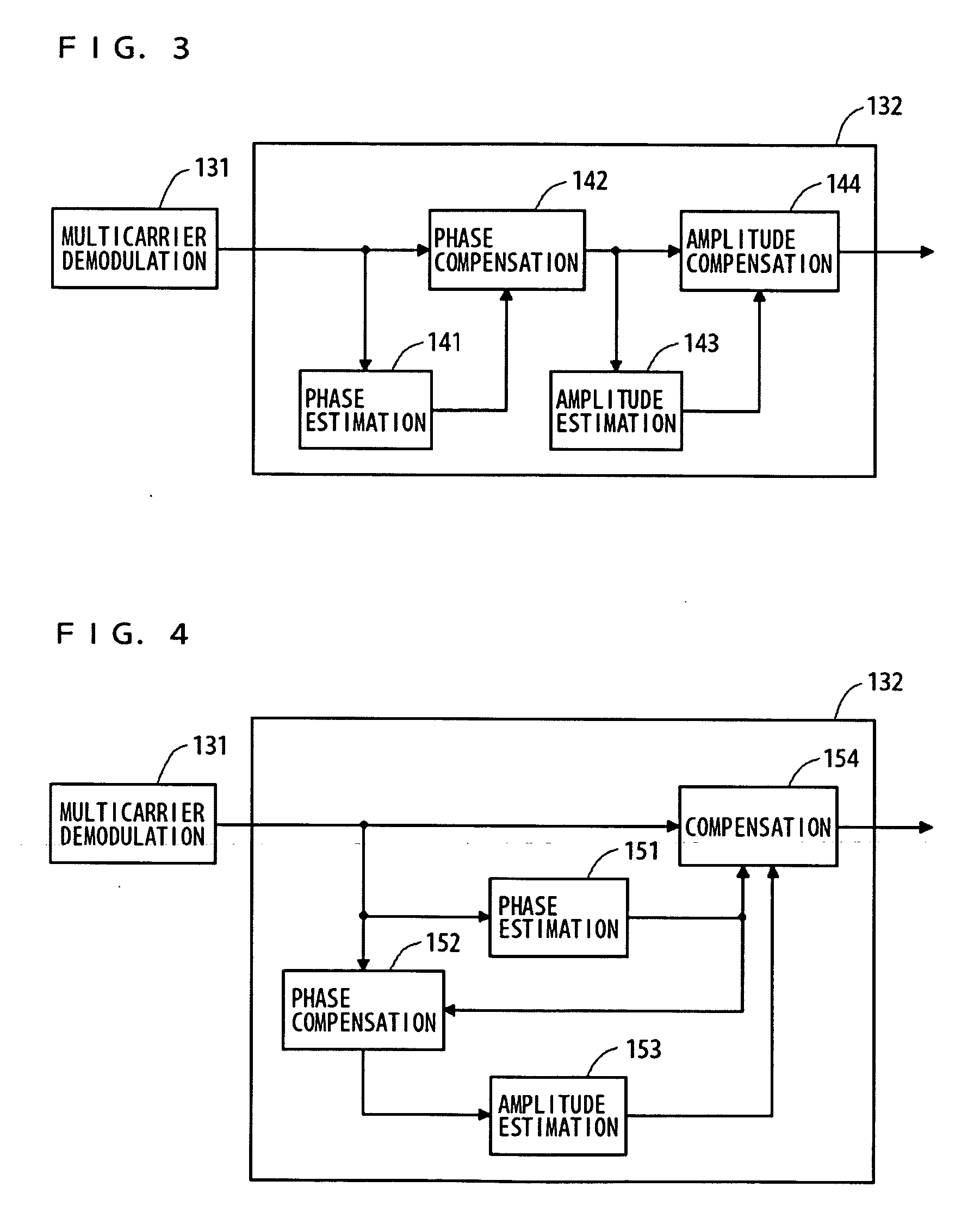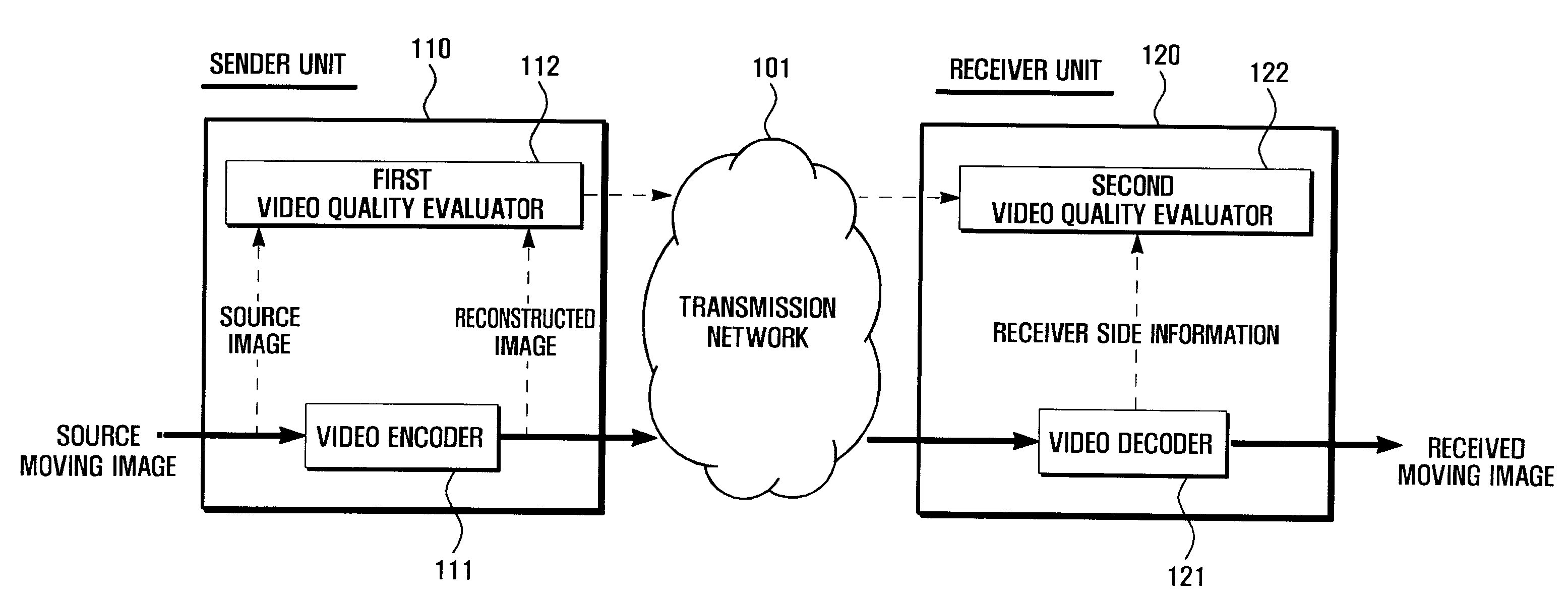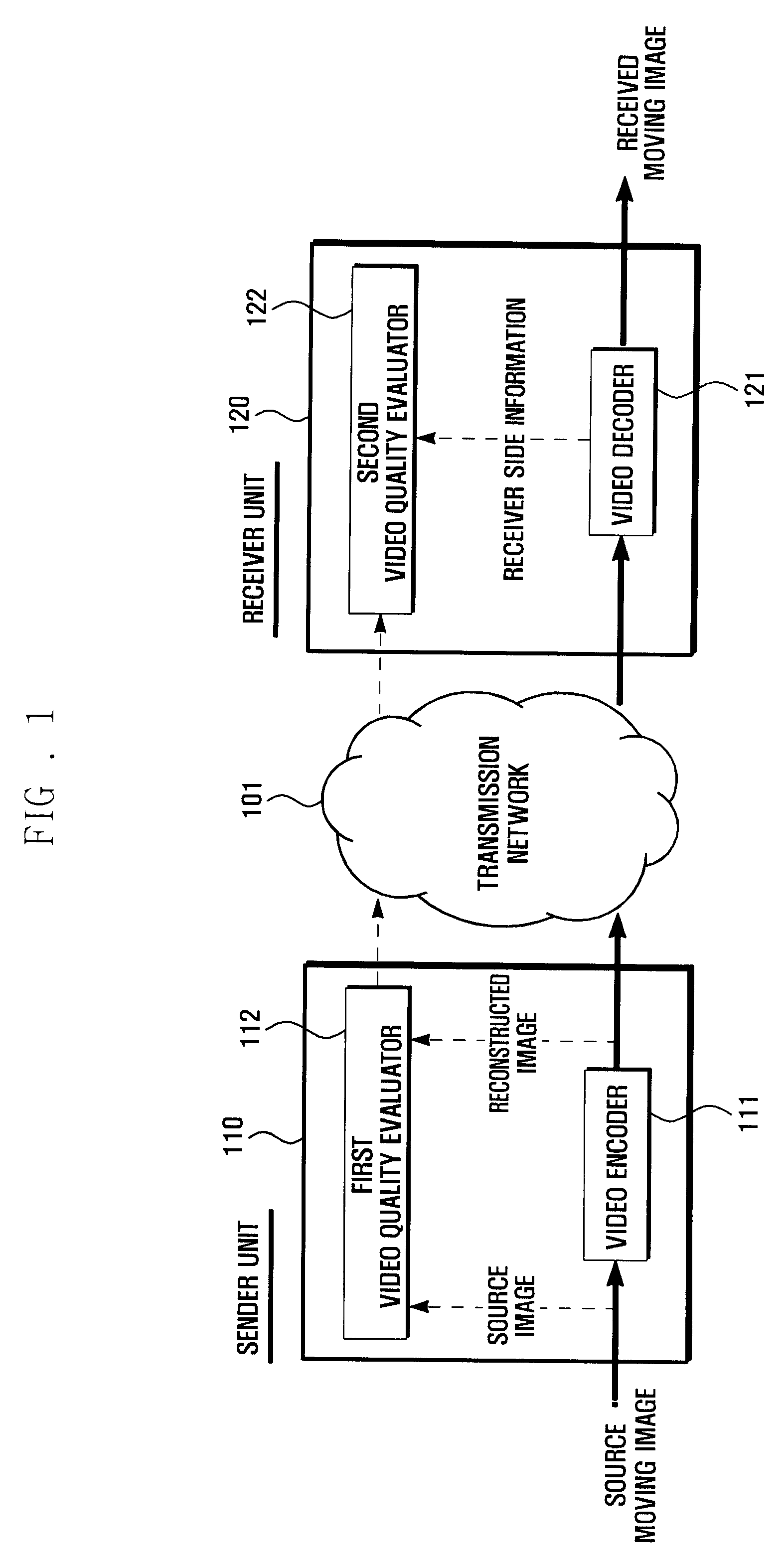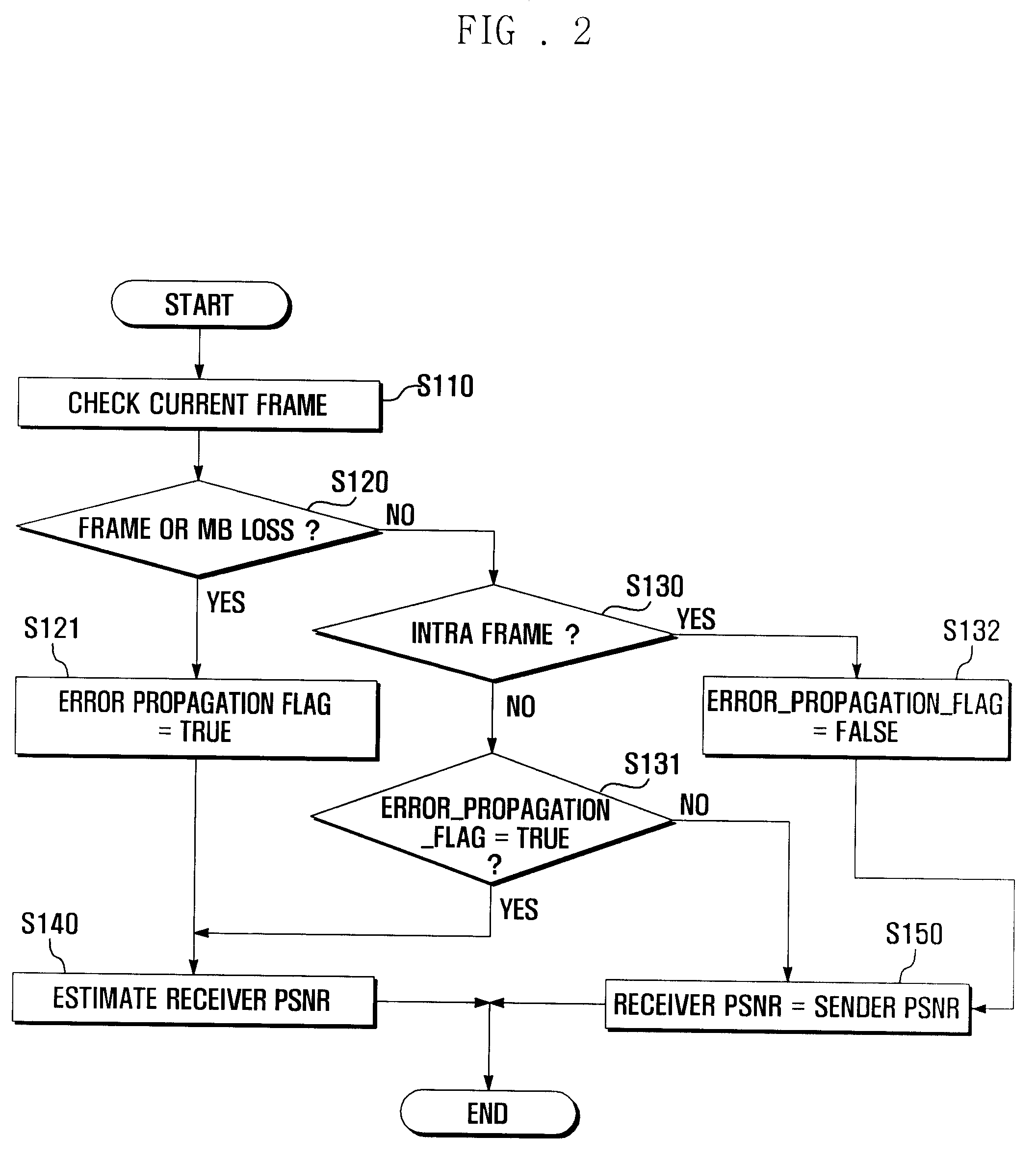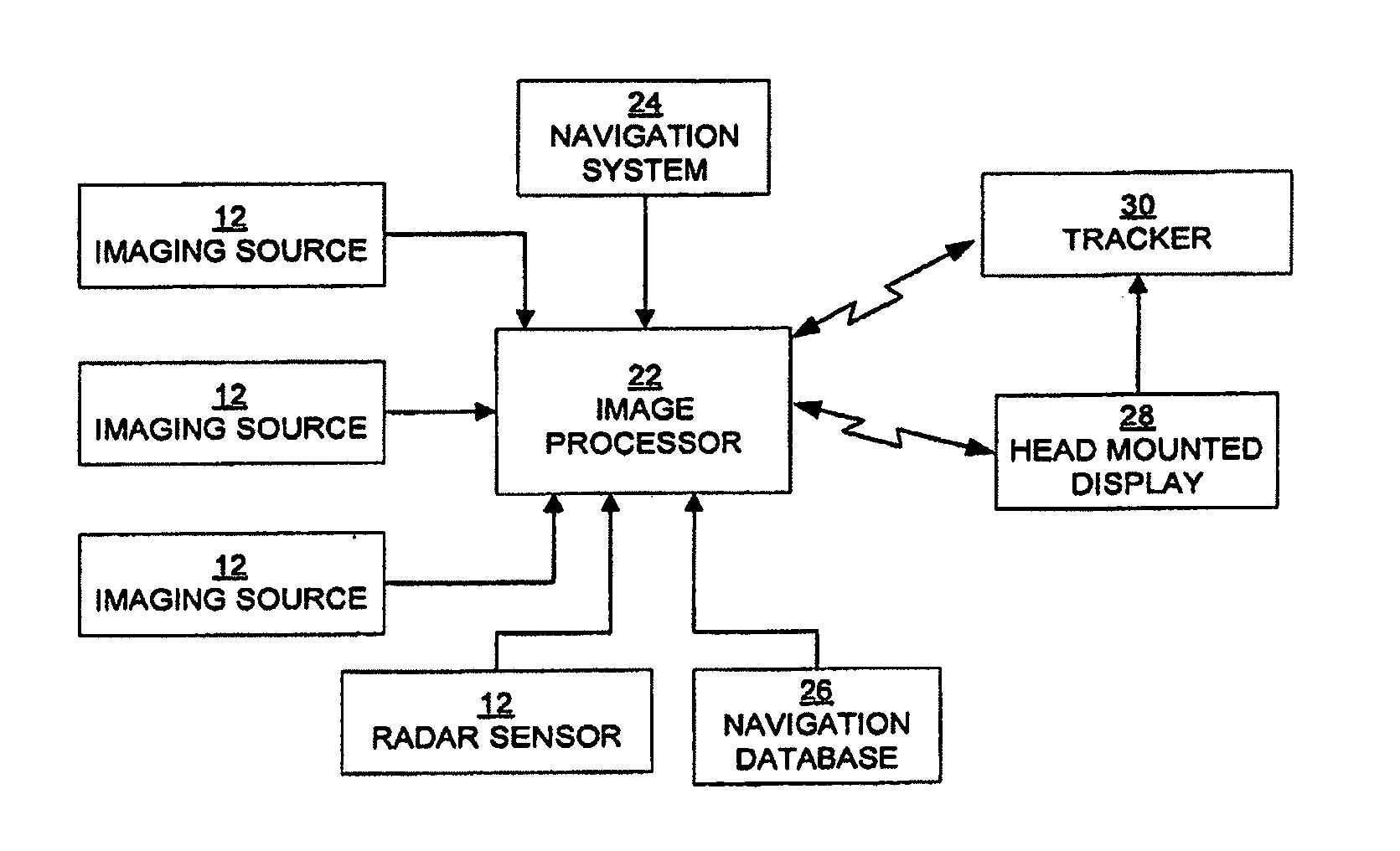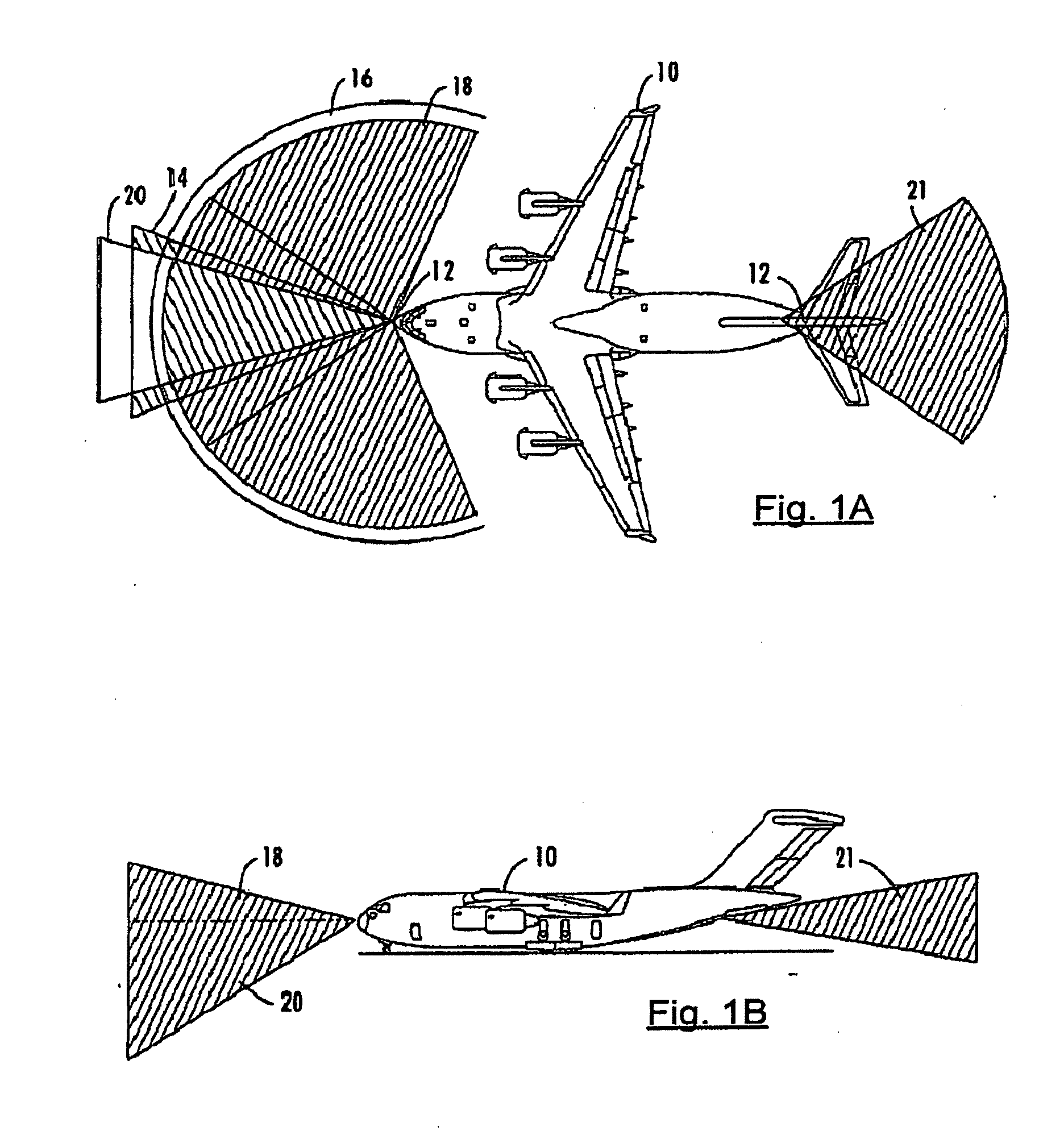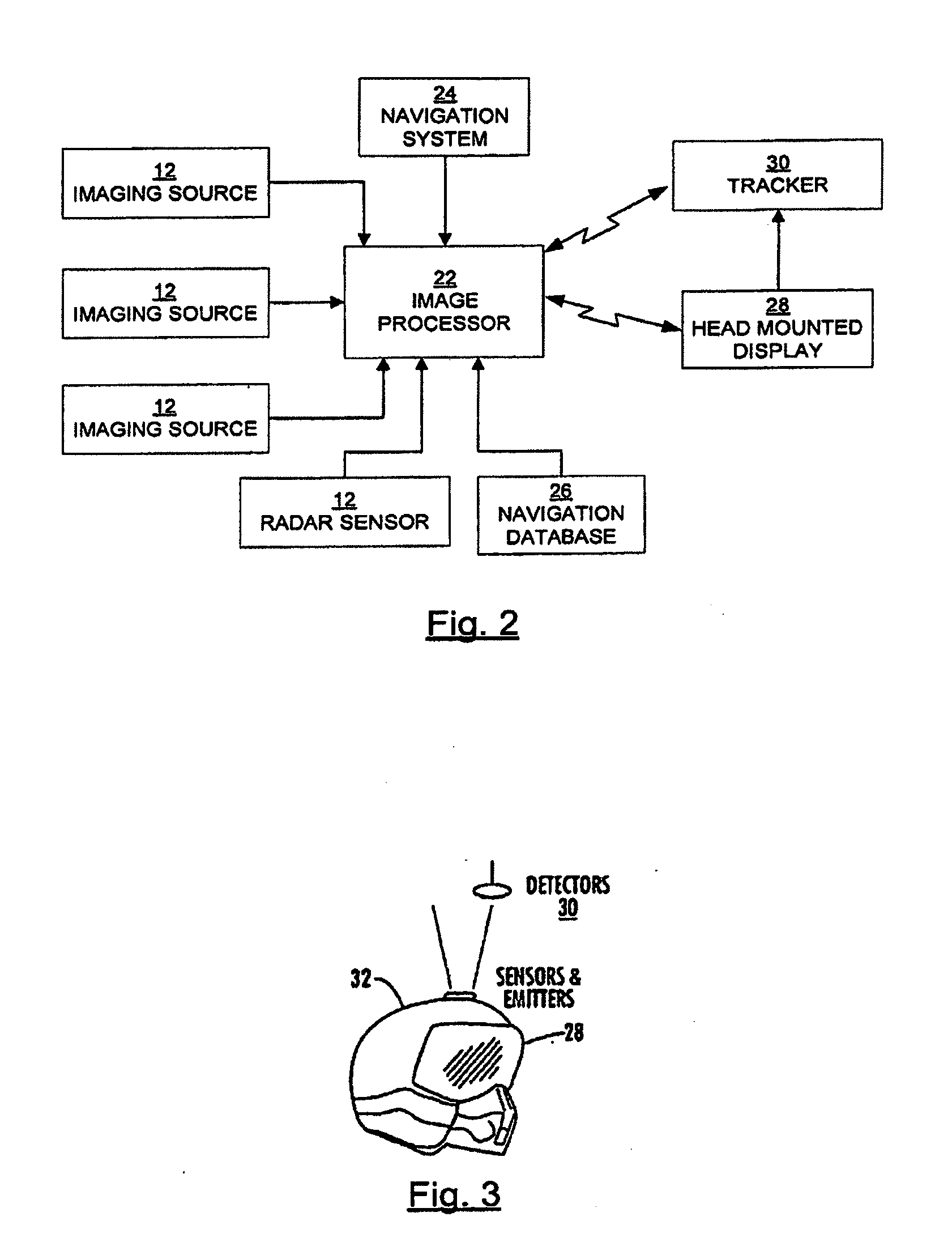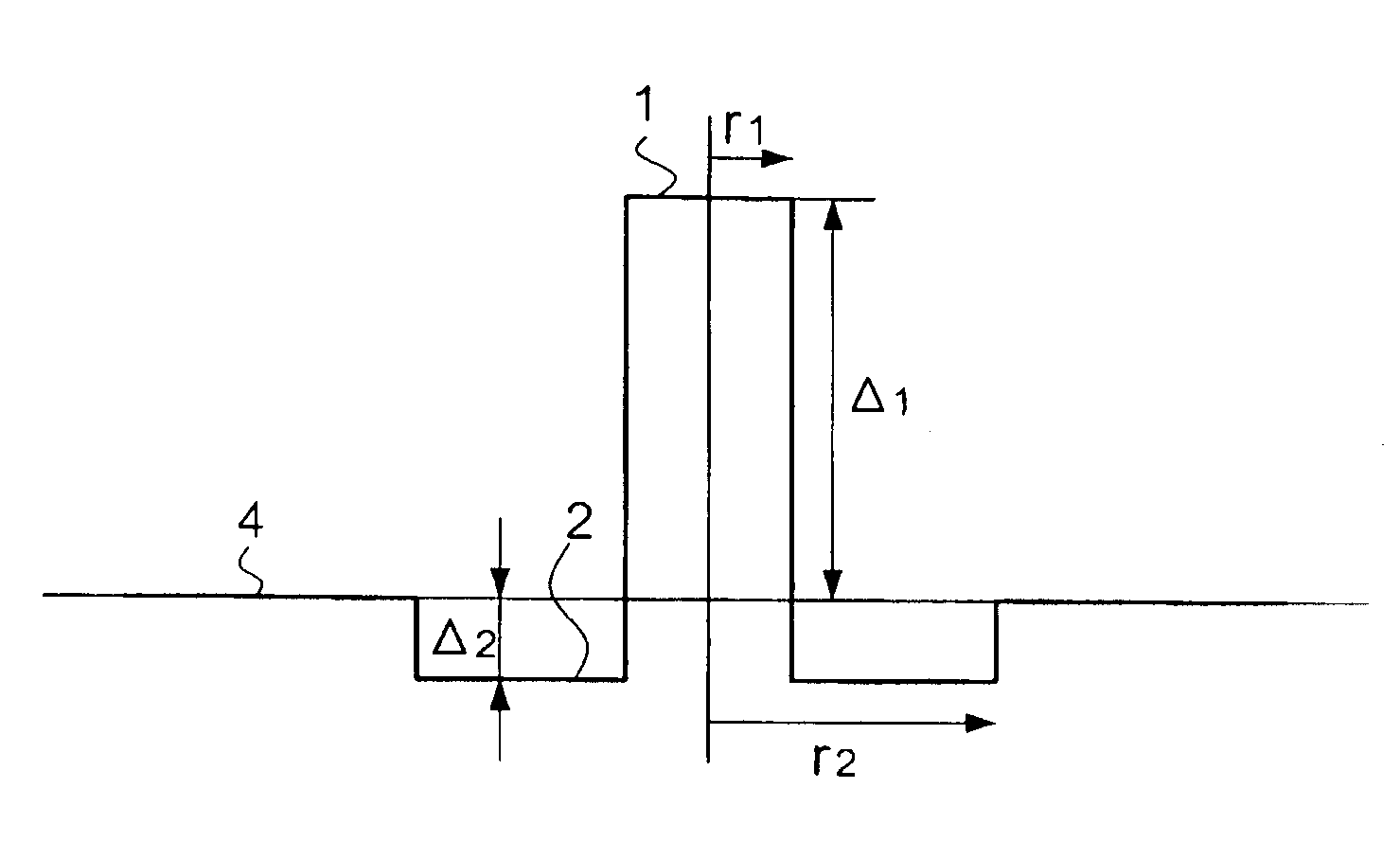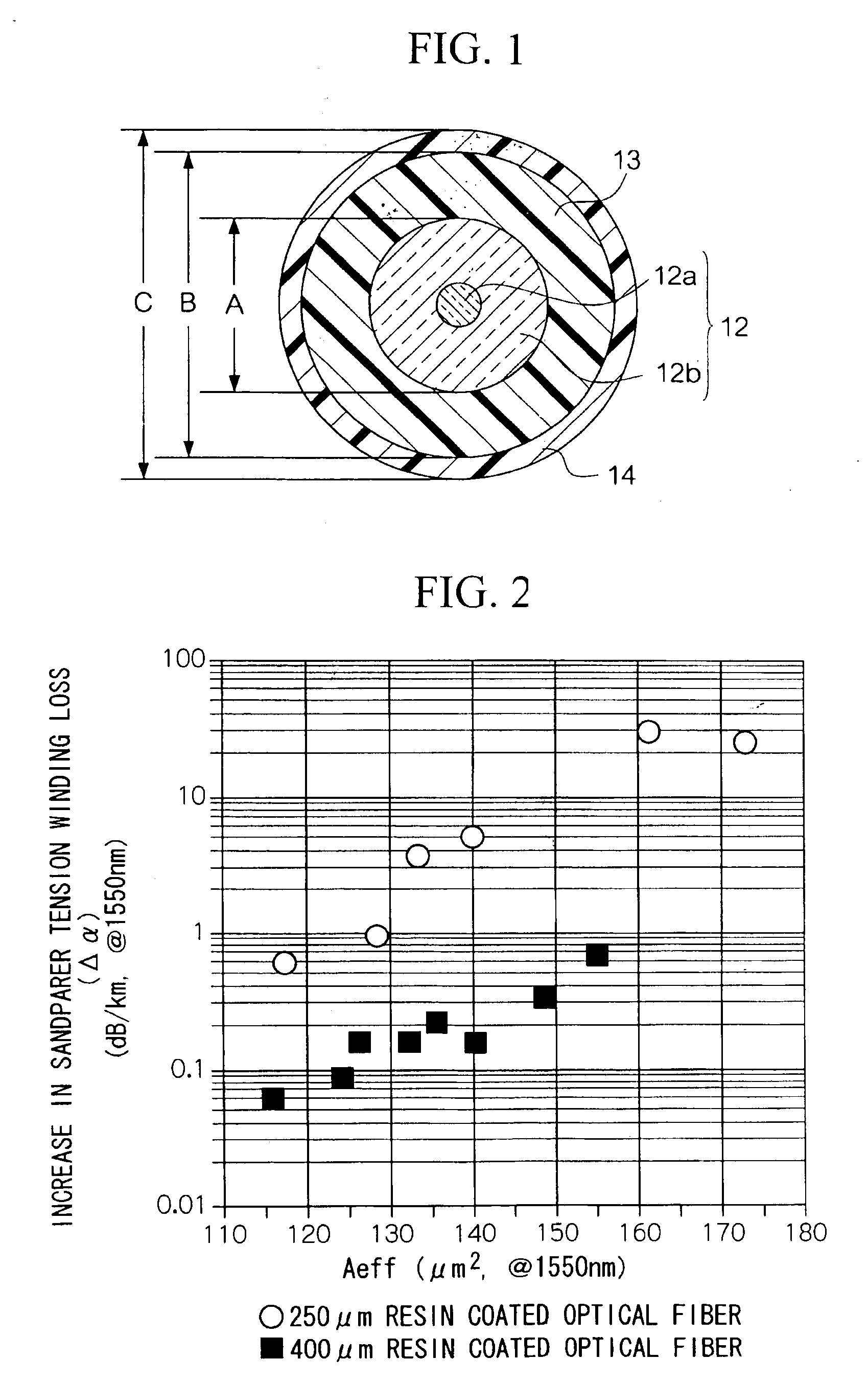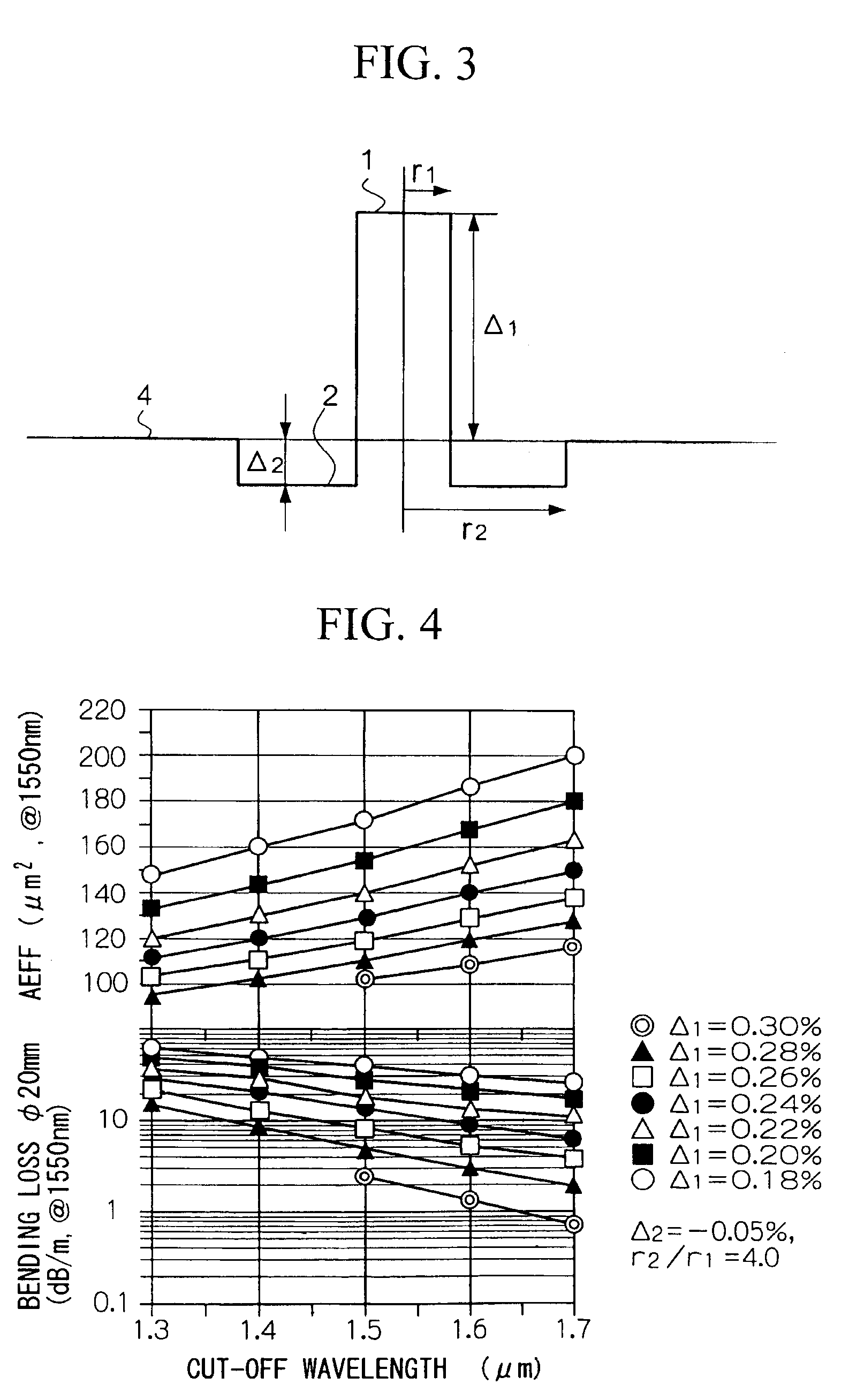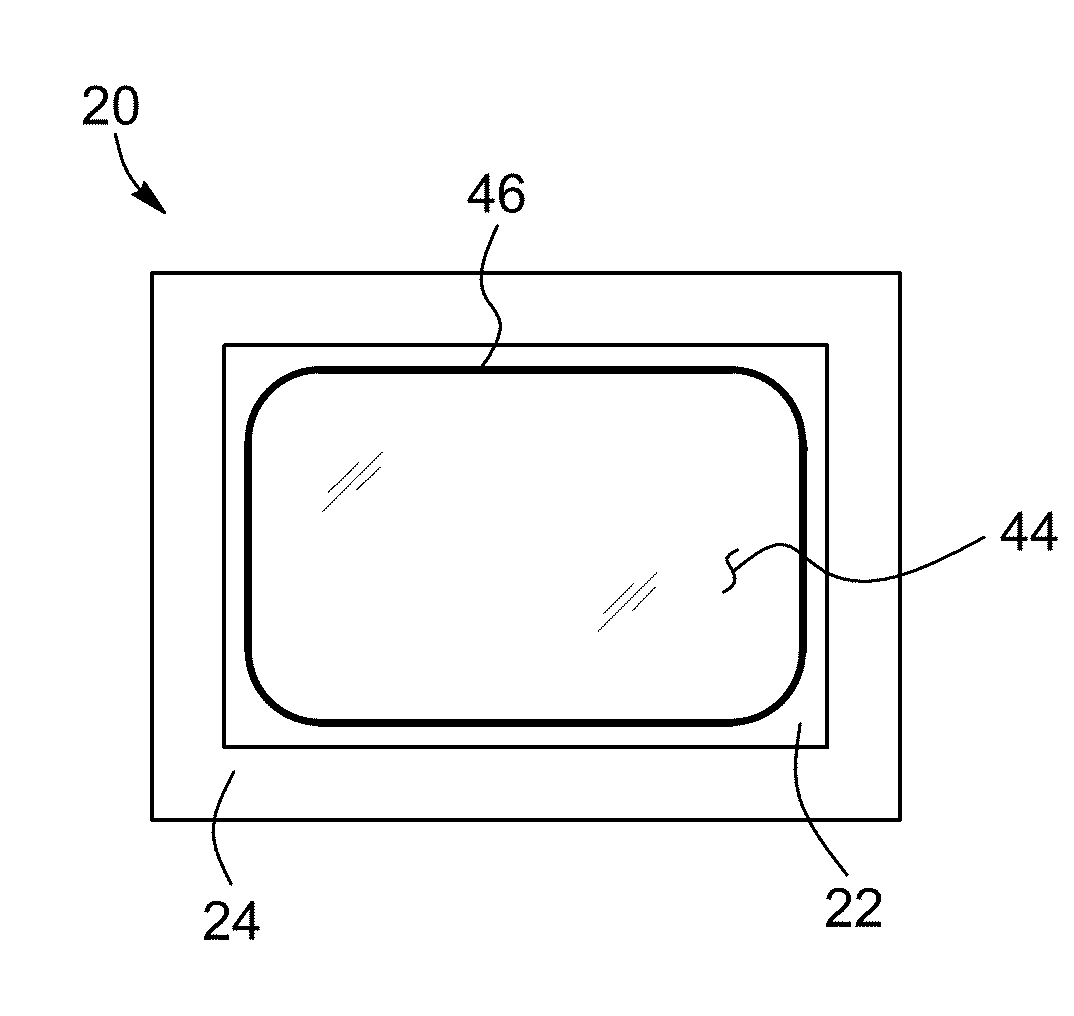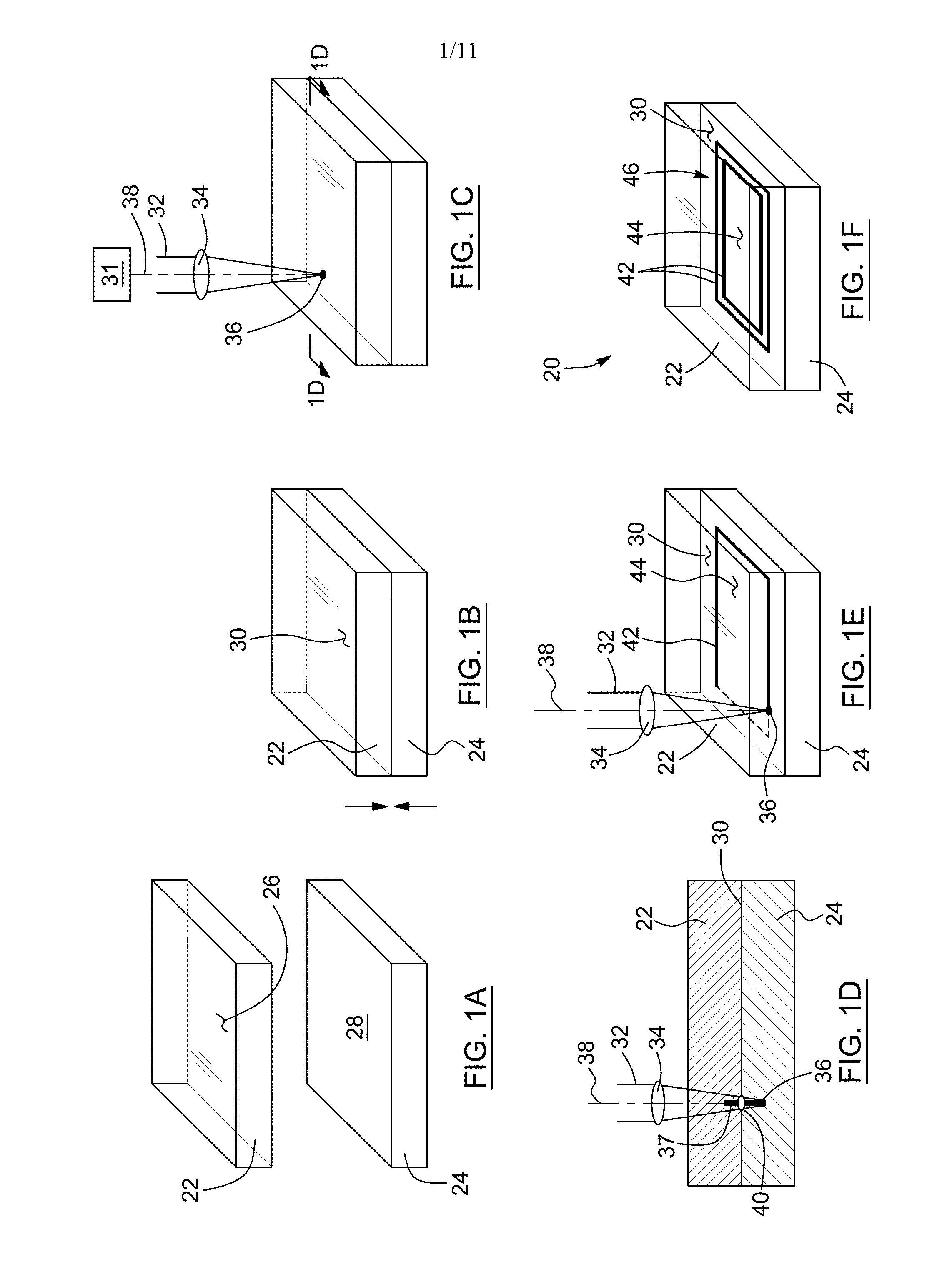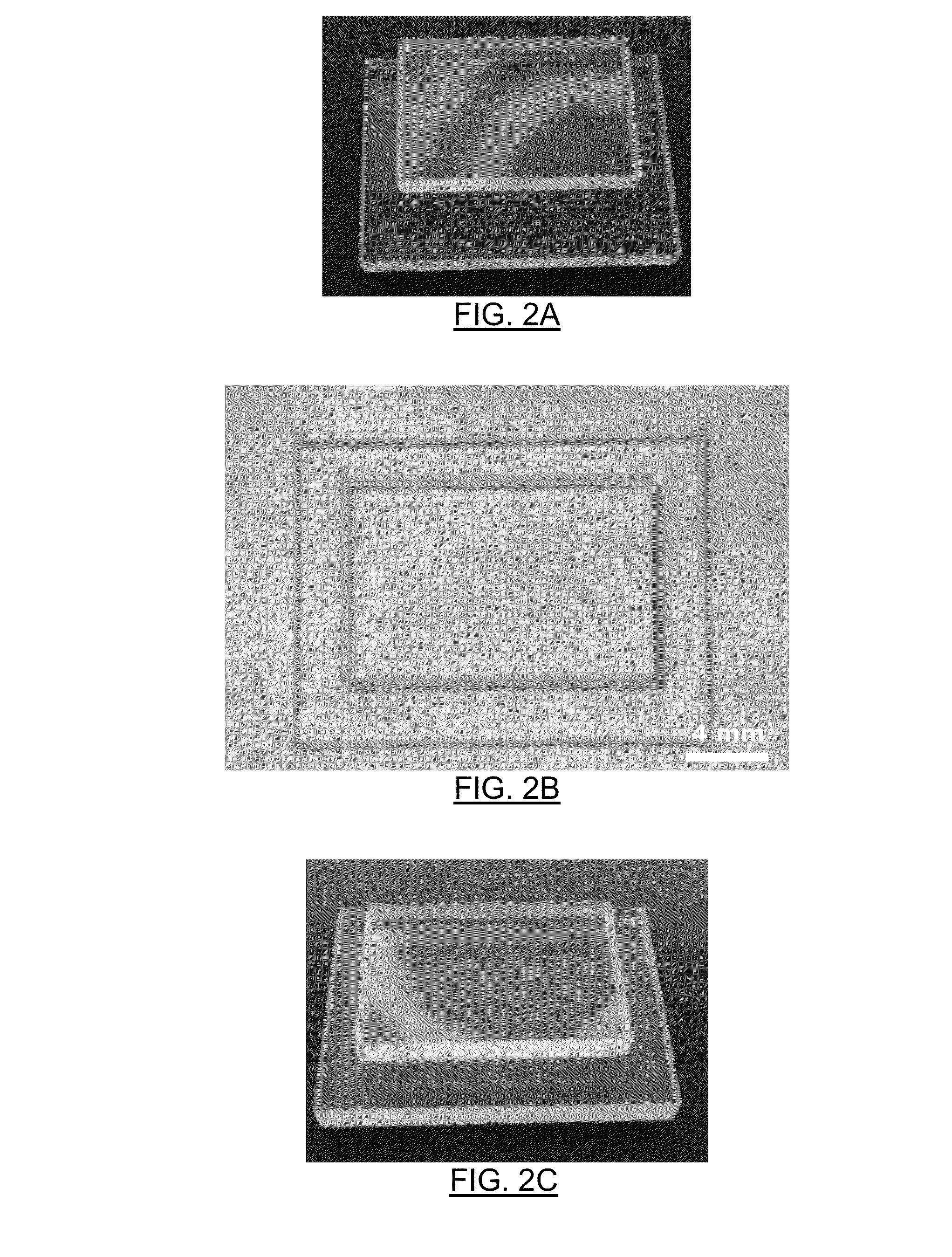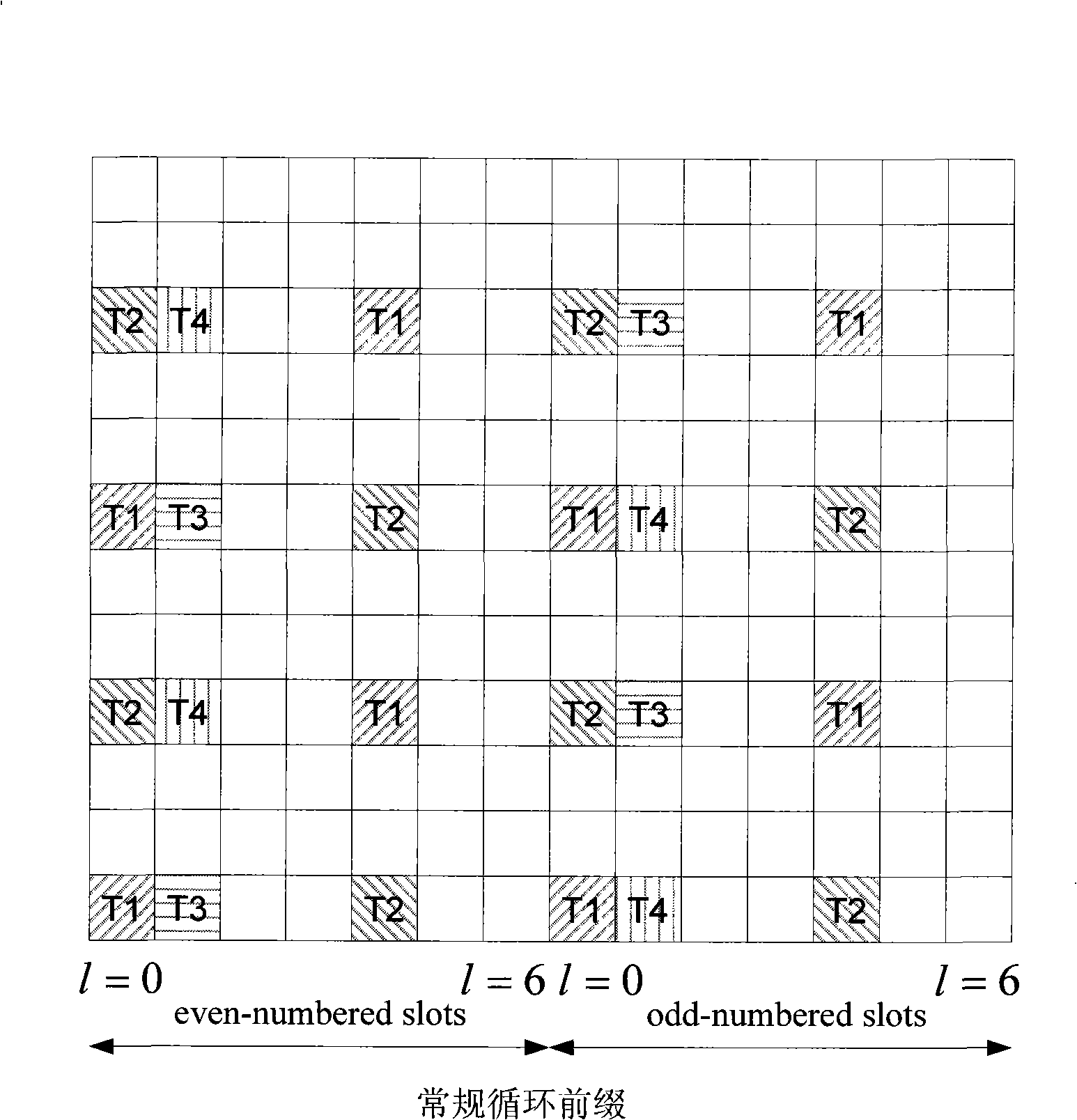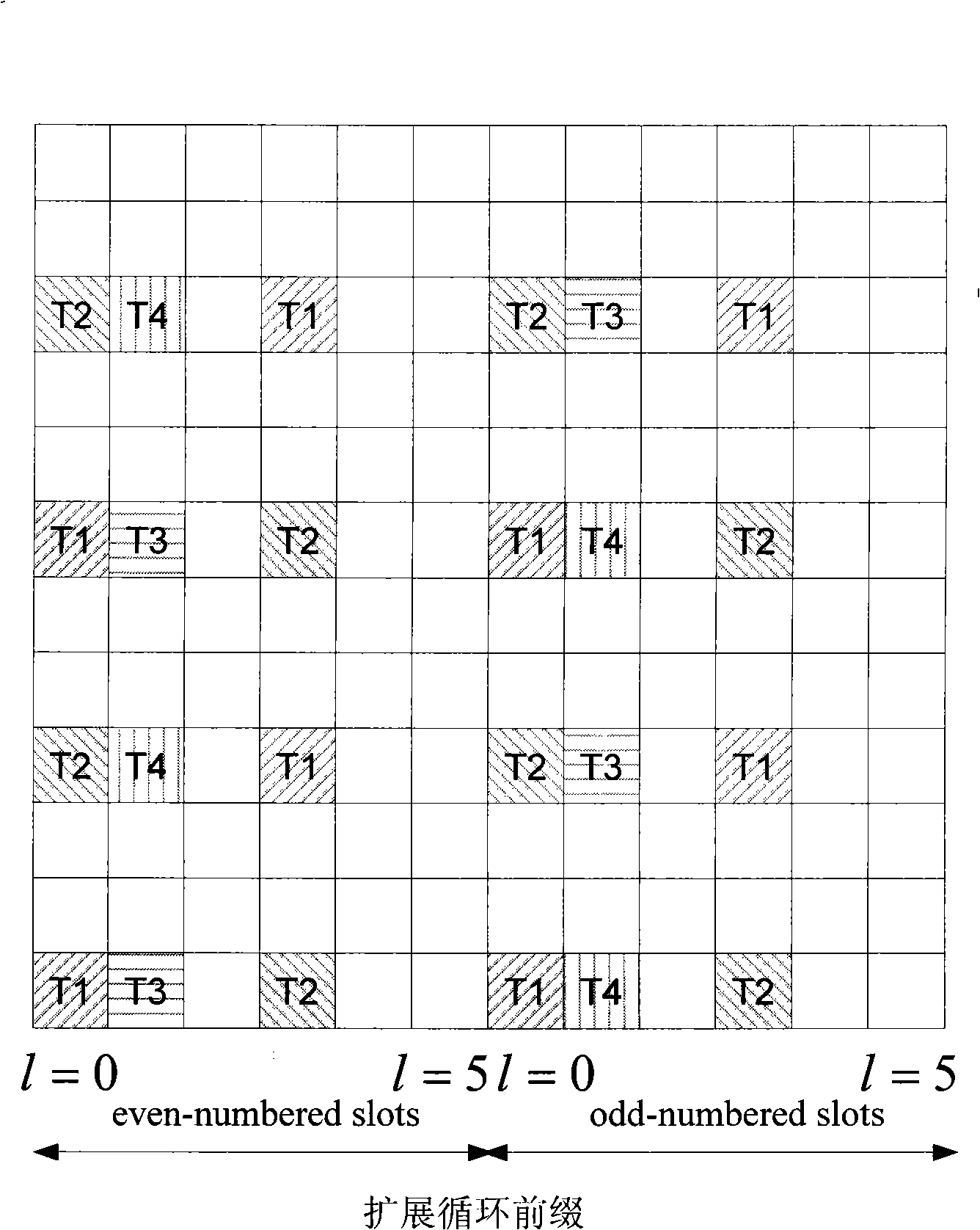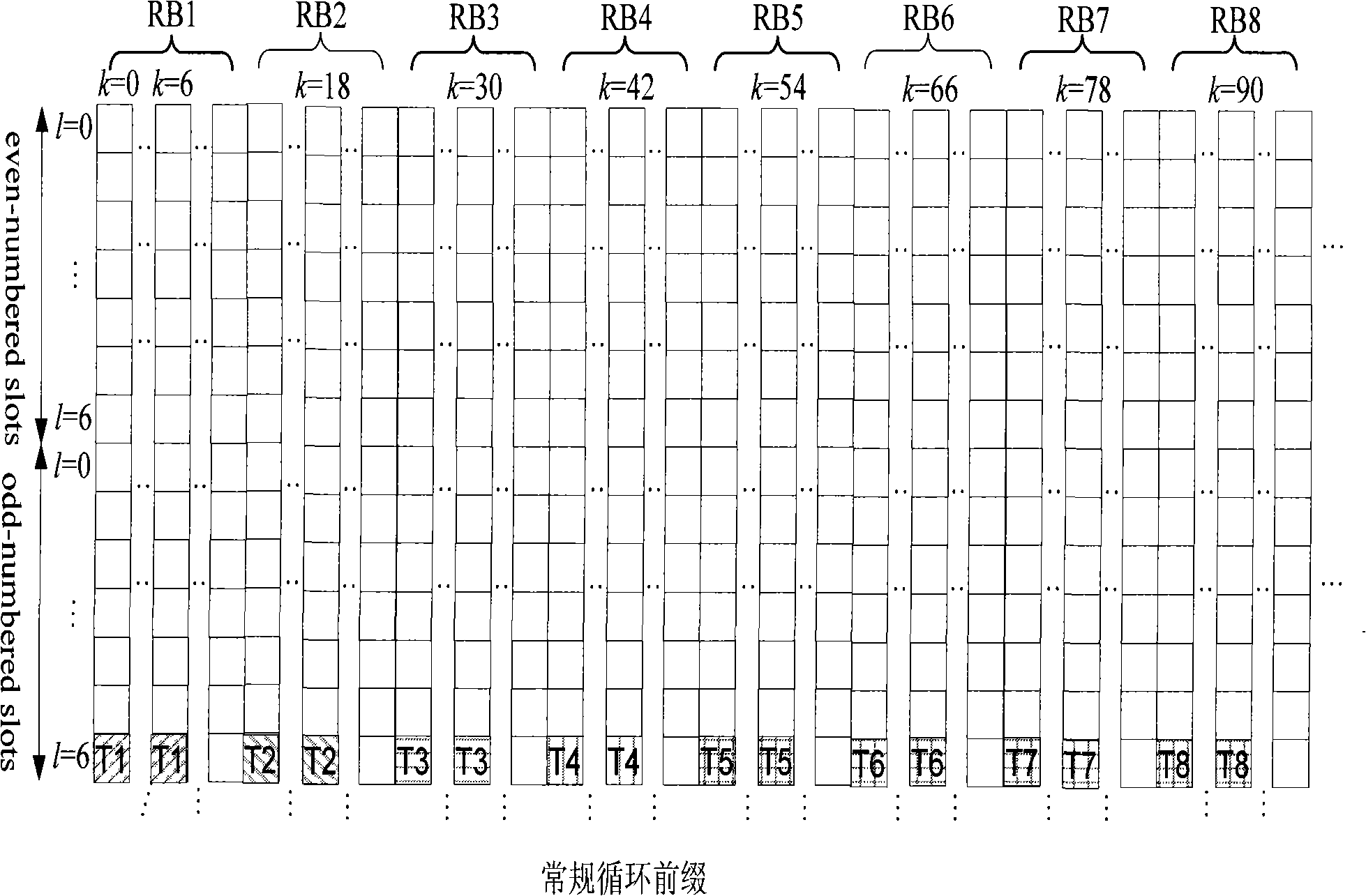Patents
Literature
1170 results about "Transmission properties" patented technology
Efficacy Topic
Property
Owner
Technical Advancement
Application Domain
Technology Topic
Technology Field Word
Patent Country/Region
Patent Type
Patent Status
Application Year
Inventor
Super-large-effective-area (SLA) optical fiber and communication system incorporating the same
ActiveUS6904218B2Increase the effective areaLow cutoff wavelengthOptical fibre with multilayer core/claddingOptical waveguide light guideFiberUltrasound attenuation
A super-large-effective-area (SLA) optical fiber that is suitable for communicating over a wide wavelength range and that, because of its large effective area, suppresses nonlinear effects that typically result from interaction between signal channels. The effective area, Aeff, of the SLA fiber of the present invention preferably is equal to or greater than approximately 80 μm2 at a wavelength window around 1310 nm. The cutoff wavelength of the SLA fiber of the present invention preferably is less than 1310 nm. Thus, the SLA fiber of the present invention has a very large effective area and a very low cutoff wavelength. In accordance with the present invention, a variety of SLA fibers are provided that all have very large effective areas and desirable transmission properties. The large effective areas of the SLA fibers of the present invention enable nonlinear effects to be suppressed, as well as Stimulated Brillouin Scattering in analog transmission. The large effective areas also enable attenuation to be reduced. The result of suppressing nonlinear effects and reducing attenuation enable signals to be transmitted over long distances and over a broad bandwidth.
Owner:FURAKAWA ELECTRIC NORTH AMERICA INC
Methods and apparatus of enhancing performance in wireless communication systems
ActiveUS7142864B2Constrain performance of systemExtension of timeSpatial transmit diversityReceivers monitoringCommunications systemMobile device
Methods and apparatus for supporting and using multiple communications channels corresponding to different transmit technologies and / or access technologies in parallel within a cell of a wireless communications system are described. Mobile nodes support multiple technologies and can switch between the technology being used at a particular point in time, e.g., from a first channel corresponding to a first technology to a second channel corresponding to a different technology which provides better transmission characteristics, e.g., a better perceived channel quality. Mobiles maintain at least two sets of channel quality information at any one point in time. Mobiles select the better channel and communicate the channel selection to the base station or communicate channel quality information for multiple channels to the basestation and allow the base station to select the channel corresponding to the technology providing the better conditions for the mobile. Different mobiles in the same cell may support different technologies.
Owner:QUALCOMM INC
Methods and apparatus of enhancing performance in wireless communication systems
ActiveUS20050181799A1Constrain performance of systemExtension of timeSpatial transmit diversityReceivers monitoringCommunications systemMobile device
Methods and apparatus for supporting and using multiple communications channels corresponding to different transmit technologies and / or access technologies in parallel within a cell of a wireless communications system are described. Mobile nodes support multiple technologies and can switch between the technology being used at a particular point in time, e.g., from a first channel corresponding to a first technology to a second channel corresponding to a different technology which provides better transmission characteristics, e.g., a better perceived channel quality. Mobiles maintain at least two sets of channel quality information at any one point in time. Mobiles select the better channel and communicate the channel selection to the base station or communicate channel quality information for multiple channels to the basestation and allow the base station to select the channel corresponding to the technology providing the better conditions for the mobile. Different mobiles in the same cell may support different technologies.
Owner:QUALCOMM INC
Magnetic resonance whole body antenna system, elliptically polarized with major ellipse axis tilted/non-horizontal at least when unoccupied by an examination subject
ActiveUS8362775B2Improved field distributionLittle effortMagnetic measurementsDiagnostic recording/measuringWhole bodyElliptical polarization
A magnetic resonance system obtaining magnetic resonance exposures of an examination subject, has an examination tunnel, a whole-body antenna with two connection terminals. The whole-body antenna cylindrically extends around the examination tunnel along a longitudinal axis. The system has a radio-frequency supply device in order to respectively supply the whole-body antenna with radio-frequency signals for emission of a radio-frequency field in the examination tunnel. The radio-frequency supply device has a radio-frequency generator for generation of a radio-frequency signal, a signal splitter that divides a radio-frequency signal coming from the radio-frequency generator into two partial signals that are phase-shifted by 90° relative to one another. Two radio-frequency feed lines are connected with the two connection terminals of the whole-body antenna. Via these radio-frequency feed lines, the two partial signals are fed into the whole-body antenna. The whole-body antenna has an intrinsic transmission characteristic such that a radio-frequency field is emitted that is elliptically polarized in a defined manner in a plane lying perpendicular to the longitudinal axis (at least in the unloaded state of the examination tunnel).
Owner:SIEMENS HEALTHCARE GMBH
Communication transceiver architecture
ActiveUS20070031150A1Reduce sensitivitySimplifies the transceiver architectureSatellite communication transmissionRadio transmissionLaser transmitterOptical axis
A free-space communication transceiver includes a telescope for transmitting and receiving laser beams, a tunable laser transmitter for generating a transmit laser beam modulated with data, a tunable optical receiver for processing a receive laser beam received from the telescope to recover data, and a tunable beamsplitter that directs the transmit laser beam to the telescope and directs the receive laser beam from the telescope to the optical receiver. Between the telescope and beamsplitter, the transmit and receive laser beams travel along a common optical axis as collinear collimated free-space beams. The transmit and receive laser beams operate at different wavelengths that can be interchanged, thereby support full-duplex operation. The beamsplitter employs a tunable etalon filter whose wavelength-dependent transmission characteristics are adjusted according to the transmit and receive wavelengths. Optionally, RF signals can additionally be couple to the common optical axis and transmitted and received by the telescope.
Owner:PERATON INC
Sensor configuration
InactiveUS20070027507A1Reduce riskMeet the requirementsElectrotherapyMaterial analysis by electric/magnetic meansTelecommunications linkCommunication link
Apparatus for monitoring and or treating a substance or body. The apparatus comprises a sensor 1, at least a portion of which 6 is arranged in use to come into contact with a body, tissue, bodily fluid or other substance, and a computer device 3. Both the sensor 1 and the computer device 3 have radio frequency circuitry 12,16 for facilitating the transmission of data between them via a wireless communication link, the computer device 3 having means 15,17 for selecting wireless link transmission properties based upon user location, and for signalling these properties to the sensor 1.
Owner:TOUMAZ TECH
Chip-size wavelength detector
ActiveUS20060039009A1Good wavelength selectivityHigh selectivityOptical measurementsRadiation pyrometryChip sizeLength wave
A chip-size wavelength detector includes a film with laterally varying transmission properties and a position-sensitive detector. The film transmits a different wavelength as a function of lateral position across the film. The position of a spot of light transmitted through the film will shift, depending on the wavelength of the light. The shift is measured by the position-sensitive detector.
Owner:XEROX CORP
Light guide plate for surface light-emitting device and method of manufacturing the same
InactiveUS20060002675A1Reduce manufacturing costPlanar/plate-like light guidesOptical waveguide light guideForeign matterLight guide
A light guide plate for a surface light-emitting device and a method of manufacturing the same are disclosed wherein the light guide plate is constructed in the form of an optical waveguide including an upper cladding film, core films formed with V-cut grooves, and a lower cladding film, so that since the upper and lower cladding films with a relatively low refractive index are respectively located on upper and lower surfaces of the core films, external foreign substances cannot penetrate into the core films, and the core films are not brought into contact with other components, whereby optical transmission properties are not changed and brightness can be also enhanced, and since the V-cut grooves are formed or both the V-cut grooves and optical waveguides are formed at the same time by means of a simple hot embossing process, the manufacturing costs can be saved.
Owner:LG ELECTRONICS INC
Active device having variable energy/optical properties
InactiveUS8035882B2Avoid bendingMounting is thereby simplifiedNon-linear opticsWater vaporLiquid water
The invention relates to an active device having variable energy / light transmission properties (100) comprising an active system (1, 12) between a protective substrate (2) and a protective cover (3), selected from an essentially inorganic electrochromic system, a light valve system, a liquid crystal system, a gasochromic system, a thermochromic system, means leakproof to liquid water and / or water vapor, a surround (50) made from at least one metal based part (5a, 5b) on the periphery of the device, the surround being assembled with the cover and with the substrate by assembling means (61′ to 64′) forming at least part of the means leakproof to water vapor.
Owner:SAINT-GOBAIN GLASS FRANCE
Systems for and methods of determining likelihood of atypical transmission characteristics of reference points in a positioning system
Systems for and methods of determining likelihood of atypical transmission characteristics of reference points in a positioning system are disclosed. A method of determining a measure of likelihood that a designated wireless device exhibits signal transmission characteristics atypical of a wireless device of a type matching the designated device includes determining reference points associated with the designated device, which are a geographic position at which signals from the designated device were detected and / or another wireless device from which signals were also detected by a receiver within a selected period of time during which the signals from the designated device were detected. The method also includes determining statistical measures of a spatial distribution of the reference points and determining a measure of likelihood that the designated device exhibits signal transmission characteristics that are atypical of a wireless device of a type matching the designated device based on the statistical measures.
Owner:SKYHOOK WIRELESS
Pen-shaped optical mouse
InactiveUS20060028456A1Eliminate disadvantagesEasy to useInput/output for user-computer interactionCathode-ray tube indicatorsDirect touchOptic system
Disclosed is a pen-shaped optical mouse. The optical mouse has an optical fiber on the optical path of illuminating light, and an optical fiber bundle on the optical path of reflected light, respectively. The optical system of the optical mouse is realized irrespective of the optical paths and their lengths, showing a good image-transmitting feature to transmit good image to an image sensor. An image is input to the image sensor through an end of an optical tip where the image directly contacts a reflecting surface, which enhances the accuracy of the pen-shaped optical mouse since there is no change in the location of a mouse pointer or a focal length in spite of the change in the angle between the pen-shaped optical mouse and the reflecting surface.
Owner:WAAWOO TECH
Using position-sensitive detectors for wavelength determination
Owner:XEROX CORP
Methods and apparatus of enhancing performance in wireless communication systems
ActiveUS20070064641A1Constrain performance of systemExtension of timePower managementReceivers monitoringCommunications systemMobile device
Methods and apparatus for supporting and using multiple communications channels corresponding to different transmit technologies and / or access technologies in parallel within a cell of a wireless communications system are described. Mobile nodes support multiple technologies and can switch between the technology being used at a particular point in time, e.g., from a first channel corresponding to a first technology to a second channel corresponding to a different technology which provides better transmission characteristics, e.g., a better perceived channel quality. Mobiles maintain at least two sets of channel quality information at any one point in time. Mobiles select the better channel and communicate the channel selection to the base station or communicate channel quality information for multiple channels to the base station and allow the base station to select the channel corresponding to the technology providing the better conditions for the mobile. Different mobiles in the same cell may support different technologies.
Owner:QUALCOMM INC
Membrane exchange humidifier for a fuel cell
InactiveUS6864005B2Simpler humidifier constructionFuel cell auxillariesSolid electrolyte fuel cellsFuel cellsLiquid water
Owner:BDF IP HLDG
Adaptive transmission system
ActiveUS7047029B1Mitigates undesirable aspectPower managementRadio transmissionEngineeringSignal generator
A method, apparatus, article of manufacture, and a computer memory structure adaptively controlling a transmission signal from a satellite to at least one terrestrial receiver in a terrestrial region is disclosed. The method comprises the steps of receiving information describing a deleterious time-varying propagation characteristic of the transmission signal to the terrestrial region; generating the transmission signal having a transmission characteristic which mitigates the undesirable aspects of the time-varying propagation characteristic; and transmitting the generated transmission signal from the satellite to the terrestrial receiver. The article of manufacture comprises a controller device tangibly embodying instructions to perform the method steps described above. The apparatus comprises a receiver for receiving information describing a time-varying signal propagation characteristic of the signal to the terrestrial region; a signal generator for adaptively generating a transmission signal having a transmission characteristic mitigating the propagation characteristic; and a transmitter for transmitting the generated transmission signal.
Owner:DIRECTV LLC
Touch sensing output device
InactiveUS20120146943A1Reduce complexityReduce manufacturing complexityNon-linear opticsInput/output processes for data processingCapacitanceTouch Senses
A device having touch sensor input functionality, comprises first and second control electrodes (40,42) lying in a common plane. The device is operable in at least two modes, comprising: a first mode in which the light transmission characteristics are altered by controlling the movement of the charged particles under the influence of control signals applied to the first and second control electrodes; and a second mode in which the first and second control electrodes are coupled to a capacitance sensing means, for detecting a change in capacitance caused by the proximity of an object to be detected.
Owner:KONINKLIJKE PHILIPS ELECTRONICS NV
Data transmission device and method
InactiveUS7203165B1Eliminate distractionsFacilitate transmissionFrequency-division multiplex detailsRadio/inductive link selection arrangementsComputer hardwareData transmission
A data transmission device is described which may use multiple data transmission technologies and / or multiple data transmission parameters of one or more data transmission technologies, having at least one transmitting device and one receiving device which can communicate with one another over at least one data transmission channel. A determination device for determining the transmission properties of the data transmission channel(s) for multiple data transmission technologies and / or multiple data transmission parameters of one or more data transmission technologies, and a selector device for selecting a certain data transmission technology having certain data transmission parameters according to the result of the determination, are additionally provided so as to be able to accommodate different transmission properties.
Owner:IPCOM GMBH & CO KG
Optical analysis system and elements to isolate spectral region
ActiveUS20090219512A1Minimize band-edge effectUseful and reliable capabilityRadiation pyrometrySpectrum investigationOptical frequenciesAnalysis sample
A method of selecting components for a multivariate optical computing and analysis system to isolate a spectral region includes selecting a spectral region of interest; selecting a spectral element with a predetermined transmission characteristic to control a spectral range of an illumination source; illuminating a sample with the illumination source; and analyzing an optical frequency returned by the sample relative to the spectral region of interest.
Owner:HALLIBURTON ENERGY SERVICES INC
Method and arrangement for channel type switching
InactiveUS20050013287A1Short incubation periodImprove throughputNetwork traffic/resource managementData switching by path configurationRadio networksChannel parameter
The present invention relates to a method for improved and efficient usage of radio network resources with regard to the transmission properties of applied communication channel types and total network load by means of using early indications on the uplink or downlink of requests to establish new communication connection or adjust parameter settings of already existing connections regading the expectable amount of additional traffic due to such a connection. Early indications are, e.g., information on protocol type, the kind of requested communication service, the profile of the user equipment that has sent the request, or traffic history. In response to such indications the inventive method can forward, e.g., an uplink request and at the same time initiate a channel type switching providing appropriate channel parameter settings or adjustments. In case of congestion control it is another possibility to delay or even suppress uplink requests.
Owner:TELEFON AB LM ERICSSON (PUBL)
Improved free space optical bus
InactiveUS20060251421A1Quality improvementImprove transmission qualityNetwork traffic/resource managementPolarisation/directional diversityCross-linkAntenna gain
A method and apparatus for improving the transmission quality of a free space optical bus between circuitry elements in high speed computing, communication and signal processing systems. Use is made of an adaptive algorithm that learns the transmission properties of the bus, and selects or adjusts transmission paths or characteristics to provide optimum bus performance. Each transmitter on the bus transmits a signal which is generally measured by all of the receivers on the bus, and the measured signals are used to generate a matrix which maps desired transmission along information links, and cross-link interference. Transmission quality is optimized by adjusting one or more characteristics associated with transmission along the bus, including emitted power, beam divergence, wavelength, beam polarization, antenna gain and antenna polar diagram of the transmitters, and power sensitivity, gain, equalizer coefficients, field of view, polarization sensitivity, antenna gain and antenna polar diagram of the receivers. Novel bus configurations are described, including use of different wavelengths for different bus functions.
Owner:BEN GURION UNIVERSITY OF THE NEGEV
Optical waveguide monitoring
InactiveUS6879386B2Cladded optical fibreMaterial analysis by optical meansPhotonic crystalEngineering
Owner:OMNIGUIDE
Systems and methods for determining physiological signals using ambient light
ActiveUS20180078151A1Convenient lightingHigh gainDiagnostics using lightOptical sensorsLength waveTransmission properties
This relates to systems and methods for determining one or more physiological signals of a user using ambient light. The systems and methods can include one or more light sensors configured to measure light that has interacted with a user and one or more light sensors configured to measure ambient light. The gain of the one or more light sensors can be adjusted based on the levels of measured ambient light. For example, the gain of the one or more light sensors can be increased when ambient light levels are low (e.g., a low light environment), or the gain of the one or more light sensors can be decreased when ambient light levels are high (e.g., a bright light environment). In some examples, the systems can include a variable opacity element whose transmission properties (e.g., opacity and / or selected one or more wavelengths to pass through) can be varied.
Owner:APPLE INC
End-of-service indicator including a porous waveguide for respirator cartridge
An end-of-service indicator for use with a respirator cartridge, the end-of-service indicator having an optical waveguide having two extremities, one of the extremities being connected to a light source, the other of the extremities being connected to a detector which measures the intensity of light guided and transmitted by the fiber. An alarm is connected to the detector and is triggered when the intensity of light measured by the detector is below a predetermined level. An important aspect of the end-of-service indicator is that at least a portion of the optical fiber is porous. In use, the end-of-service indicator is placed inside a respirator cartridge having a gas / vapor sorbent, so that when the respirator cartridge is used in a toxic environment, the gas / vapor sorbent and the porous glass gradually become saturated. This porous glass will absorb the gas / vapor in the same fashion as the sorbent used in the respirator cartridge, thereby lowering the guiding and transmission properties of the optical fiber which loses the necessary conditions to guide light.
Owner:INSTITUT NATIONAL D'OPTIQUE +1
Microwave Sensor
InactiveUS20080165002A1Increase in sizeIncrease costDetection using electromagnetic wavesRadio wave reradiation/reflectionReflectance propertiesMicrowave sensor
According to one embodiment, a microwave sensor includes: a first directional coupler (DC1) connected on a path of a transmission antenna unit (A1); a second directional coupler (DC2) connected on a path of a reception antenna unit (A2), and a determination unit (4) that obtains, based on monitor outputs from these, a scattering parameter S11 corresponding to a reflectance property at the transmission antenna unit (A1) and a scattering parameter S21 corresponding to a transmission property from the transmission antenna unit (A1) to the reception antenna unit (A2), and outputs an alarm signal (Dout2) when at least one of the scattering parameter S11 and the scattering parameter S21 continuously exhibits a value outside its respective pre-set range over a predetermined period of time.
Owner:OPTEX CO LTD
Multicarrier modulation scheme as well as transmission apparatus and reception apparatus using the scheme
ActiveUS20090268837A1Reduce transmit powerSpatial transmit diversityTransmission path divisionGeneration processCarrier signal
An object is to generate a pilot signal for estimating transmission characteristic of a transmission channel which is suitable for the OFDM / OQAM multicarrier modulation. A phase reference pilot symbol of which a modulation amplitude is suppressed to zero, and an amplitude reference pilot signal obtained through modulation performed by using an amplitude known to a reception end are transmitted from a transmission end, and the transmission characteristic of the transmission channel is estimated and compensated by using the phase reference pilot signal and the amplitude reference pilot signal at the reception end. Thus, it is possible to simplify frame generation process performed at the transmission end, and reduce transmission power for the phase reference pilot signal.
Owner:INTERDIGITAL PATENT HLDG INC
System and method for real-time video quality assessment based on transmission properties
InactiveUS20090153668A1Easy to optimizeAccurate real-time assessmentColor television with pulse code modulationColor television with bandwidth reductionVideo transmissionVideo quality
A system and method for video quality assessment includes utilizing codec auxiliary information related to the encoding and decoding process to enhance performance of picture quality assessment. In a video transmission system, video quality assessment can be accurately performed in real time with reduced computational load upon the client. In particular, the server performs first picture quality assessment and sends the assessment result to the client, and the client performs second picture quality assessment only when a transmission error occurs to reduce the computational load on the client.
Owner:SAMSUNG ELECTRONICS CO LTD
Methods for remote display of an enhanced image
A method is provided for providing remote display of an enhanced image. The method receives data from the image source, creates an enhanced image with the received data, and transmits the enhanced image via a wireless link to a display device capable of displaying the enhanced image. The method may create the enhanced image by stitching image data from at least two image sources having different fields of view, fusing image data from at least two image sources having different image modalities, or combining image data from at least one image source with synthetic image data. The method may also modify at least one transmission characteristic based on a bandwidth of the wireless link. The transmission characteristic may be selected from the group comprising field of view, frame rate, resolution, and compression.
Owner:THE BOEING CO
Optical fiber and optical transmission system
InactiveUS7076139B1Simple refractive index profileLow costOptical fibre with multilayer core/claddingCoupling light guidesEngineeringLength wave
An optical fiber is fabricated with a refractive index profile having a central core; a middle part provided around the outer periphery of the central core and having a lower refractive index than that of the central core; and a cladding provided around the periphery of the middle part and having a higher refractive index than the middle part and a lower refractive index than the central core. This optical fiber has an effective core area of 120 μm2 or more in an employed wavelength band selected from the range of 1.53˜1.63 μm, and has a cut-off wavelength that is capable of substantially single mode propagation in the aforementioned employed wavelength band. As a result, it is possible to construct an optical transmission system having excellent transmission characteristics in which nonlinearity is decreased.
Owner:THE FUJIKURA CABLE WORKS LTD
Laser reinforced direct bonding of optical components
ActiveUS20130344302A1Negligible alterationEasy to assembleLamination ancillary operationsDecorative surface effectsEngineeringUltrashort laser
A method for the laser reinforced direct bonding of two optical components having a respective bonding surface and a reinforced optical assembly made thereby are provided. The method includes a first step of assembling the two optical components by direct bonding of their respective bonding surface together, thereby defining a direct-bonded interface therebetween. The method further includes a second step of reinforcing the direct-bonded interface with a weld seam including at least one substantially continuous reinforcing weld line forming a dosed shape enclosing a sealed direct-bonded region. Each weld line is inscribed by focusing ultrashort laser pulses at the direct-bonding interface so as to generate non-linear optical phenomena inducing a localized junction between the two optical components. Advantageously, embodiments of the present invention provide reinforced optical assemblies exhibiting hermetic and mechanically resistant bonds over a large area as well as negligible alteration of their optical transmission properties.
Owner:UNIV LAVAL
Sending and using method of measure-reference signals
ActiveCN101541085AReduce overheadPerfectly compatibleSpatial transmit diversityMulti-frequency code systemsChannel state informationMimo transmission
A sending and using method of measure-reference signals comprises the steps of: bearing the measure-reference signals of the same reference signal group into the same resource block to send and respectively bearing the measure-reference signals of different reference signal groups into different resource blocks to send, wherein the reference signal group of number i contains Ni measure-reference signals used for the measure of channel state information, each reference signal group contains different measure-reference signals, Ni is not less than 1, i is equal to 1 to K, and K is a positive integer. The adoption of the method guarantees transmission property simultaneously when ensuring less reference signal expenses as much as possible, and can be compatible with the existing LTE system well, thus realizing high-order MIMO transmission and improving the overall performance of the system.
Owner:ZTE CORP
Features
- R&D
- Intellectual Property
- Life Sciences
- Materials
- Tech Scout
Why Patsnap Eureka
- Unparalleled Data Quality
- Higher Quality Content
- 60% Fewer Hallucinations
Social media
Patsnap Eureka Blog
Learn More Browse by: Latest US Patents, China's latest patents, Technical Efficacy Thesaurus, Application Domain, Technology Topic, Popular Technical Reports.
© 2025 PatSnap. All rights reserved.Legal|Privacy policy|Modern Slavery Act Transparency Statement|Sitemap|About US| Contact US: help@patsnap.com
